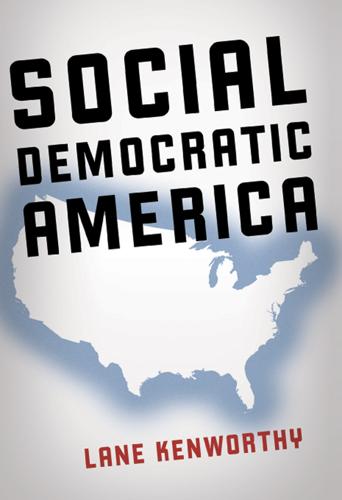
Social Democratic America
by
Lane Kenworthy
Published 3 Jan 2014
Yet none is likely to derail America’s slow but steady movement toward an expanded government role in improving economic security, enhancing opportunity, and ensuring rising living standards for all. Obstacle 1: Americans Don’t Want Big Government Compared to other rich nations, the United States has a relatively small government—particularly with respect to programs that provide economic security, enhance opportunity, and facilitate rising living standards. Many say this is because it’s what Americans want. More than our counterparts in other rich nations, we tend to believe that individual effort, rather than luck, determines success in life.
…
This book is about how we can do better. The problems we confront are big ones, but they are not intractable. The key to a solution? Government social programs. Social programs function as a safety net, a springboard, and an escalator: they provide economic security, enhance opportunity, and ensure rising living standards. Over the past century, we have gradually expanded the size and scope of such programs. Given recent economic and social shifts, we need to do more. Our history and the experiences of some other affluent nations point us in useful directions, and they suggest we can expand government without destroying liberty, breaking the bank, or wrecking the economy.
…
But these exist within an institutional context that aims to encourage entrepreneurship and flexibility by making it easy to start or close a business, to hire or fire employees, and to adjust work hours. In other words, modern social democracy means a commitment to extensive use of government policy to promote economic security, expand opportunity, and ensure rising living standards for all. But it aims to do so while facilitating freedom, flexibility, and market dynamism. Freedom, flexibility, and market dynamism have long been hallmarks of America’s economy. These are qualities worth preserving. The Nordic countries’ experience shows us that a nation can successfully embrace both flexibility and security, both competition and social justice.
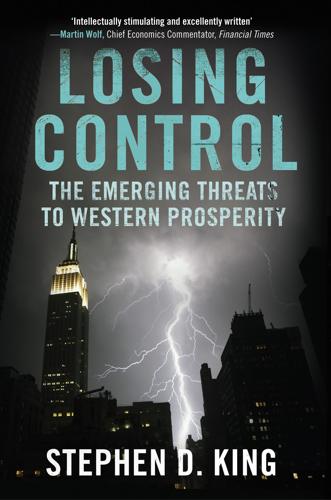
Losing Control: The Emerging Threats to Western Prosperity
by
Stephen D. King
Published 14 Jun 2010
In Africa and elsewhere, low incomes per head and a sense of hopelessness about the economic future lead all too frequently to war and war, in turn, lowers incomes per head. People choose (or are forced) to fight, rather than feed, each other. In the West, where we’ve experienced steadily rising living standards for many years, we have often forgotten about the ultimate economic constraint of scarcity. Technologies will overcome temporary shortages. People and governments ignore budgetary constraints, hoping instead for continued access to credit. Governments boast about the pace of economic growth.
…
Fragmented local labour markets are increasingly being joined together, reducing the relative bargaining power of many Western workers. The ability to negotiate pay increases and decent pensions is fading, constrained by the competitive onslaught from newly enfranchised workers elsewhere in the world. Our belief in ever-rising living standards hinges on the idea that the West will continue to reap significant economic benefits from technological progress. As we shall see, however, this idea is unsound. Japan is one of the most technologically advanced countries in the world yet its economy has stagnated over the last twenty years.
…
To remove the Malthusian constraint, then, any self-respecting political leader wants to have a piece of the productivity action. Higher productivity should deliver higher incomes. Yet, as I argue throughout this book, gains in productivity have not delivered universal benefits. With the rise of the emerging nations, the economic calculus is changing in ways that seem to be undermining Western hopes of ever-rising living standards, even allowing for continued technological progress across the world as a whole. OPPORTUNITY FOR ALL The changing fortunes exemplified by Wimbledon and the Olympics stem from two key aspects of globalization. Political barriers have come down. Following the collapse of Soviet communism, estranged countries and their previously repressed people have become more closely connected with the Western world than before.
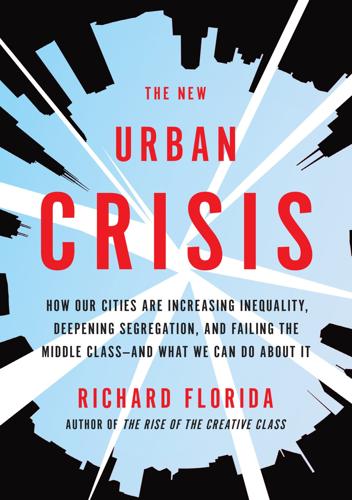
The New Urban Crisis: How Our Cities Are Increasing Inequality, Deepening Segregation, and Failing the Middle Class?and What We Can Do About It
by
Richard Florida
Published 9 May 2016
In writing it, I have three primary objectives: to spell out the key dimensions of this crisis; to identify the fundamental forces that are shaping it; and to outline what we need to do to bring about a new and more inclusive urbanism that encourages innovation and wealth creation while generating good jobs, rising living standards, and a better way of life for all. The stakes could not be higher. How we come to grips with the New Urban Crisis will determine whether we become more divided and slide backward into economic stagnation, or forge ahead to a new era of more sustainable and inclusive prosperity. 1 THE URBAN CONTRADICTION I magine that you could travel back in time to 1975, snatch a random New Yorker off the street, and set him loose in the city today.
…
Marrying my own long-held interest in urban economic development with the insights of urban sociologists on the corrosive effects of concentrated poverty, I mapped the deep new divides that isolate the classes in separate neighborhoods and traced the growth of poverty and economic disadvantage in the suburbs. I delved deep into the many challenges that face the rapidly growing cities of the world’s emerging economies, where urbanization is failing to spur the same kind of economic growth and rising living standards that it did for the advanced nations.3 The New Urban Crisis is different from the older urban crisis of the 1960s and 1970s. That previous crisis was defined by the economic abandonment of cities and their loss of economic function. Shaped by deindustrialization and white flight, its hallmark was a hollowing out of the city center, a phenomenon that urban theorists and policymakers labeled the hole-in-the-donut.
…
Suburbia has long been home to the wealthiest communities in America, but now its inequalities increasingly rival those of cities. The fifth and final dimension of the New Urban Crisis is the crisis of urbanization in the developing world. The urban optimists believe that urbanization will ultimately bring economic growth, rising living standards, and a growing middle class to these places, just like it did for the United States, Europe, Japan, and more recently, China. Cities, after all, have historically driven the development of national economies. But this connection between urbanization and a rising standard of living has broken down in many of the most rapidly urbanizing areas of the world.
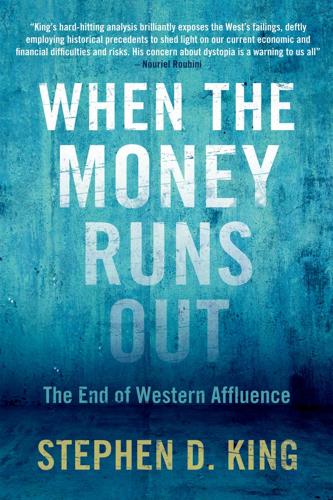
When the Money Runs Out: The End of Western Affluence
by
Stephen D. King
Published 17 Jun 2013
That debate, however, is far from being resolved. MOON LANDINGS REVISITED The West now has the growth profile of Japan and, in some cases, levels of income inequality approaching Argentina's. For Westerners used to ever rising living standards, who have come to expect continuous improvements in their daily lives from one year to the next, this presents a major challenge. Based on our collective belief in continuously rising living standards, we have spent the last half-century watching our financial wealth and our political and economic ‘rights’ accumulate at an incredible pace. We all, directly or indirectly, own pieces of paper or rely on political promises that make claims on future economic prosperity.
…
A sudden reduction in capital spending would lead to lower interest rates – the supply of savings would now be greater than the demand for loans – thus encouraging households to spend rather than save. Demand would then stabilize. Other than as a consequence of major political upheavals – war was hardly conducive to rising living standards – economies seemed destined to stick to a path ultimately determined by a mixture of population growth, capital accumulation and advances in technology. Macroeconomics had yet to be invented. While the Weimar Republic's experience was readily understandable – rebuilding Germany's economy after the First World War while, at the same time, paying reparations to the victorious (and vindictive) Allies led inevitably to the printing press – the Great Depression was a far bigger challenge to the prevailing orthodoxy.
…
Among the big losers in the UK in the first half of the twentieth century were the landed gentry, many of whom were undone by the impact of death duties, one reason why the National Trust now looks after ‘over 350 historic houses, gardens and ancient monuments’.12 The Trust purchased its first property – the Alfriston Clergy House in Sussex – for a mere £10 in 1896 but other properties soon followed as the rich were inevitably squeezed to fund the costs of two world wars and an intervening depression. Above a certain threshold, property rights were mostly ignored. Rich creditors lost out, even as national income for the most part continued to expand. In the second half of the twentieth century, both debtors and creditors could more happily live side-by-side thanks to persistently rising living standards. Rising incomes gave at least some creditors a reasonable return – banks and bondholders both did incredibly well as the inflationary 1970s gave way to the price stability of the 1980s and beyond – while debtors could sleep easily, knowing that higher living standards would easily allow them to pay off their debts, with both interest and little financial pain.
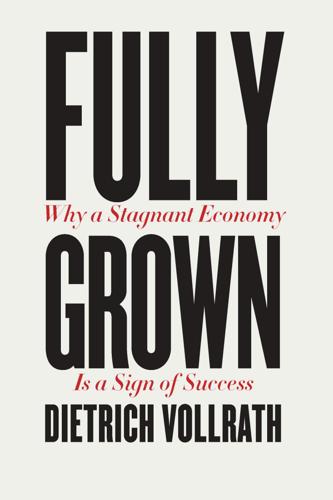
Fully Grown: Why a Stagnant Economy Is a Sign of Success
by
Dietrich Vollrath
Published 6 Jan 2020
The ratio of workers to population fell, and hence the growth rate of human capital fell during the twenty-first century. The growth slowdown is, in large part, a consequence of the family decisions made by people thirty or forty years ago. And those decisions were informed by the success of rising living standards and innovation in contraception. Beyond demographics, increased living standards had another significant consequence for economic growth, which worked through our choices about the kinds of products we purchase. In 1940 you might have spent your money installing plumbing for running water or a toilet, if you didn’t already have those things.
…
The steady increase in GDP per capita that drove the demographic changes and shift in spending toward services represented a substantial improvement in material living standards, but that doesn’t mean that everyone enjoyed the same improvement, or that there were no consequences for the environment, politics, or society in general. Think of GDP per capita like a pedometer for economic activity. Just as achieving ten thousand steps in a day does not tell you everything about your health, the successes behind the growth slowdown do not tell you everything about society or the economy. But because it is ultimately rising living standards that lie behind the growth slowdown, we may not be able to—or even want to—reverse it. Would it be worth it to destroy everyone’s car just to boost both employment in the automotive industry and the growth rate of GDP per capita for a little while? Would you want to roll back living standards and women’s rights to reverse population aging in the hopes of increasing growth decades in the future?
…
The literature attempting to explain the fundamental shift from families that had five to eight children each to families with one to three children each is vast and encompasses economics, sociology, psychology, anthropology, history, demography, political science, and medicine. I will not pretend that I can do justice to all the nuances of this research. Let me give you what I believe are the crucial elements explaining fertility decline in the United States. The short answer is that the fertility decline is a reaction to rising living standards in a very broad sense. It is a symptom of success. Economists are often accused of turning everything into a cold, lifeless comparison of costs and benefits. And the economics of family size, which Gary Becker is credited with originating, is often cited as the primary example. Becker suggested that the choice of family size was no different from choices about, say, what cereal to buy: it involves preferences and budget constraints.
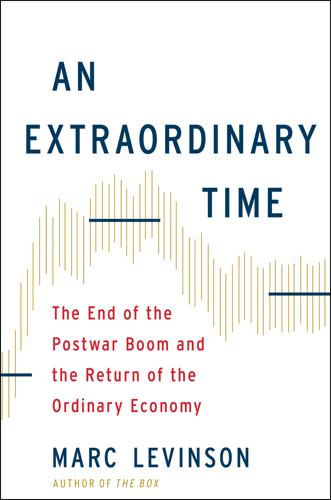
An Extraordinary Time: The End of the Postwar Boom and the Return of the Ordinary Economy
by
Marc Levinson
Published 31 Jul 2016
The very fact that life was so good—that jobs were easy to find; that food was plentiful and decent housing commonplace; that a newly woven safety net protected against unemployment, illness, and old age—encouraged individuals to take risks, from marching in the streets to joining the antimaterialist counterculture. Rising living standards and greater economic security made it possible for many people in many countries to join in the cultural ferment and social upheaval of the 1960s and early 1970s, and arguably engendered the confidence that brought vocal challenges to injustices—gender discrimination, environmental degradation, repression of homosexuals—that had long existed with little public outrage.
…
Will asserted in a 2015 critique of President Barack Obama’s policies, as if the rate of economic growth were a matter of presidential discretion.11 IN CHRONOLOGICAL TIME, THE GOLDEN AGE WAS BRIEF. BARELY a quarter-century elapsed from its blossoming out of a world in ruins to its sudden end amid unimagined prosperity, steadily rising living standards, and jobs for all. Scholars have spent the past fifty years struggling to understand what went wrong and how to set it right. But it may be that there is nothing to fix, that the long boom was a unique event that will never come again. Harvard University economist Zvi Griliches, a pioneer of research into productivity, concluded as much.
…
The very policies that the planners had introduced to drive their economies to new heights, policies that favored certain sectors and certain well-connected individuals, stood in the way of economic growth. As in Karl Schiller’s Germany, so, too, in Mexico and Brazil and Indonesia: the idea that government planning could assure prosperity and rising living standards for all proved to be a cruel hoax. CHAPTER 3 Chaos Richard Nixon wasn’t much for economics. Politics aside, the interests of the thirty-seventh president of the United States ran more to realpolitik: war and peace, nuclear deterrence, and the strategic balance of power. The economic realm, by contrast, offered too few opportunities for political advantage and too many problems a president could not fix.
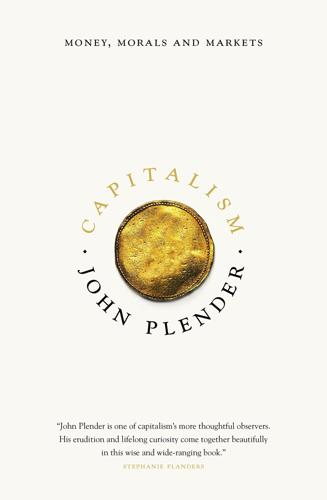
Capitalism: Money, Morals and Markets
by
John Plender
Published 27 Jul 2015
At the same time, globalisation and increased concentration in the banking system since the crisis mean that the scale of any future global financial crisis and subsequent recession will be greater than ever before. Moreover, the environmental cost of bringing emerging market countries up to the per capita income levels of the advanced countries is rising all the time and is hazardous for the planet in a way that the fallout from early industrialisation was not. It follows from all this that the rising living standards for which capitalism deserves credit are accompanied by a high degree of insecurity – an insecurity that is exacerbated at the time of writing by tight fiscal policies in the US and Europe. These were designed to address the government deficits and debt burdens incurred to finance the welfare safety nets that were installed to mitigate that insecurity.
…
Manufacturing, as I have explained, has the extraordinary characteristic of being able to use decreasing human resources in producing ever increasing output. That is no mean trick and is an important part of the process whereby millions across the world have increasingly enjoyed the benefit of fast-rising living standards. One of the more poignant episodes in the afterlife of Lehman Brothers was the auctioning at Christie’s in 2010 of memorabilia from the defunct investment bank’s London office. These included a fine edition of Gibbons’s The History of the Decline and Fall of the Roman Empire, which fetched £2,375.
…
With a majority of its $4 trillion of official reserves invested in dollar securities, China cannot now pull out except at the risk of precipitating a dollar crash that might wreck the value of this humungous nest egg. So the world’s biggest creditor country has not imposed discipline via the bond market on the world’s biggest debtor and would probably only do so in extreme political circumstances. Worse, Americans whose real incomes were declining for years enjoyed the illusion of rising living standards on the basis of a credit bubble that allowed them to treat their constantly re-mortgaged homes as automated teller machines. Then the residential property market collapsed. Meantime, the US cannot lightly alienate China because a Chinese financial exodus would, as suggested earlier, run the risk of precipitating a currency and financial crisis that would cause the government’s borrowing costs to rocket.
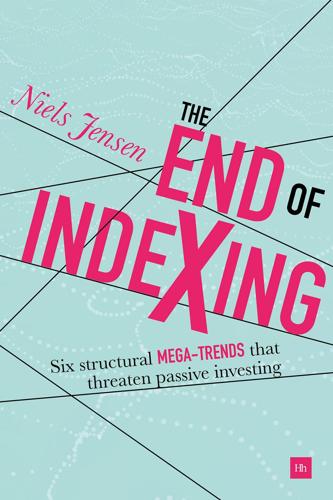
The End of Indexing: Six Structural Mega-Trends That Threaten Passive Investing
by
Niels Jensen
Published 25 Mar 2018
It certainly is, and it could quite possibly do severe damage to the world as we know it, but it would be a grave mistake to underestimate the pending food crisis. According to at least one estimate57, mankind is facing a formidable challenge. Between now and 2050, we will need to produce more food than we have done in the previous 10,000 years put together, and that is very much a function of rising livings standards across emerging markets – particularly in Asia. When living standards are low, diets are simple and cheap. We know from various episodes of famine in Europe that people can survive on potatoes for a very long time, and many people around the world survive on rice to this day. According to the World Bank, more than one billion people around the world survive on as little as $1–2 per day, and people in the poorest countries spend nearly 80% of their income on food.
…
Consequently, I prefer to play this theme away from China. Invest in countries and investment strategies that benefit from rapid growth in China without being directly exposed to the Chinese financial system. Firstly, aviation leasing in Asia. I note that this industry is not as cyclical as the underlying aviation industry is. Rising living standards throughout Asia in the years to come will put the growth rate of this industry at par with the growth we went through in mature economies back in the 1970s and 1980s, when flying became standard practice. Moreover, it is an investment strategy that generates a respectable amount of regular income.
…
The West will, in many ways, benefit from a rising East; however, with (i) a declining workforce, (ii) a growing population of elderly who will be tremendously expensive to service, (iii) a large part of the workforce who face declining living standards, (iv) a humongous mountain of debt that, instead of being used to enhance productivity, is increasingly used unproductively, and (v) rising energy exploration and production costs, I am struggling to be overly optimistic as far as the West is concerned. That said, there will unquestionably be a significant positive impact on the West from rising living standards in the East, and I recommend long-term investors to structure their portfolio with that theme in mind. A few thoughts on automation You may recall that, in the introduction to this book, I touched on the subject of automation. Back in late 2015, BofAML released a monster of a research paper on the subject81.
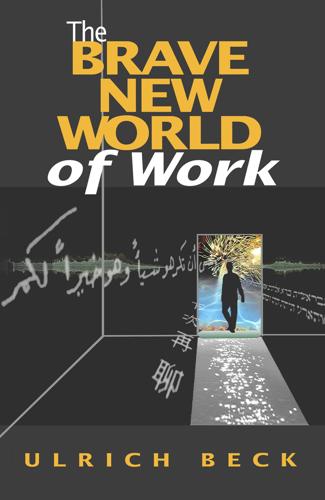
Brave New World of Work
by
Ulrich Beck
Published 15 Jan 2000
This involved a wide range of strategies, actors and conditions which tied company management, banks, trade unions and political parties, as well as governments, to a relatively uniform philosophy of growth and a corresponding set of measures that held out a promise of success. The cultural-political targets of these measures were citizens in full-time employment, who had expectations of rising living standards and job security, while the main recipes were workforce participation, free collective bargaining, strong trade unions, government intervention and Keynesian macro-policies. Since conjunctural downturns and rising unemployment were seen as caused by weak demand, the state was not supposed to stint on public expenditure, and employers were also urged to increase wages as a means of pushing up internal demand.
…
The same holds for transport projects, or decisions to promote certain kinds of energy instead of others – and even if a certain objective is not disputed, there are usually various ways of achieving it, whose comparative advantages and disadvantages can only exceptionally be calculated in such a way that a clear vote emerges in favour of one option.51 On the other hand, the ‘Fordist consensus’ included the economic-political compromise of the ‘worker-citizen’. This compromise, with its faith in rising living standards, left class-struggle rhetoric hanging in the cloakroom and sought to procure a commitment to democracy outside work in the electoral arena. But now, in the wake of the globalization and individualization of work, the Fordist worker-citizen sees the ground slipping away beneath his feet and becomes politicized.
…
To be sure, this model of ‘employee soci-ety’ (Lepsius) and ‘working citizen’ gained its persuasive power in Europe only after the Second World War, especially in contradistinction to the model of capitalist class society. The ‘employee’ refrains from any class-struggle rhetoric and receives instead a state-backed promise of rising living standards and social security. The citizen's political identity is thus given up at the workplace cloakroom. If the diagnosis is correct that attractive forms of paid work are drying up, then this old social architecture must be losing its stability. Either one sticks ‘even so’ to the fiction of a full employment society and a politics based upon it – in which case, a Brazilianization of the West is what lies ahead.

Getting Back to Full Employment: A Better Bargain for Working People
by
Dean Baker
and
Jared Bernstein
Published 14 Nov 2013
As we revisit this critical issue, the jobless rate has ranged from 7 percent to 10 percent for over four years, and it’s not expected to come down much anytime soon. A strong labor market with full employment need not be a rare economic anomaly that returns roughly twice for every one appearance of Halley’s Comet. Full employment can be a regular feature of the policy landscape, with tremendous benefits for rising living standards, poverty reduction, the federal budget, and equitable economic growth. In this book we present the benefits and importance of full employment in ways that are particularly germane to the economy today, and we offer policies to begin moving to full employment now. Full employment can be defined as the level of employment at which additional demand in the economy will not create more employment.
…
But slack employment and its corollary – diminished bargaining power – get overlooked, in no small part because policymakers assume full employment is out of their control, though it is decidedly not. To give up on full employment is a mistake, because in an economy in which collective bargaining is minimal in the private sector and under siege in the public sector, full employment is the only route for working Americans can get ahead. Rising living standards for the majority require a labor market that is tight enough to force employers to raise compensation to the level where they can attract and keep the workers they need. Whenever that force has been in place, working people have done much better than when it’s been absent. Growing together or growing apart, and the role of full employment As discussed in Chapter 1, economists don’t have a good track record in terms of quantifying a reliable definition of full employment or the costs of setting the NAIRU – the unemployment rate generally associated with non-inflationary full employment – so high that it sacrifices growth and jobs, particularly for less-advantaged persons whose incomes are closely tied to the unemployment rate.
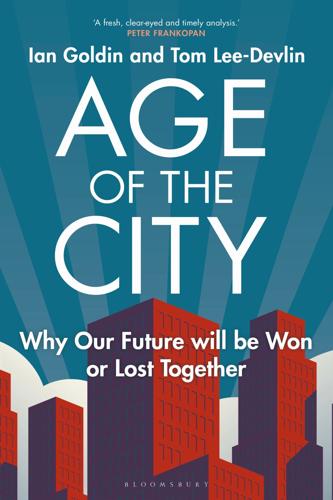
Age of the City: Why Our Future Will Be Won or Lost Together
by
Ian Goldin
and
Tom Lee-Devlin
Published 21 Jun 2023
A mild and stable environment created the necessary conditions for Homo sapiens to transition from hunting and gathering to agriculture. With time, we became more productive farmers, which eventually made it possible for the first urban dwellers to untether themselves from toiling the land and gather together in cities. Now, the Holocene is being replaced by the Anthropocene, as a growing population and rising living standards are together straining the limits of our planet and undermining the foundation upon which the success of our species has thus far depended. It is beyond dispute that human-induced climate change is accelerating. In the last 50 years alone the global average surface temperature has risen by about 1 °C,26 the Arctic sea ice minimum has shrunk by 35 to 40 per cent,27 and the frequency of natural disasters has increased five-fold.28 We are simply doing too little too late to reduce greenhouse gas emissions.
…
With time, the emergence of the labour movement helped ensure this new working class also benefited from the rising output of the economy through higher wages, which further contributed to rising demand for manufactured goods. The result was a self-sustaining cycle of industrialization, urbanization and rising living standards, the benefits of which have gone far beyond the mere production of more things. Global life expectancy has more than doubled since the onset of industrialization, thanks in part to less malnourishment, but also thanks to a series of advances in medicine and sanitation made possible by the scientific, technological and economic advances that accompanied industrialization.
…
The same can be said for the clerical work that was offshored in recent decades and is now increasingly being digitized and replaced by artificial intelligence. We have been too slow to act on these trends. The power of specialization makes global trade a potent mechanism for increasing the world’s total productive capacity, making goods and services cheaper and more abundant. And technological change is the bedrock of rising living standards over the long run. But both also create significant friction as workers are forced to adjust to shifting patterns in the availability of jobs. Initiatives like the Trade Adjustment Assistance Program in the US, which focuses on providing workers displaced by globalization with financial support for retraining and relocation, have simply been far too modest to have any meaningful impact.
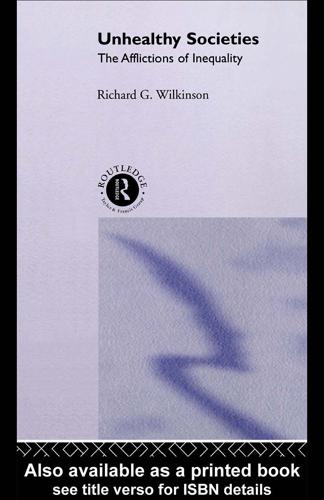
Unhealthy societies: the afflictions of inequality
by
Richard G. Wilkinson
Published 19 Nov 1996
Looking at the curves for different data in figure 3.1 it is clear that life expectancy increases not so much by countries moving out along a given curve, but by moving on to new, higher curves. Indeed, as early as 1975 Preston concluded that no more than 12 per cent of the improvement in life expectancy was associated with the rising standard of living (Preston 1975). In order to get a clearer idea of whether health really is responsive to rising living standards among the rich countries on the flat part of figure 3.1, let us move from cross-sectional data to look at changes over time. Figure 3.2 shows the relationship between percentage changes in GNPpc and changes in life expectancy over the twenty years 1970–90 among the rich market countries belonging to the Organisation for Economic Cooperation and Development (OECD).
…
These considerations show that the shifts in the curves in figure 3.1, and the weak correlations between life expectancy and rising GNPpc, should not necessarily be taken as proof that the improvements in mortality are not a product of economic development as properly understood. Indeed, it is hard to think of an explanation for rising life expectancy which is not in some way sustained, enabled or supported by economic development. The evidence for rejecting at least some distant link between rising living standards and increasing life expectancy seems inadequate. For countries on the horizontal part of the curves in figure 3.1 (which becomes more horizontal in the light of the inadequate quality adjustments), the onus for explaining the upward shift of the life expectancy curve is on the qualitative improvements in living standards which take place over time.
…
To summarise, these are the decline in the infectious diseases traditionally associated with poverty, the reversal of social-class gradients in conditions previously associated with wealth—including heart disease and obesity (this latter probably for the first time in recorded history) and lastly, the cessation of the decline in the proportion of low birthweight babies despite rising living standards. Together these suggest that we should probably interpret the levelling off of the curve of rising life expectancy with increasing GNP per capita as the attainment among the majority of the population of a minimum real material standard of living, above which further increases in personal subsistence no longer provide the key to further increases in health.
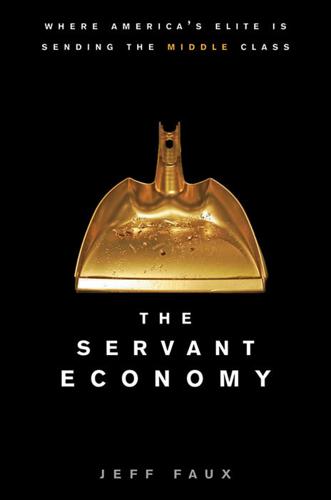
Servant Economy: Where America's Elite Is Sending the Middle Class
by
Jeff Faux
Published 16 May 2012
With the shrinking of our historical legacy of competitive advantages, the problem is no longer simply stability, or the smoothing out of the business cycle. National adjustment to our new condition requires economic redevelopment: improving the basic capacity of the economy to compete in a way that generates rising living standards. Again, the United States is obviously not a third-world country. But its future, like that of a third-world country, depends on its ability to build infrastructure, to educate its people, and to set national priorities. Economics commentator Jeff Madrick has suggested, and even the hard-line economists at the World Bank and the International Monetary Fund have learned, that a country’s economic development is a political process as much as an economic one.
…
The same Washington policymakers who have declared Social Security, which runs 6 percent of GDP, an unacceptable burden on the economy maintain that spending roughly the same amount on the military is no problem. Double standards aside, the issue here is the future financial condition of Americans, not America. In the three decades after World War II a robust economy was able to support both high Pentagon budgets and rising living standards. In the Reagan era, the military budget was financed the way we financed general prosperity—by borrowing. In the coming era of slow growth, fiscal austerity, and rising debt, the costs of empire will be paid in real time. And there is virtually no chance that reductions in military spending will provide anything like the resources needed for the investments and social programs required to stop the decline of middle-class living standards.
…
But as Medicare premiums rise, the age of eligibility lengthens, and more U.S. doctors opt out of the system, budgeting pressure will erode the assumption that sick Americans will be treated at home, in their own country. Reliance on personal services for growth implies a low productivity and, therefore low-wage, economy. High worker productivity does not guarantee high wages when the bargaining power of labor is weak, but, without it, rising living standards cannot be sustained. In a growing balanced economy wages in the high productivity manufacturing industries can rise while prices for manufactured products remain stable or fall. In low-productivity services sectors, prices have to rise in order to pay higher wages. The classic 1966 study by William J.
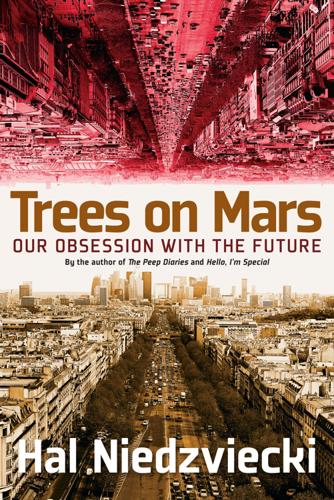
Trees on Mars: Our Obsession With the Future
by
Hal Niedzviecki
Published 15 Mar 2015
Productivity is the measurement of how efficient we are at generating goods and services. “Labor productivity can be measured as output per worker or output per hour worked.”27 Up until very recently, it was a trusted axiom—one shown to be true by economist Robert Solow, who was awarded a Nobel Prize in 1987 for establishing it—that rising productivity leads to rising living standards. If your country’s overall productivity was going up—if you could make more stuff faster and increase the gross national product produced per worker—your country’s living standards were going up. The more stuff you made faster and better, the more money and jobs there were for everyone. Productivity was measured at a 4 percent increase in 2010.
…
The famed 1 percent captured 95 percent of post-financial crisis growth since 2009, leaving 90 percent of the population of the US poorer than they were five or ten years before.35 The trend is the same across the globe, with almost half of the world’s wealth in the hands of just 1 percent of the population, which means that the wealth of the top i percent richest people in the world ($110 trillion) amounts to sixty-five times the total wealth of the bottom half of the world’s population.36 So that’s the picture in the age of permanent future: plenty of profit, ever-increasing productivity, substantial corporate investment in technology and machinery, and the top 20 percent spending like it’s 1985. But also an incongruous downward spiral never before seen in an era of rising productivity and profit—a chaotic spiral of chronic underemployment, declining wages, and looming obsolescence kept spinning by obscene wealth for a tiny handful. So then we have to ask, why have rising living standards for all decoupled from advancing productivity? What changed over the last twenty years? What’s different now? The answer is not technology, but specifically the development of technologies that vastly increase the speed at which we can collect, share, process and manage information. Most of technological development from the 1950s on has been primarily improvements on existing ideas.
…
In fact, in many ways the most lauded, widespread technologies and innovations of the last few decades have been moving us in the opposite direction—they are working against prosperity. For the first time in the history of the world, jobs are being lost—not created—by technology. ° ° ° ° ° ° Here’s a quick example of how technology has helped decouple production from rising living standards. At the height of its power, the photography company Kodak employed more than 140,000 people worldwide and was worth twenty-eight billion dollars.48,49 They even invented the first digital camera. Eastman Kodak Co. generated good jobs and good salaries for upstate New York’s Rochester area for multiple decades.
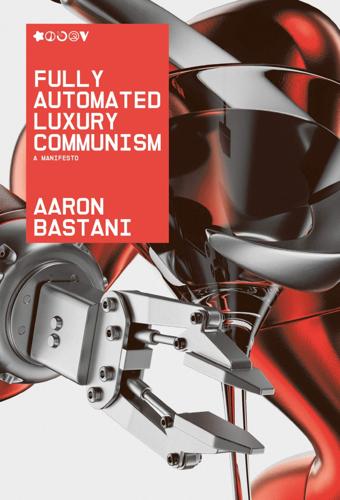
Fully Automated Luxury Communism
by
Aaron Bastani
Published 10 Jun 2019
While the events of the last several years are both historic and unexpected, they are a response to an economic crisis, beginning in 2008, which itself only represents the first stage of a prolonged period of global disorder. Over coming decades we will not only endure the aftershocks of the failure of this economic model to deliver rising living standards, but also the era-defining effects of the aforementioned five crises. Individually, each poses an existential threat to our way of life. Together they could blow away the social and economic certainties of the last two and a half centuries. But there is a deeper layer still, because we are at a crossroads as much as a cliff edge.
…
It involves the progressive socialisation of finance and capital markets. A Socialised Capital Market As the end drew nearer for the USSR and Eastern Bloc in the late 1980s, dissident intellectuals were eager to draw lessons from a system which despite its best intentions was now failing to deliver rising living standards on a par with the West. Włodzimierz Brus and Kazimierz Łaski were two such thinkers, socialist economists and followers of the distinguished Marxist–Keynesian Michał Kalecki. In From Marx to the Market, published in England in 1989, they assessed the prospects for socialist economics with the demise of the Soviet project.
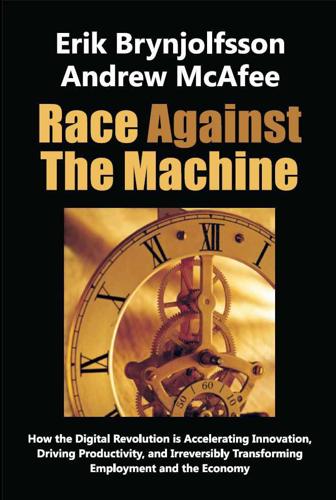
Race Against the Machine: How the Digital Revolution Is Accelerating Innovation, Driving Productivity, and Irreversibly Transforming Employment and the Economy
by
Erik Brynjolfsson
Published 23 Jan 2012
Growing Productivity Of the plethora of economic statistics—unemployment, inflation, trade, budget deficits, money supply, and so on—one is paramount: productivity growth. Productivity is the amount of output per unit of input. In particular, labor productivity can be measured as output per worker or output per hour worked. In the long run, productivity growth is almost the only thing that matters for ensuring rising living standards. Robert Solow earned his Nobel Prize for showing that economic growth does not come from people working harder but rather from working smarter. That means using new technologies and new techniques of production to create more value without increasing the labor, capital, and other resources used.
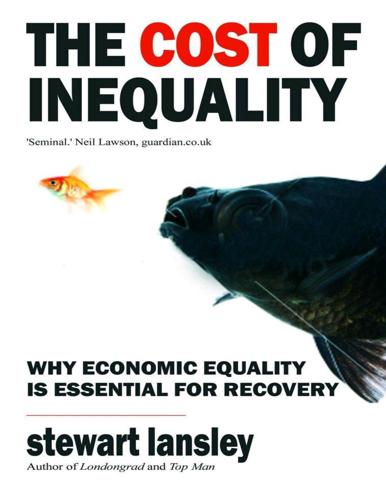
The Cost of Inequality: Why Economic Equality Is Essential for Recovery
by
Stewart Lansley
Published 19 Jan 2012
This track—the ‘productive economy’ where new businesses are built, new products devised and wealth and jobs created—is the one on which economic success depends. It produces the goods and services that make up economic output, provides jobs for the bulk of the workforce and creates the wealth that enables rising living standards. But while the first track is thriving, this one is floundering. Although the productive side of the economy has always depended on the financial side, the interests of these two tracks have become increasingly at odds. Actively promoted by successive governments over three decades, for misguided reasons as we shall see, the money economy has captured the dominant position, greatly out of proportion to the needs of the wider economy.
…
‘Sometimes, therefore, capital and labour are bargaining not only about wages, but about the survival of the capitalist system’.66 The global economic problems of the time were much more significant than just another of the periodic crises endemic to the history of capitalism. The steadily rising living standards of the ‘golden age’ gave way to near stagnant output. What one economist called ‘disorganised capitalism’ was not well enough equipped to cope with the external oil price shock of 1973, the end of cheap energy and the surges in other commodity prices and the rise of industrial militancy, while the tools of economic management, so successful for the previous twenty five years proved less able to cope with inflation than stagnation, let alone both.67 To settle the crisis and the weakening of private capital what was needed was a modest correction in the wage share, and the restoration of profit levels, returning them to the norm of the post-war decades.
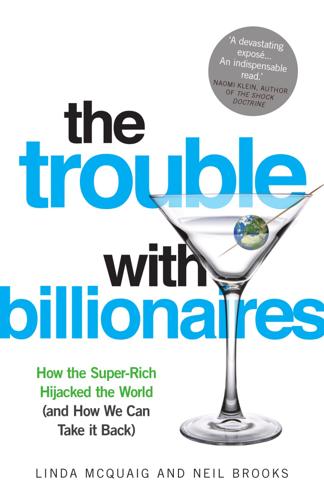
The Trouble With Billionaires
by
Linda McQuaig
Published 1 May 2013
• • • A broad consensus emerged during the 1950s and ’60s about the role of government and the goals of public policy, including taxation. Based on the experience of citizens during the Great Depression and the Second World War, it was widely accepted that governments should correct the pervasive failures of the market, stabilize the economy, ensure rising living standards, guarantee workers a degree of economic security, provide access to health and education services, and promote social equality. While the precise nature of what was often called the ‘social contract’ varied from country to country, citizens in most Western industrialized nations opted to rely upon the economic decisions of democratically elected governments rather than purely on the market.
…
As Nicholas Timmins notes: ‘at the end of the sixties and a quarter-century on from the Beveridge report, the welfare state’s condition can only be described as one of mature flowering. The services it provided were bigger, better and more comprehensive than anything that had gone before’.10 At the same time, Britain enjoyed sustained economic growth, with a Keynesian approach by government maintaining a high level of employment and rising living standards. Average earnings (after inflation) rose by 2.7 per cent a year between 1951 and 1961, while profit rates averaged a healthy 15.5 per cent.11 From 1951 to 1964, the number of cars on the British roads rose from 2.5 million to six million, and there was similarly impressive growth in the number of households owning refrigerators (from 5 to 37 per cent) and washing machines (from 11 to 52 per cent).12 In 1959, the Conservatives, portraying themselves as the trusted managers of the welfare state, were re-elected with the campaign slogan: ‘You’ve never had it so good
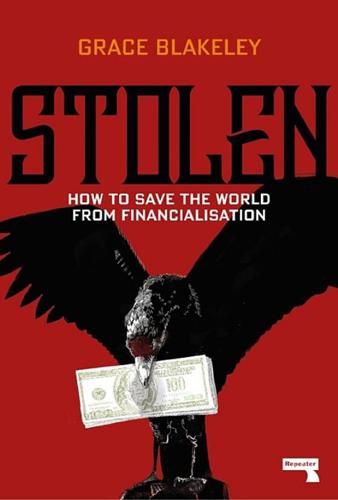
Stolen: How to Save the World From Financialisation
by
Grace Blakeley
Published 9 Sep 2019
Insects, particularly those critical for pollinating many plant species, are in terminal decline, and our soils are being eroded faster than they can be replenished. In other words, we are on the verge of ecological Armageddon. But this moment of extended crisis could also represent a moment of opportunity. Many capitalist economies around the world are not only failing to deliver rising living standards for their most powerful constituencies, the capitalist mode of production is accelerating the breakdown of all our most important environmental systems. Finance-led growth contributes to these dynamics by creating huge, unsustainable booms, followed by equally massive, wasteful busts. We cannot afford to organise our economies according to the logic of finance-led growth anymore.
…
Many of those working in the “gig economy” for companies such as Uber or Deliveroo also sacrifice benefits such as pensions and sick pay, meaning that their effective remuneration is even lower than what is captured in the headline wage statistics. Today, eight million people in poverty live in a working household.11 The link between employment and rising living standards has been severed. High levels of employment have also coincided with a stagnation in productivity — the amount of output produced for every hour worked. Productivity in the UK is 13% below the G7 average, having stalled since the financial crisis. One major reason for this is the declining productivity in financial and professional services.
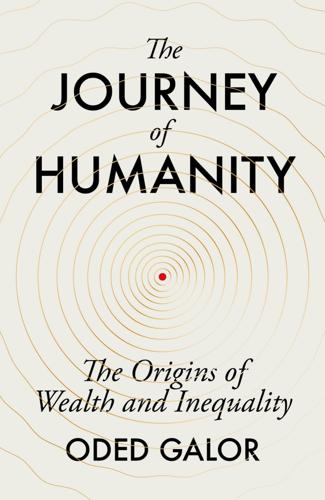
The Journey of Humanity: The Origins of Wealth and Inequality
by
Oded Galor
Published 22 Mar 2022
In advanced economies, the share of employment in the manufacturing sector declined sharply from nearly 25 per cent in the period 1970–79 to about 13 per cent in the period 2010–15;[7] UK manufacturing went from employing 21.8 to 7.6 per cent of the workforce in the period 1981–2019;[8] and in the United States it dropped from 21 to 8 per cent.[9] In contrast, in emerging markets and developing economies, employment in the manufacturing sector declined only slightly from 13 per cent in the period 1970–79 to 12 per cent in 1981–2019, whereas China experienced a sharp increase from 10 per cent to 21 per cent over this period.[10] As we saw in the previous chapters, rising living standards in the West during the Industrial Revolution were predominantly the result of human capital formation and rapid technological advancement, each reinforcing the other. This technological advancement took the form of industrialisation but the rise in living standards was not contingent on the process of industrialisation itself.
…
The decline of industrial towns and regions has been deeply distressing for the communities founded in them, with some older workers losing their livelihoods indefinitely and with a significant number of younger residents being forced to uproot themselves and migrate to find jobs elsewhere. Investment in general human capital, though, in the form of a rounded basic education and transferable skills, has enabled an increasing fraction of these workers in dying industries to switch to booming sectors of the economy and reap the fruits of continuously rising living standards. A key lesson from the twilight of low-skilled industries in Western societies is that developing countries may benefit from the allocation of resources towards human capital formation and skill-intensive sectors rather than towards the development of traditional low-skilled intensive industrial sectors.[13] The Age of Growth In the latter half of the twentieth century the great wheels of change continued to spin at an ever-intensifying pace.
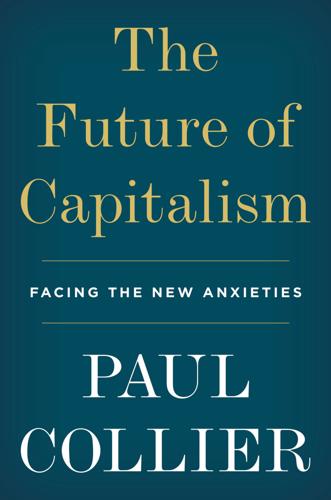
The Future of Capitalism: Facing the New Anxieties
by
Paul Collier
Published 4 Dec 2018
Surveys show an unprecedented level of youthful pessimism: most young people expect to have lower living standards than their parents. Nor is this a delusion: during the past four decades, the economic performance of capitalism has deteriorated. The global financial crisis of 2008–9 made it manifest, but from the 1980s this pessimism has been slowly growing. Capitalism’s core credential of steadily rising living standards for all has been tarnished: it has continued to deliver for some, but has passed others by. In America, the emblematic heart of capitalism, half of the 1980s generation are absolutely worse off than the generation of their parents at the same age.2 For them, capitalism is not working. Given the huge advances in technology and public policy that have taken place since 1980, that failure is astounding.
…
The knowledge that, even once retired with a golden parachute, a former CEO could be dragged off the golf course and held responsible for past mistakes would likely concentrate the minds of those in positions of responsibility. Once you have demonstrated some spine, you can move on to present a national strategy in simple terms. Perhaps start with the purpose of firms, to benefit society in ways that are sustainable and restore rising living standards. Explain why many firms have deviated from this purpose. Explain the government policies that will try to correct this state of affairs, and – most crucially – explain their limitations. Then invite people across society to take on this new role as ethical citizens. Like all successful narratives, change cannot be achieved overnight.
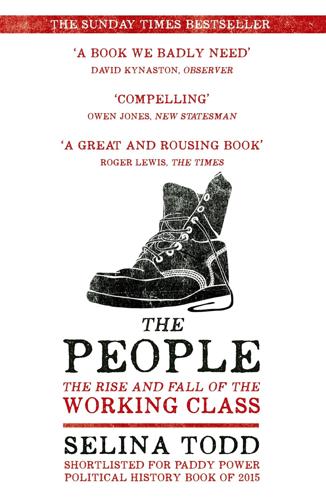
The People: The Rise and Fall of the Working Class, 1910-2010
by
Selina Todd
Published 9 Apr 2014
Far from being a resounding Labour victory, the election was really a defeat for the Conservatives, who had failed to recover from the Profumo sex scandal, Rachmanism and the economic insecurity of the early 1960s.53 By October 1964, the sociologists had left Luton. Goldthorpe’s research team concluded that despite experiencing rising living standards, most of these affluent workers remained staunchly Labour. The researchers could find no ready explanation for this, but that was because they took ‘rising living standards’ for granted, without questioning why so many of their interviewees were discontented about their circumstances, and uncertain about the future. Most of the interviewees still felt they were living in circumstances that they had not chosen – that they were ‘the rest’ as distinct from ‘the rich’.54 Wilson scored highly with younger wage-earners, many of whom were frustrated with the chasm between the Conservatives’ promises of affluence and the reality of everyday life.
…
By the 1950s, there was no hard and fast division between the living standards of those who had served in the forces and those who had stayed at home; Mr Blake and Mr Kiddey pointed to the re-emergence of a pre-war fracture between the living conditions of skilled workers and those of the rest of the working class. These disgruntled men believed that the promises they were made in the 1940s had been broken. Many of them experienced the 1950s not as a time of rising living standards, but as a period when their hopes of attaining – or returning to – skilled work were dashed. As a result of inter-war unemployment and wartime disruption, many thousands of men had slid down the occupational ladder. Ann Lanchbury’s father was among them. A trained carpenter, he had been laid off in the hard times of the 1930s.
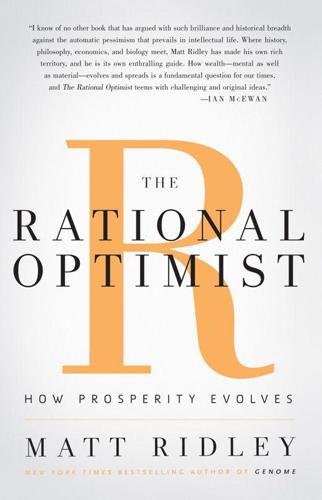
The Rational Optimist: How Prosperity Evolves
by
Matt Ridley
Published 17 May 2010
The precautionary principle – better safe than sorry – condemns itself: in a sorry world there is no safety to be found in standing still. More immediately, the financial crash of 2008 has caused a deep and painful recession that will generate mass unemployment and real hardship in many parts of the world. The reality of rising living standards feels to many today to be a trick, a pyramid scheme achieved by borrowing from the future. Until he was rumbled in 2008, Bernard Madoff offered his investors high and steady returns of more than 1 per cent a month on their money for thirty years. He did so by paying new investors’ capital out to old investors as revenue, a chain-letter con trick that could not last.
…
Around 200 years ago, the pace of change quickened again thanks to the Species’ new ability to recruit extinct species to its service as well, through the mining of fossil fuels and the releasing of their energy in ways that generated still more services. By now the Species was the dominant large animal on its planet and was suddenly experiencing rapidly rising living standards because of falling birth rates. Parasites plagued it still – starting wars, demanding obedience, building bureaucracies, committing frauds, preaching schisms – but the exchange and specialisation continued, and the collective intelligence of the Species reached unprecedented levels. By now almost the entire world was connected by a web so that ideas from everywhere could meet and mate.
…
If my great grand-daughter reads this book in 2100 I want her to know that I am acutely aware of the inequality of the world I inhabit, a world where I can worry about my weight and a restaurant owner can moan about the iniquity of importing green beans by air from Kenya in winter, while in Darfur a child’s shrunken face is covered in flies, in Somalia a woman is stoned to death and in Afghanistan a lone American entrepreneur builds schools while his government drops bombs. It is precisely this ‘evitable’ misery that is the reason for pressing on urgently with economic progress, innovation and change, the only known way of bringing the benefits of a rising living standard to many more people. It is precisely because there is so much poverty, hunger and illness that the world must be very careful not to get in the way of the things that have bettered so many lives already – the tools of trade, technology and trust, of specialisation and exchange. It is precisely because there is still so much further to go that those who offer counsels of despair or calls to slow down in the face of looming environmental disaster may be not only factually but morally wrong.
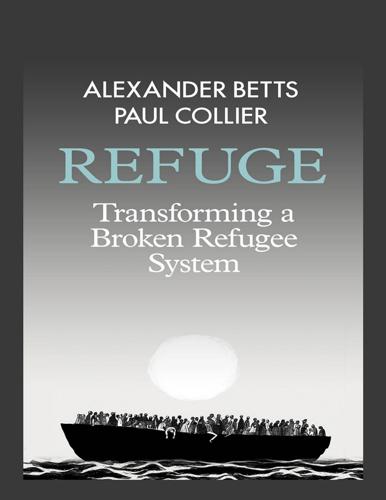
Refuge: Transforming a Broken Refugee System
by
Alexander Betts
and
Paul Collier
Published 29 Mar 2017
Since the 1990s, global inequality has been falling rapidly as most other countries have started to catch up. The most spectacular cases have been China and India, home to a third of mankind. But this trend is widespread; once impoverished and conflict-devastated societies like Vietnam, Rwanda and Colombia are now peaceful and have achieved rapidly rising living standards. Most countries are now somewhere in the middle. So, global economic developments look to be unpromising as an explanation for the upsurge in displacement. What else might it be? WHAT DRIVES DISPLACEMENT AND REFUGE? People seeking refuge are not fleeing poverty, they are fleeing danger. The flight for refuge happens when a society ceases to provide security for its people.
…
For around a decade this worked: the rhetoric of unity in the face of the powerful neighbouring enemy, Ethiopia, lent a degree of legitimacy. Gradually, this narrative has lost its power to ensnare. While Eritrea’s economy has stagnated, despite its excellent coastal location, the economy of landlocked Ethiopia has been well run for ordinary people and delivered rapidly rising living standards. It has also become home to thousands of Eritreans. To the bottomless dismay of the heroic people who fought for the secession from Ethiopia, their struggle succeeded only to be revealed as pointless. With the demise of the rationale for a society kept permanently on a war-footing, the ordinary people who worked as the jailers of the nation’s youth lost their dedication.
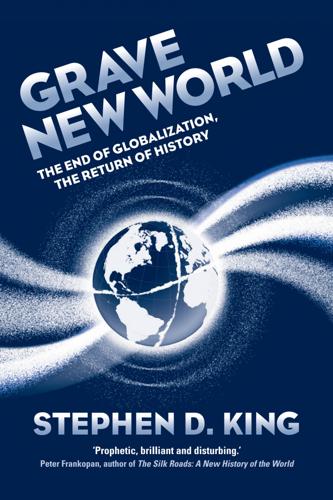
Grave New World: The End of Globalization, the Return of History
by
Stephen D. King
Published 22 May 2017
Whilst they accounted for over 18 per cent of the world’s population in 1950, their share may have dropped to a rather insignificant 7.7 per cent by 2100. TWENTY-FIRST-CENTURY MIGRATION TRIGGERS Knowing that populations are likely to wax and wane is not in itself enough to demonstrate that there will be large migratory movements. There needs also to be a catalyst. There are likely to be at least three in the twenty-first century: rising living standards in poor countries; persistence of conflict where government and institutions are ineffective or where there are failed states; and climate change, the effects of which will impact some nations more than others. Take Nigeria again. Its per capita incomes fell rapidly in the early 1980s: between 1981 and 1987, living standards dropped on average by 6 per cent per year, a truly catastrophic outcome.
…
Typically, to secure the capital inflow, the recipient country would need to provide better infrastructure, improved corporate governance and higher levels of legal protection to make the prospective investment ‘safe’.3 In time, this ‘exchange’ – between investment and governance, rather than between exports and imports – created a virtuous circle, leading to an emerging-market revolution associated with rapidly rising living standards for the many, not the few. In China, for example, the first stirrings of economic convergence with the West appeared in the early 1980s. By 2010, Chinese per capita incomes had risen to 25 per cent of those in the US, by which time US incomes themselves were considerably higher than they had been in the 1950s.

The Impulse Society: America in the Age of Instant Gratification
by
Paul Roberts
Published 1 Sep 2014
At the Federal Reserve, chairman Alan Greenspan, another champion of unfettered, efficient markets, saw rapidly appreciating housing prices and equity withdrawals as an easy way to help offset consumers’ flattening incomes. In this Panglossian scenario, by keeping interest rates low, the government hoped to harness financial markets to do what traditional economic activity no longer seemed capable of doing: maintain rising living standards. Government, too, had gone myopic. As Greenspan explained in a 2004 speech, the “surge in mortgage refinancings” had “likely improved rather than worsened the financial condition of the average homeowner . . . and has very likely been a supportive factor for the general economy.” Meanwhile, on suburban tracts no more than forty-five minutes from Greenspan’s office at the Fed, new housing developments were selling out before crews had broken ground, and units were flipping once or twice or even three times before they were finished.
…
More and more, the point of innovation in the Impulse Society seems to be to create extraordinary new efficiencies that enable an enterprising elite to carve off ever-larger pieces of the pie—a share that is increasingly difficult to justify as benefiting the larger society. Efficiency itself now seems corrupt: the drive for ever-greater output at an ever-lower cost, once the engine of rising living standards and universal progress, now seems to work mainly for those who own the machines, factories, and other capital assets—as if we’ve somehow deleted much of the social progress achieved over the last century and slipped back to the Gilded Age. Such a development should be troubling to more than the members of Occupy Wall Street.
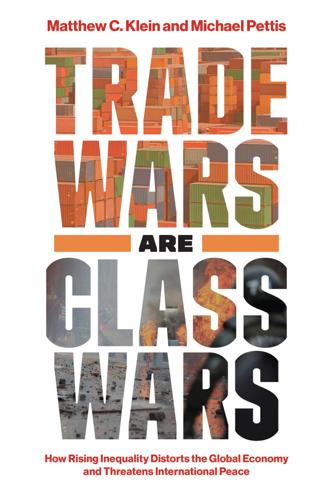
Trade Wars Are Class Wars: How Rising Inequality Distorts the Global Economy and Threatens International Peace
by
Matthew C. Klein
Published 18 May 2020
Conversely, countries where people collectively spend less than they earn must be investing their current account surpluses abroad; more money is going out to buy foreign assets than is coming in from the rest of the world to buy local assets.17 The following equations may help clarify these relations: Current account = Financial account + Statistical discrepancy Current account = Household saving + Corporate profits + Taxes – (Household investment + Business investment + Government spending) Financial account = Foreigners buying local assets – Locals buying foreign assets Financial account = Private sector financial account + Change in central bank reserves Large surpluses or deficits are not inherently good or bad. “Good imbalances” allow savers from richer surplus countries to earn healthy returns by financing development and rising living standards in deficit countries. This is what the United States did for much of the nineteenth century, when it imported mainly British capital to boost domestic investment to levels much higher than it could have otherwise achieved without squeezing American workers. More recently, except for a brief period in the late 1980s, South Korea consistently imported more than it exported in the decades from independence in 1948 until the Asian Financial Crisis in 1997.
…
Losses were concentrated in the places and sectors most exposed to competition from manufacturers in countries where workers are paid far less than they are worth, most notably China. There was nothing inherently wrong with American manufacturers opening operations in China. The problem was that workers in China and elsewhere were unable to consume additional imports from the United States, which broke the link between rising trade and rising living standards.36 In theory, the hit to manufacturing could have been offset by gains elsewhere in the economy. Yet despite the inflation of the health care, government, construction, finance, and education sectors—which accounted for most of the jobs created in the years before the financial crisis—the age-adjusted share of Americans with a job never surpassed the peak reached in 2000.
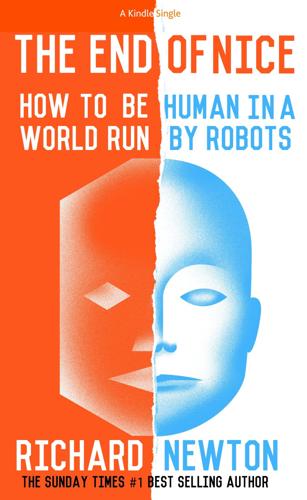
The End of Nice: How to Be Human in a World Run by Robots (Kindle Single)
by
Richard Newton
Published 11 Apr 2015
Safe was for the era when corporate titans serenely ploughed the seas of commerce troubled only by seven-year cycles of boom and bust; a time when long, constant, loyal employment and career progression were things you could believe in. The incentive to invite risk into your day or your life was pretty small when you could guarantee a good job with rising living standards and long-term employment. So almost everyone did that. In contrast, pursuing a field where the success rates were low – such as being an artist or setting up a business – simply didn’t seem a good idea to well adjusted people. Those who chose that route were the exceptions. They were the misfits who embraced the risk of failure because they were driven.
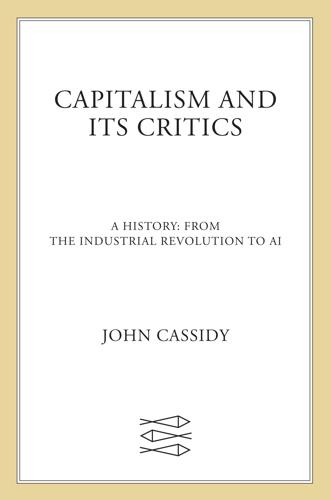
Capitalism and Its Critics: A History: From the Industrial Revolution to AI
by
John Cassidy
Published 12 May 2025
(“The Class war will find me on the side of the educated bourgeoisie,” he remarked in a 1925 address.)9 Throughout his life, his basic attitude to capitalism didn’t change much. It mirrored Winston Churchill’s famous aphorism that democracy was the worst form of government except for all the others. Keynes believed that a properly run system of global commerce based on private enterprise would deliver rising living standards, promote civilization (which to his mind meant higher learning and the fine arts), and preserve individual liberty (which he held sacrosanct) more effectively than any other economic system. The phrase “properly run” is a vital qualifier. Keynes’s faith in the market system didn’t extend to supporting laissez-faire, which he viewed as another outdated dogma.
…
In the United States, for example, inflation-adjusted median family income—the income of the family right in the middle of the income distribution—doubled between 1947 and 1975.7 The official statistics don’t identify who the median American family was each year, but it was most likely headed by a non-college-educated factory worker or office worker. In the Western core of the global economy, at least, Keynesian managed capitalism was delivering steadily rising living standards to many workers, especially members of labor unions. In two landmark contracts that General Motors reached with the United Auto Workers in 1948 and 1950, the carmaker agreed to give its workers annual pay raises tied to the cost of living and productivity improvements, as well as providing them with pensions and health insurance.
…
“This process of Creative Destruction is the essential fact about capitalism,” Schumpeter wrote in his 1942 book Capitalism, Socialism, and Democracy.19 But if Schumpeter agreed with Marx about how capitalism developed, he entirely disagreed with him about its results. Schumpeter viewed capitalistic creative destruction as the engine of economic growth and rising living standards. He downplayed class conflict, arguing that the employees and owners of a capitalist firm usually had a common interest in ensuring its success and profitability. (Not surprisingly, Schumpeter’s views would endear him to generations of business innovators.) Sweezy, in The Theory of Capitalist Development, hewed much closer to Marx than to Schumpeter, focusing on the pathologies and contradictions of industrial capitalism: exploitation, monopoly, imperialism, and instability.

Beyond the Wall: East Germany, 1949-1990
by
Katja Hoyer
Published 5 Apr 2023
W., 412 Calgary Winter Olympics (1988), 378–9 Carl Zeiss Jena (company), 194 Carlsohn, Hans, 216–17 Catholic Church, 76, 100, 112, 135, 278, 287, 289, 347, 348 Ceaus‚escu Nicolae, 352 Central Committee of SED, 120, 124, 127, 201, 237, 277, 290, 316, 335, 339, 409; attempts to rein-in Stasi (early-1960s), 219–20; entire membership resigns (3 December 1989), 410; and fall of Ulbricht, 246–51; headquarters of in East Berlin, 102, 246; Honecker’s ‘Beat Ban,’ 212–13; Mielke’s rise in, 107; and opening of the Wall (9 November 1989), 402; place within SED structure, 84, 88; political enemies of Honecker, 353; power struggle after June uprising (1953), 139–41; Secretariat of, 84, 88, 140, 211, 212; and Ulbricht’s Westpolitik, 243 Centrum (shopping centre chain), 256–7 Chávez, Hugo, 137 Chemnitz, 270, 386 Chernenko, Konstantin, 351–2, 353, 355–6, 357 Chernobyl nuclear disaster (April 1986), 384 Cherokee Nation, 373–4 Chile, 265 Christian Democratic Union (CDU), 59, 63, 81, 85, 390, 391, 413; and foundation of GDR, 74; in GrandCoalition (1989-90), 414; and ideological purges of early 1950s, 87–91; youth organization in FRG, 260 Churchill, Winston, 35 City (rock band), 268 civil/human rights: growing protests in late-1980s, 389, 390; Helsinki Accords (August 1975), 291–2, 386; human rights groups, 386, 389; illusion of in GDR, 85, 109; and ‘New Course’ (9 June 1953), 132; and public hopes for peace/security/food in 1950s, 109–10; and Schalck–Strauß ‘channel,’ 343–4 Clausewitz, Carl von, 350 ‘Clausewitz – Life of a Prussian General’ (film), 350 Claussen, Peter, 372–4 coffee: ‘coffee agreement’ with Mengistu, 299–300; coffee crisis (1977), 293–6; ‘Erichs Krönung’ (Erich’s brew), 295, 300; GDR’s production project in Vietnam, 296–8, 305; production in African nations, 298–300; supply of as huge and costly issue, 294, 295–6, 299–300 Cold War: Berlin as focal point of, 75, 125, 171–86, 207–8; Berlin Blockade (1948-9), 72, 73, 74–5; Fukuyama’s end of history claim, 3–4; heated tensions of the early 1980s, 342–3; Hungarian Uprising ends ‘thaw,’ 151; June uprising stoked by West, 129, 133, 141–2; Khrushchev’s Berlin demilitarization demands, 152–3, 171–2; Korean War (1950-3), 119; McCarthyism, 119; simplistic images of the Other, 7; ‘thaw’ after Khrushchev’s takeover, 149–50; unfolds on the world stage (1947-8), 72, 73; West sees victory as proving alternative models wrong, 5; Western intelligence agencies, 139, 141–2, 273–4 Communist International (Comintern), 12, 18, 22–3, 28, 29, 37, 48, 106, 137 consumer goods: car ownership, 197–8, 280, 325, 365; Intershops, 322–3, 327, 338; production of, 229, 280, 324–5, 334, 336–7, 365–6; refrigerators, 229, 280, 324–5, 365; subsidized branded American jeans, 256–9, 279, 327; telephones, 229; television ownership, 226, 280, 324–5, 337, 365; washing machines, 69, 229, 280, 324–5, 365 Crimean Peninsula, 328 cruise liners, 186–9, 224, 231 Cuba, 188, 300–3, 304, 319 Cuban Missile Crisis (1962), 175, 188 Czechoslovakia, 89, 215, 221, 233, 242 Dachau concentration camp, 64 Damerius, Helmut, 25 Danzig (now Gdańsk), 367 Davis, Angela, 260–1 DEFA (state-owned film production company), 128, 213, 257, 270 defence, national: ‘Defence Education Camps,’ 312–13, 314; dense network of sirens, 318; militarization of society after June 1953 events, 142–7; militarization of society (from late 1970s), 306–16, 317–19 Democracy Now, 411 Democratic Awakening, 413 ‘democratic centralism,’ doctrine of, 91–2 Democratic Farmers’ Party (DBD), 81, 390 Demuth, Renate, 43–4, 45, 323 denazification, 35, 58, 107–8; as foundational dogma of GDR, 36, 117–18 Dessau, 304 Deubel, Klaus, 334–5 Diener, Alfred, 135 Dietrich, Wolfgang, 339–40 Dimitrov, Georgi, 29, 37, 48, 49, 106, 137 Doherr, Annemarie, 171, 172 Döllnsee, Brandenburg, 209–10 Drasdo, Herbert, 217 Drasdo, Ursula, 217 Dresden, 50–1, 154–5, 236–7, 240, 334, 335, 345, 399, 409, 412 Druzhba (Russian gas pipeline), 360–5 Druzhba (Russian oil pipeline), 281, 330 Dubček, Alexander, 215 Duroplast, 198 Dzerzhinsky, Felix, 157–8, 216 East Berlin: 10th World Festival of Youth and Students (1973), 259–63, 271; and 17 June uprising (1953), 133–4, 150; Bebelplatz, 78; Central Committee headquarters, 246; events of October/November 1989, 393–4, 399, 401–4; FDJ’s march on West Berlin (August 1951), 93–6; Fernsehturm, Berlin Television Tower, 5–6, 225–6, 393–4; Friedrichsfelde Central Cemetery, 159, 263; Göring’s former Air Ministry, 77–8, 132; as much smaller than West Berlin, 76; Neue Wache (New Guard), 350; open sector borders, 125, 130, 171–2, 207–8, 217; Pankow district, 163; Stalinallee renamed Karl-Marx-Allee, 150, 225; Stasi’s Ruschestraße headquarters, 216, 217; State Council Building, 234–5, 237, 262, 263; strike at Stalinallee (June 1953), 129, 130, 132–3, 150; Unter den Linden boulevard, 78; Werner-Seelenbinderhalle, 86; Zionskirche, 388–9 Eastern Bloc countries: and Willy Brandt, 233–4, 242–3; Brezhnev Doctrine, 215; and Brezhnev’s conservatism, 214; deep financial problems (1981), 338; dependence on Soviet oil, 330; directive to after death of Stalin, 136; holiday opportunities in, 190; Honecker returns GDR economy to, 254–5, 274; Hungarian Uprising (1956), 16, 151, 163, 217, 313; impact of Gorbachev’s reforms, 398; Prague Spring (1968), 215, 233; show trials in, 89; suppression of Prague Spring (1968), 215, 233; Ulbricht as dismissive of, 242 Eberlein, Werner, 244, 329 Eberswalde, Brandenburg, 300, 301–3 Edition Leipzig (publisher), 350 education: compass on GDR flag, 228; extended secondary school (EOS), 204, 227, 228, 256, 315, 316; higher education, 193, 203–5, 227, 228, 312, 314, 315–16, 317, 318, 320, 325; kindergartens, 138, 155, 236, 239; and militarization of society, 145, 312–16, 318; military service before university, 312–13, 315–16, 317; in Moscow, 23–5, 97, 106; obligatory military education, 312–16; physical education, 235–6, 237; politicized structures within, 240; polytechnic secondary schools (POS), 227, 314; reforms (1965), 226–7; ‘Social Science’ unit at university, 126; and socialist ideology, 157, 160; spending on, 124, 138; technical colleges, 228; vocational training/apprenticeships, 111–12, 123, 155–6, 162, 183–4, 204–7, 227–8, 302, 325, 340, 369; in Weimar era, 105 Egerland, Helmut, 175 Egypt, 231–3 Ehmke, Horst, 273–4 Ehrenburg, Ilya, 42 Eisenhower, Dwight D., 141–2, 153 Eisenhüttenstadt (Ironworks City), 115, 150 Eisleben, 347, 348 Eisler, Gerhart, 74 electoral politics: doctrine of ‘democratic centralism,’ 91–2; fixed, allocated seat shares in GDR parliament, 81, 91, 91–2, 390–1; local elections (May 1989), 390–3; March 1990 election, 411, 412–13, 421; shift to multi-party democracy, 420–1; voting process, 92–3, 390–3; Western democracies today, 92 energy supplies: brown coal (lignite), 114–15, 282, 330; and dependency on USSR, 6, 115, 243, 281–2, 306, 329–31, 332–3, 336, 338; Druzhba gas pipeline, 360–5; GDR’s desperate need of, 115, 169, 279, 306; self-sufficiency drive, 114–15 see also oil production/supplies Engelberg, Ernst, 350–1 environmental issues, 114–15, 282, 330, 384, 387–9, 391–2 Erhard, Ludwig, 168, 232 Erler, Peter, 10 Ernst Thälmann Pioneer Organization, 318 Ernsting, Stefan, 265 Erpenbeck, Fritz, 31–2, 47 Ethiopia, 299–300 European Defence Community, 119 Ewald, Manfred, 237–8 Falge, Andreas, 402–4 Falin, Valentin, 58–9 Faustmann, Regina, 111–12, 117, 135, 155–6, 200 Fechter, Peter, 178–81 Federal Republic of Germany (FRG), 145; Adenauer’s election victories, 110; Angela Markel’s family move from, 338; Basic Treaty (1972), 261, 275; Brandt as first Social Democrat Chancellor, 90; constitution labelled as ‘provisional,’ 79, 276; cracking down on opponents, 85; declared the continuity state, 4, 417–22; demonstration in Essen (11 May 1952), 101–2; differences to GDR, 76–7, 114; economic aid from Western Allies, 76; exploits June uprising, 142; Federal Intelligence Service, 273–4; FIFA World Cup hosted by (1974), 266–8; food rationing ended (1950), 124; foreign contract workers, 303; as geopolitical pawn, 168; Germany Treaty (26 May 1952), 121; ‘Grand Coalition,’ 233; grants Israel arms purchase credit, 232; growth of trade volume with GDR (from 1984), 345–6; Hallstein Doctrine (1955), 156, 232–3, 275; idea of 1945 as ‘zero hour,’ 4, 38; and immigration from GDR, 130–1, 162; and inner-German thaw (1970s), 275–6, 322–5, 327, 331–2; limited social mobility in, 240, 316–17; as much larger than GDR, 76, 114; national debt in 1980s, 280; NATO membership, 108, 119, 145–6; new capital in Bonn, 76; ‘ohne mich’ (count me out) generation, 168; open welcome to former Nazis, 117; outright ban of the KPD (1956), 85; proclamation of constitution (23 May 1949), 73–4; rearmament/remilitarization (from 1952), 119, 122, 145–6; religious populations of, 76; reunification as a constitutional aim, 276; Schalck–Strauß ‘channel,’ 341–6, 357; selling of prisoners to, 277–9, 282, 387; Stalin Note (10 March 1952), 119–22, 141; Stasi spies in, 272–3, 274; streamed education system, 227; Welcome Money for East German arrivals, 405–6, 407; women’s employment rates in, 156 see also Adenauer, Konrad; Kohl, Helmut; West Berlin Feist, Margot, 77–8 Fensch, Eberhart, 266 Field, Noel, 89, 90, 103, 106–7 First World War, 14, 15, 104 Fleischer, Anneliese, 118–19, 122 Forck, Bishop Gottfried, 389 foreign labour programme, 300–6 Forum Handelsgesellschaft, 322, 323 France, 119, 121 Frank, Mario, 86 Frederick the Great, 350, 351 Frederick William I, King of Prussia, 351 Free German Trade Union Federation (FDGB), 59, 187, 189, 321 Free German Youth (FDJ), 77–9, 93–6, 112; and 10th World Festival of Youth and Students (1973), 260; banned in West Germany (June 1951), 101–2; and ‘Blue Jeans,’ 255–6, 257; and building of Berlin Wall, 176–7; ‘Convention of the German Youth’ (June 1950), 100–1; denounces Western culture, 160, 212; and Druzhba gas pipeline, 361, 362; Forum (student newspaper), 201; as ‘Hitler’s children,’ 100, 167–8; Honecker as founder, 99–100, 256; Jugendtourist (Youth Tourist), 367; Kuhfeld’s delegation to Berlin (1969), 224, 225–6; Angela Merkel’s role in, 288, 369; militarization of, 144, 145; stuffy image of, 160, 202; waning enthusiasm for, 200–1; Western members of, 101 Freie Welt (Free World) magazine, 264, 265 Freikorps, 14–15 Freudenberg, Ute, 269 Friedrich, Walter, 383 Fritschen, Brigitte, 44, 125, 162 Fritz Heckert (state-owned cruise ship), 186–8, 189, 224 fruits, exotic, 190, 218, 279 Fukuyama, Francis, 3–4 Fulbright Scholarship scheme, 373 Fulbrook, Mary, 93, 108, 205 Fürnberg, Louis, 82–3 Gaddafi, Muammar, 300 Gagarin, Yuri, 200 Geige, Hans die, 364 gender equality: childcare system, 155, 345, 413, 419–20; divorce rates, 207; female officers/recruits in NVA, 380–2; impact of reunification, 415, 419; as inherent feature of socialist ideology, 15, 155, 205; and kindergarten system, 138, 155, 236, 239; limited success of programme, 206–7; obstacles to, 205–7; pragmatic reasons for, 205; women in higher education, 203–5, 207; women in workplace, 111–12, 155–6, 319–20, 380, 419; women’s organizations, 92, 139–40; women’s rights activists, 16; women’s social lives, 156 Genex (mail order catalogue), 323–4, 361, 365, 366 Gerbilskaya, Luba, 21–2 German Communist Party (KPD): and creation of SED (May 1946), 62–4; exiles in Soviet Union, 9–10, 12–14, 15–20, 21–7, 28, 29–33, 36–8, 102; founding of (1918/19), 28, 29; Honecker joins Central Committee, 99; illegal information hubs in Nazi era, 78; members executed in Soviet Union, 19, 22, 102, 106; and Molotov– Ribbentrop Pact (August 1939), 26–7; Nazi suppression of, 11–12, 19, 21–2, 166; Neumann–Remmele group in Soviet Union, 102, 103; outright ban of in FDR (1956), 85; persecution during Stalin’s Terror, 9–10, 13–14, 17–21, 22–6, 31–3, 102; and post-war East Germany (pre-GDR), 35–8, 46–9; prisoners in Soviet gulags, 9–10, 13–14, 17, 25, 33; refounded under Pieck (June 1945), 58; Reichstag deputies (1933), 11–12; resentment towards the nobility, 65–6; Soviet deportations back to Germany, 20–1, 32; survivors of Stalin’s purges, 28, 29, 31–3, 36–8, 46–7, 87; in Weimar era, 14–15, 64, 105–6; in West Germany, 102 German Democratic Republic (GDR): 1950s as decade of missed chances, 167–9; acceptance of conscientious objection, 176, 315; alcohol consumption in, 366; alienates creative artists over Biermann, 291, 292; anti-Soviet sentiment of German men, 146; appeal of a genuinely anti-fascist, socialist state in 1950s, 110–11, 167–8; border crossings of November 1989 period, 403–7; ceases to exist (midnight 3 October 1990), 415–16; closer relations with West (late-1980s), 372–7; consolidation/stabilization (late 1950s/early 1960s), 5, 152–6, 158; dams of change broken (October 1989), 397–406; differences to FRG, 76–7, 114; feeling of helplessness as country dismantled, 415, 418–19; feeling of stability in 1987 period, 365–7; few natural resources in, 114–15, 169, 192–3, 198–9, 258, 281–2, 333; foundation of (7 October 1949), 74, 76; as geopolitical pawn to Moscow, 141, 168, 331–2; German refugees from the east in, 76; historiography of Prussia, 349–51; ideological purges of early 1950s, 87–91, 108; Khrushchev’s continued demand for reparations, 161; lack of political reform in last years of, 382–4, 390–3, 397–9; leadership’s deep mindset of fear, 108, 147, 163–7, 168, 219, 293, 318–19, 388–9; life as dull/stuffy in 1980s, 325, 360–1, 362, 367, 369–71; life as fairly comfortable in 1980s, 261–2, 320–1, 325, 362, 367, 371, 394–5; loses right to write its own history, 4; and ‘Luther Year’ (1983), 346–9; Angela Merkel’s life in, 1, 2–3, 259, 288–9, 367–9, 422; as much smaller than FRG, 76, 114; national flag of, 121, 228; normalization of German history in, 346–51; as not a footnote in German history, 5, 7, 418–23; ‘ohne mich’ (count me out) generation, 168; optimism/hope of early 1970s, 259–64; Ore Mountains (Thuringia and Saxony), 115–16; political events after opening of borders, 408–14; political repression in late-1960s, 228–9, 240; progress during 1960s, 186–98, 199–208, 219–20, 224–8, 229–31, 240, 242, 244–5; public hopes for peace/security/food in 1950s, 109, 110; regime as frightened of its own people, 109, 163–7; religious populations of, 76, 85, 112, 135, 138, 278, 284–9, 292, 349; rich cultural scene in 1950s, 112; room for private withdrawal in, 288–9; serious opposition to Ulbricht’s reforms, 93; show trials in, 89; silence over Red Army rapes, 45–6; Soviet backing of in late 1950s, 153; sudden disintegration of, 2, 397–416; suffocating weight of original economic burden, 114–18, 123–4, 138, 168–9; Ulbricht’s Soviet-style reforms, 86–7, 91, 93; vast Soviet reparations extracted from, 115–17, 168; widening gulf between regime and people, 166–7; widespread discontent at economic situation (early 1950s), 127–30 see also Honecker, Erich; Ulbricht, Walter German Democratic Republic (GDR), economy: 1970s as high point in living standards, 324–5; Apel’s death (December 1965), 214; Bavarian loan (1983/4), 343–5, 357; begins to catch up with the West (1960s), 194–5, 208; collaboration with Japan, 336, 337–8; consequences of land reforms, 66, 124; currency issues, 72–3, 169, 277, 322–4; desperate need for credit in early-1980s, 340–5; East Germans as highly attuned to 1980s crisis, 339–40; economic crisis of 1980s, 334–7, 338–42; economic planning commission, 194; economic/financial crisis (early-1950s), 123–5, 127–30; few natural resources, 114–15, 169, 192–3, 198–9, 258, 281–2, 333; first five-year plan (1951), 123–5; five-year plan (1981), 335; food rationing finally ends (1959), 124, 156; foreign trade/export markets, 6, 156, 192–4, 232, 234, 243, 258–9, 277–81, 319, 342, 345, 350; and FRG’s Hallstein Doctrine (1955), 156, 232–3, 275; fruit and vegetable production, 117, 124; game of ‘catch-up,’ 111–18, 123–4, 168; government lies about 1980s crisis, 338–9; growth of trade volume with FRG (from 1984), 345–6; haphazard/absurd efficiency measures (1981), 335; highest living standards in communist world (1970s), 6, 324–5; ‘Honecker Account,’ 279, 281; Honecker returns economy to Soviet bloc, 254–5, 274; Honecker’s five-year plan (1971), 253–9; illusion of progress as post-1975 state policy, 281–2; impact of armed forces build-up, 124–5; impact of denazification, 118; impact of emigration on, 125, 130–1, 138, 153, 161–2, 169–70, 171; impact of Russian oil price rise (1975), 281–2, 306; inherent dependence on Soviet Union, 6, 280–1, 306, 329–31, 332–3, 336; loss of expertise/resources to USSR, 118; nationalization policies, 36, 70, 71, 153, 161, 169, 254; need for high-tech future in 1980s, 335–6; ‘New Course’ (9 June 1953), 132, 138; ‘New Economic System’ (NES, 1963)., 193–5, 198–9, 210, 214, 335; possession of foreign currencies legalized (1974), 322–4; rising living standards from late-1950s, 153, 158, 229–31; rising living standards in 1970s, 279–80, 320, 324–5; rising living standards in post-1953 period, 138–9; rising productivity in 1970s, 279–80; sale of Nazi era paraphernalia, 282; Schalck–Strauß ‘channel,’ 341–6, 357; seven-year plan (1959), 161; Soviet loan and food subsidies (1953), 139; Treuhand’s privatization of, 414–15, 418; Ulbricht’s sharp U-turn, 160–1; Ulbricht’s Westpolitik policy, 243–4, 274; Western creditors in 1970s, 279, 281; withdrawal of Western investments (1982), 338 see also consumer goods German Democratic Republic (GDR), emigration/escape from: Baltic Sea route (‘State Border North’), 385; brain drain as inevitable with open border, 169–70; brief lull in emigration figures (1958), 153, 162, 169; from cruise ships, 187; economic and social impact of, 125, 130–1, 138, 153, 161–2, 169–70, 171, 385–6; facilitated by Western intelligence agencies, 139, 153; impact of ‘New Course,’ 138; legal methods in 1980s, 369–70, 384–5; and Karl-Heinz Nitschke, 385–7; from open sector borders in Berlin, 125, 130–1, 171; record number of leave applications (1988/89), 389–90, 398; refuge in West German embassies (1989), 398; through Eastern bloc after Gorbachev’s reforms, 398; by writers/artists/actors, 160 see also Berlin Wall; border, inner-German German Democratic Republic (GDR), foreign policy/diplomacy: Basic Treaty (1972), 261, 275; and Brandt’s Ostpolitik, 233–4, 242–3, 274; closer relations with West (late-1980s), 382–3; ‘coffee agreement’ with Mengistu, 299–300; de facto break with Moscow (1978), 378, 383; foreign aid to socialist nations, 303–4, 305–6; foreign contract workers, 300–6; friendship with Arab nations, 231–3; and Honecker-Kohl relationship, 353–6, 357, 359–60; inner-German thaw (1970s), 275–6, 322–5, 327, 331–2; joins United Nations, 261; membership of United Nations (1972), 6, 261; recognition by foreign countries, 6, 231–3, 261–2; signs Helsinki Accords (August 1975), 291–2, 386; Transit Agreement (1971), 275 German Democratic Republic (GDR), governmental structure: constitution (1968), 228–9; designed for easy merging with West Germany, 79, 110; first constitution, 79–85, 80, 109; fixed, allocated seat shares in parliament, 81, 91, 91–2, 390–1; forced democratization of (from October 1989), 399–406; illusion of civil rights and basic freedoms, 85, 109; as initially bicameral, 81; initially designed as federal system, 79–81; interim governing arrangements after collapse of SED, 410, 411; Ministerrat (Council of Ministers), 82; People’s Chamber (Volkskammer), 77–8, 81, 82, 84–5, 91–3, 132, 408–10, 415; and pretense of democracy, 49, 54–5, 61–2, 81, 390–3; role of President abolished (1960), 81; Round Table, 411; Staatsrat (Council of State), 81–2 see also Central Committee of SED; politburo of the Central Committee German Democratic Republic (GDR), political protests/opposition: 17 June uprising (1953), 5, 128–9, 130, 133–6, 139–40, 141–2, 168, 200; coverage in the Western media, 133, 385, 386–7, 388–9, 392; against denied applications for permanent leave, 370, 385, 386–7, 388–9; deportations to FRG, 389; environmental groups, 384, 387–9; events of October/November 1989, 393–4, 399–406; growth of in late-1980s, 389; human rights groups, 386, 389; idea of collective action as powerful, 387–9; Krenz promises Wende (turning point), 401, 407–8; as largely absent in 1960s, 245; and local elections (May 1989), 390–3; New Forum proclamation, 398–9; Karl-Heinz Nitschke, 385–7; organized groups from mid-1970s, 370, 384–93; pacifist/peace organizations, 384, 387, 388–9; question of GDR’s future (November 1989 period), 411–12; Red Flags targeted, 133, 146; as regular in 1953 period, 131, 132–5; ‘Riesa Petition for the Full Accomplishment of Human Rights’ (1976), 386; Soviet crushing of 17 June uprising, 134–5, 141; strike at Stalinallee (June 1953), 129, 130, 132–3, 150; Ulbricht’s responses to 1953 uprising, 136, 138, 141; white circles, 387 German reunification (1990): day of (3 October 1990), 415–16; debates in GDR (from November 1989), 411–13; desire to see as happy ending, 3–4, 417; Deutsche Mark exchange rate issue, 413, 414; East Germans’ refusal to forget GDR, 421–2; East-West economic imbalance, 418–19; final treaty signed (31 August 1990), 415; FRG-GDR negotiations, 414, 415; impact on childcare system, 419–20; Kohl’s ten-point plan for (28 November 1989), 412; limited social mobility after, 240; many successes of, 1–2; and March 1990 election, 412–13; monetary union, 414; nostalgia for GDR as not desire to bring it back, 421–2; old fault lines as not disintegrating, 418–22; People’s Chamber formally votes for, 415; popular support for in GDR (1989-90), 411–13; and role of women, 415, 419; and shift to multi-party democracy, 420–1; ‘solidarity surcharge’ (1991), 418; Treuhand’s privatization of GDR economy, 414–15, 418; triggers wave of change for East Germans, 417–22; Two Plus Four negotiations, 415; Wende as beginning of a dynamic process, 423; ‘West German’ equated with ‘normal,’ 417, 420–2; writing of GDR out of national narrative, 3 German Social Union, 413 German Unity Day (3 October), 1–3, 415 Germany: arrival of Red Army at end of war, 39–46, 47, 63, 146; Deutsche Mark (DM) introduced (1948), 72–3, 74, 169; four zones of occupation, 35–6, 58, 67, 68–9, 70–1, 72, 74, 76, 114, 172–3; German prisoners of war on Eastern Front, 30, 51; ‘Gruppe Ulbricht’ arrives in (April/May 1945), 46–9; ‘magnet’ theory on reunification, 243; merging of US and British zones (1947), 72; move towards division (1948-9), 71–4; Parteiselbstschutz (paramilitary wing), 105–6; post-war influx of refugees from the east, 51–2, 59, 76; process of ‘overcoming’ its own history, 422–3; question over inevitability of division, 74–5; rapes committed by Red Army soldiers, 40, 42–3, 45–6, 48, 146; reunification issue in 1960s/70s, 233–4; Revolution (1918-19), 10, 78; Ruhr industrial heartlands, 69, 115; Second World War reparations, 35, 68–9, 76, 115–17, 129, 139; shortages in post-war period, 41, 48, 50, 51; Soviet desire for reunification, 86–7, 100–1, 108, 110, 119–21, 122, 131–2; Soviet Zone of Occupation, 32–4, 35–8, 46–9, 51, 53–7, 58–66, 68–73, 74–5, 76, 114, 143; unification (1871), 417; wartime ruin/devastation, 47, 50–1, 53, 55–6, 77, 112, 153–4, 156–7; Weimar era, 14–15, 63, 64, 68, 105–6, 144, 166, 197; Western sectors, 63, 70–1, 72–3, 76 see also Federal Republic of Germany (FRG); German reunification (1990); Nazi Germany and entries for German Democratic Republic (GDR) Gieseke, Jens, 274 Goebbels, Joseph, 28–9, 62 Good Bye Lenin!

Zero-Sum Future: American Power in an Age of Anxiety
by
Gideon Rachman
Published 1 Feb 2011
It would be a mistake to believe that. It is the argument of this book that the international political system has indeed entered a period of dangerous instability and profound change. Over the past thirty years the world’s major powers have all embraced “globalization”—an economic system that promised rising living standards across the world and that created common interests between the world’s most powerful nations. In the aftermath of the cold war, America was obviously the dominant global power, which added to the stability of the international system by discouraging challenges from other nations. But the economic crisis that struck the world in 2008 has changed the logic of international relations.
…
But the modern authoritarianism of both countries is still miles away from the state terror of the Soviet and Maoist eras. In normal circumstances, in modern Russia and China only those people who directly challenge the state need fear repression. Meanwhile, the apolitical middle classes are kept happy with the promise of steadily rising living standards. The lack of a middle-class push for democracy in Russia and China is a challenge to the prevailing Western assumptions of the Age of Optimism. The standard argument was that economic liberalism would inevitably lead to political liberalism. Middle-class people who had gotten used to freedom and choice in their personal lives would eventually demand freedom and choice in politics, as well.
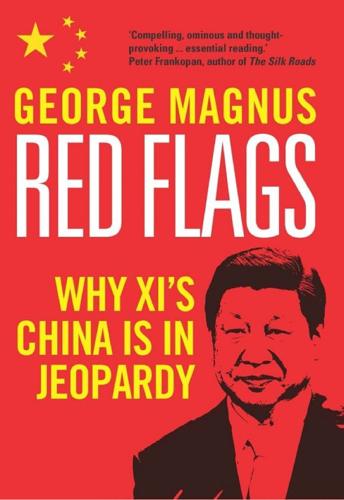
Red Flags: Why Xi's China Is in Jeopardy
by
George Magnus
Published 10 Sep 2018
China’s single-minded focus on heavy industry and capital-intensive production meant that traditional manufacturing and service industries, which are usually large employers of labour, didn’t expand as they could have done relative to population size. Between 1952 and 1978, for example, the number of people per employee in the retail sector rose from 81 to 214, and the number of people per restaurant rose from 676 to 8,189.11 Normally, we would have expected to see rising living standards and consumption trends reflected in a larger increase in the size of the retail and services industries. The greatest economic legacy of the Mao period for China may well have been its shortcomings and failures. These spawned a willingness on the part of new leaders to experiment, and to learn lessons from the rest of the world.
…
In 2013, driven by the growing awareness of the weakness of China’s demographic outlook, all couples were allowed a second child, if they were both single children. Whether the one-child policy had a marked role in lowering the fertility rate, in contrast to other factors, is a moot point, given the stance of public policy before the one-child policy was introduced.3 In any event, rising living standards still rank as one of the best forms of contraception. Consider that many places that never had a one-child policy have the same or lower fertility rates than China. These include Hong Kong, Singapore, Taiwan and South Korea, Germany, Spain, Greece, Portugal and Italy, Russia and most of eastern Europe, and Iran.
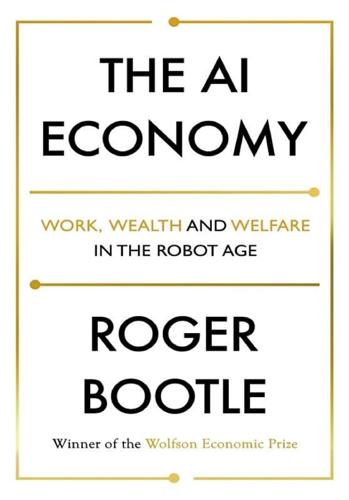
The AI Economy: Work, Wealth and Welfare in the Robot Age
by
Roger Bootle
Published 4 Sep 2019
Posthumously he earned one of the greatest consolation prizes going: Charles Darwin credited him as the inspiration for his theory of evolution through natural selection.14 Fluctuations and losers from change The account I gave at the beginning of this chapter makes it sound as though the post-Industrial Revolution world has been one long upward trajectory. That is indeed the impression given by Figure 1. And it is a very good first approximation of what happened. But it is not the whole truth. Once the engine of economic progress got going, there was anything but a smooth and even process of rising living standards for everyone. Indeed, the early decades of the nineteenth century constituted a prolonged period during which wage growth lagged productivity growth, and living standards were squeezed. This period is known as “the Engels pause,” after Friedrich Engels, Karl Marx’s collaborator and benefactor, who wrote about it in The Communist Manifesto, published in 1848.15 The historian Yuval Noah Harari suggests that in 1850 (i.e., before the consequences of the Industrial Revolution had started to elevate general living standards), “the life of the average person was not better – and might actually have been worse – than the lives of archaic hunter-gatherers.”16 Similarly, the economic historian Robert Allen has argued that it was only after 1870 that European real wages rose decisively above medieval levels, with Britain leading the way.
…
If this happens on any scale, then the robotics and AI revolution will surely not be of little economic importance, as Gordon alleges for computers and the digital revolution. Indeed, quite the opposite. So, just as many economists have started to become pessimistic about the capacity for economic progress and rising living standards, along has come a new “revolution” which promises to deliver just what they were beginning to despair of. But is it all that it is cracked up to be? And, if it is, so that the post-Industrial Revolution engine of progress is back in business, will the overall effects be the same as those that dominated the nineteenth and twentieth centuries?

The Fourth Industrial Revolution
by
Klaus Schwab
Published 11 Jan 2016
The US Bureau of Labour Statistics indicates that TFP growth between 2007 and 2014 was only 0.5%, a significant drop when compared to the 1.4% annual growth in the period 1995 to 2007.19 This drop in measured productivity is particularly concerning given that it has occurred as the 50 largest US companies have amassed cash assets of more than $1 trillion, despite real interest rates hovering around zero for almost five years.20 Productivity is the most important determinant of long-term growth and rising living standards so its absence, if maintained throughout the fourth industrial revolution, means that we will have less of each. Yet how can we reconcile the data indicating declining productivity with the expectations of higher productivity that tend to be associated with the exponential progress of technology and innovation?
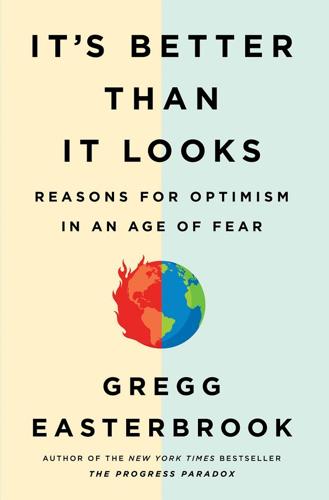
It's Better Than It Looks: Reasons for Optimism in an Age of Fear
by
Gregg Easterbrook
Published 20 Feb 2018
Yes, this book contains anecdotes, and here are a few. As this project progressed I found, when talking to audiences, that discussion of increasing longevity coupled to reduction of disease rates always caused someone to raise a hand and object, “How can you say that, I have a friend who has cancer.” Discussion of rising living standards and improvement of net buying power for average people always caused someone to raise a hand and say, “But I have a family member who is unemployed and says there are no jobs.” Other indicators of social improvement always caused someone to raise a hand and say, “But I know a person who…” At first I thought that for some convoluted psychological reason, good news scares people; after all, we are trained to expect the worst, and seldom disappointed.
…
Branko Milanovic, a Serbian-born economist at City University of New York, whose academic specialty is inequality research, says, “In China, less poverty and more inequality were part and parcel of each other. Probably there would have been no way to get the economic growth without the increased inequality and opportunities for corruption.” Perhaps there would have been no way to achieve the rising living standards that are benefiting most of the world without the insecurity that market forces generate, or without the side effect of an outsized One Percent whose opulence is offensive and whose political influence distorts every system of government. Inequality could be eliminated by confiscatory public policy, but that would stop the global economic system from reducing poverty.
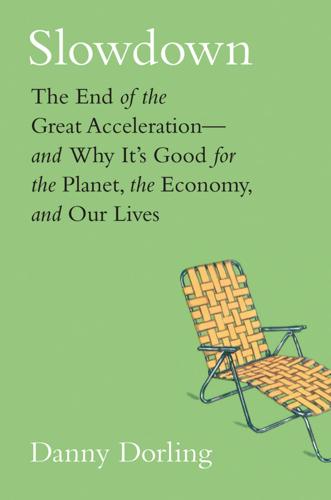
Slowdown: The End of the Great Acceleration―and Why It’s Good for the Planet, the Economy, and Our Lives
by
Danny Dorling
and
Kirsten McClure
Published 18 May 2020
You could look at the timeline in figure 14 that ends in 1960 and even imagine a slowdown coming, especially if you concentrate on the period from 1950 to 1960. However, a slowdown it was not to be. Had we known at that time the damage that this pollution would cause, it could have been much easier to deal with. Sadly, we equated industry with progress and greater production with rising living standards. The car was seen as a symbol of freedom and the airplane as a means of adventure. Traveling faster and further was to be admired. In September 1959, the Soviets’ unmanned Luna 2 spacecraft landed on the moon and the news was received in awe. CARS, ACCELERATION, AND ATTRIBUTION The emission of yet more and more CO2 into the atmosphere, leading to climate change and thus global warming, is still accelerating, but it cannot continue to do so indefinitely if we are to survive well (or—logically—even if we don’t prosper) as a species.
…
The children of that Socialist Sunday School in Bradford did not yet know that there were two world wars, the crash of 1929, and a Great Depression to come. Those who survived would also live to see, in their middle age, the arrival of the new dawn that they had been promised, a welfare state, free health service, full employment, high and still growing equality, and rapidly rising living standards. That is why this banner has survived: they won, despite all the adversity of their times. We need to plan to win again. Exactly a century after that banner was made, a research fellow at the Future of Humanity Institute at the University of Oxford published an article in which he detailed what he believed remain the five biggest threats to human existence: nuclear war, a bioengineered pandemic, superintelligence, nanotechnology, and unknown unknowns.
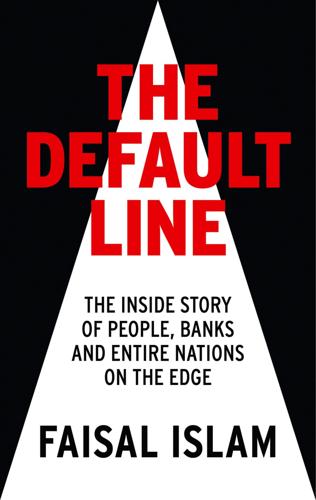
The Default Line: The Inside Story of People, Banks and Entire Nations on the Edge
by
Faisal Islam
Published 28 Aug 2013
Deng Zhi’s life is typical of the 262 million migrant workers who cross the length and breadth of China to work seventy-two-hour weeks, for £100 a month. Together, they form the biggest human migration on the planet, a monumental demographic shift of a quarter of a billion people in search of work, every year, 166 million moving thousands of miles to different provinces. They are the invisible labour force whose efforts have underpinned rising living standards in the West, and the rising influence of China around the globe. You can trace the roots of this extraordinary phenomenon back to the beginning of this century, when the Great Migration was sparked by the loosening of restrictions on rural migration. The numbers of migrant workers had been static at 60–70 million during the 1990s.
…
Epilogue: New Default Lines If there is any point to economics, and the pursuit of growth, it should be the advancement of ordinary people. In the years of easy growth before the credit bust, the rising tide lifted most vessels, from the superyachts to the rowing boats. But the promise of rising living standards for everyone has stalled. The boom in credit masked this for around a decade. In some countries, such as Britain, the United States and the nations of the Eurozone periphery, the argument right now is not so much about who shares the proceeds of growth, but rather who bears the burden of paying the cost for the decade of excess.
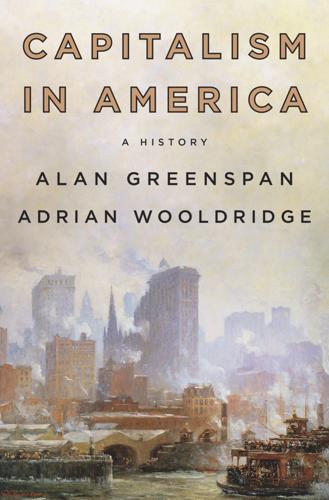
Capitalism in America: A History
by
Adrian Wooldridge
and
Alan Greenspan
Published 15 Oct 2018
Returning troops without a penny in their pockets could get into college and buy a house courtesy of the GI Bill. Blue-collar workers without more than a high school education could afford to raise a family in the suburbs. Opportunity bred optimism: Americans looked forward to a future of ever-rising living standards and the government embraced ever-loftier goals. This was a world in which everything was shiny and new—in which brand-new families brought brand-new houses (with garages) and filled them with brand-new things. In 1946, 2.2 million Americans plighted their troth—a record that stood for thirty-three years.
…
Advancing knowledge led to better behavior: cities began to remove garbage, purify water supplies, and process sewage; citizens washed their hands and otherwise improved their personal habits. The battle against ill health proved so successful by 2000 that some inhabitants of Silicon Valley began to regard death as a problem to be solved rather than a fact to be approached with dignity. But the most important driver was rising living standards that made it possible for people to afford better food, bigger and cleaner homes, and improved health care. As life expectancy increased, the workweek shrunk. In 1900, the average factory worker worked nearly sixty hours a week—ten hours a day, year in and year out. By 1950, the figure had declined to about forty hours, where it has more or less stayed ever since.

Seapower States: Maritime Culture, Continental Empires and the Conflict That Made the Modern World
by
Andrew Lambert
Published 1 Oct 2018
The late nineteenth-century Qing Empire used the same method of enhancing political control – with catastrophic operational consequences. The Chinese state has maintained domestic political legitimacy by creating a high-growth economy based on manufacturing for export. The aim is to keep the population content through rising living standards, while withholding democratic accountability and political inclusion. In the eighteenth century Chinese imperial governments, equally focused on internal stability, were wiser. They restricted trade to a single port, Quangdo, which was as far from Beijing as possible, prevented contact between Westerners and the local populace, and stopped trade altogether when necessary.
…
It prefers terrestrial possessions, artificial islands, railroads, pipelines and canals to oceanic activity. China’s strategic and political cultures are best understood through the lens of the ‘Great Wall’ and the ‘Great Firewall’, barriers that are the antithesis of seapower identity. To sustain the export of manufactured goods, to sustain economic growth, deliver rising living standards within a rigid one-party state and control the spread of information, the Chinese leadership has devised a ‘New Silk Road’. This state-funded project would link China to Europe by rail to offload industrial over-production while controlling the spread of ideas. By contrast maritime connections have a long history of spreading unwelcome ideas, and are easily interdicted in war.
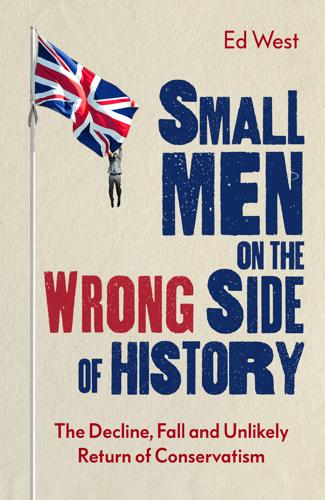
Small Men on the Wrong Side of History: The Decline, Fall and Unlikely Return of Conservatism
by
Ed West
Published 19 Mar 2020
This was something Margaret Thatcher herself remarked upon in 1981 when she said: ‘Economics are the method; the object is to change the soul.’ In a sense she achieved that wish, although not how she imagined or hoped. But then, although Gramsci is seen as some Svengali-like manipulator-genius by conservative opponents, in reality progressive domination was something that mainly happened because of rising living standards, technology, education and greater freedom – the latter, of course, partly thanks to Tory and Republican governments. Gramsci’s ideas have often been called ‘cultural Marxism’, although since the term has become very popular with the extreme Right, using it is bad optics, to say the least.
…
Which is pretty much the stupidest thing ever said by anyone – poverty is the most natural thing in the world, and until the nineteenth century the vast majority of people lived in it. Wages had barely improved for British workers from 1760 to 1820 but by Marx’s time things were rapidly getting better, with rising living standards, as well as improvements in working conditions. There were also welfare schemes introduced to stave off revolution, and yet Marx still helped to create the popular idea of a world of urchins starved and worked to death by a callous squirearchy. At my school the Industrial Revolution was largely presented as an endless litany of poverty and misery, rather than the greatest breakthrough in living standards in history.

The New Snobbery
by
David Skelton
Published 28 Jun 2021
A model should be developed that explicitly protects invention and innovation and directs this towards post-industrial areas. In the mid-twentieth century, the United States, inspired by Vannevar Bush through the Defense Advanced Research Projects Agency and the National Science Foundation, used such a strategy to boost American competitiveness and deliver the decades of rising living standards the country experienced until the 1970s. Such a strategy involves government investing in and incubating innovation and helping to transfer ideas from the initial invention to the marketplace. This links national strategic priorities with the benefits of new business ideas and protects and nurtures early-stage innovation which is both fragile and risky.
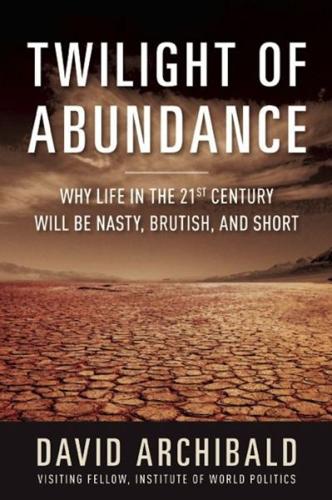
Twilight of Abundance: Why the 21st Century Will Be Nasty, Brutish, and Short
by
David Archibald
Published 24 Mar 2014
THE STATE OF CHINA’S DOMESTIC ECONOMY The Chinese economy has undergone strong growth over the last fifteen years, as profits from manufactured exports have been recycled into domestic housing stock and infrastructure. As a bubble economy, China’s economy is very likely to contract as the credit-fueled housing boom winds back. The legitimacy of the Chinese Communist party is conditional upon continually rising living standards. When growth falters, the politburo will switch to getting its legitimacy from leading the country in war. The only target that could satisfy the amount of emotional investment in remembering the century of humiliation is Japan. MILITARY READINESS The Chinese do not yet have all the weapons they would like to have for future conflicts.

The Singularity Is Nearer: When We Merge with AI
by
Ray Kurzweil
Published 25 Jun 2024
Relative poverty in the United States fell from about 45 percent in the nineteenth century, dropping dramatically during the postwar years, and reached about 12.5 percent in 1970, at which point it stagnated.[122] It has remained in the teens since,[123] fluctuating with changes in the wider economy, but has not seen long-term improvement.[124] One reason for this is that rising living standards have led to continual redefinition of the relative poverty line, so people who would not have been considered poor based on quality of life in 1980 are now considered poor.[125] Still, from 2014 to 2019, the number of Americans in poverty (according to the periodically redefined standard) declined by around 12.6 million, despite the total population’s rising by about 8.9 million in that same period.[126] And 4.1 million of that reduction came in 2019 alone, when the poverty rate among the elderly neared an all-time low.[127] While the COVID-19 pandemic caused a temporary increase,[128] it represented a deviation from the overall downward trend since the 2008 financial crisis.
…
Rather, famines usually happen because of bad governance or civil war. Under these conditions it is much harder for people to compensate for local droughts and other natural disasters, and more challenging for international assistance to be effective.[155] In a similar way, if we are not careful as a society, toxic politics could interfere with rising living standards. As COVID-19 showed, this is an especially urgent concern in medicine. Although innovation will unlock transformative capabilities to deliver affordable and effective treatments, this does not guarantee outcomes as if by magic. We will need an engaged public and sensible governance to manage a safe, fair, and orderly transition to more advanced health care.
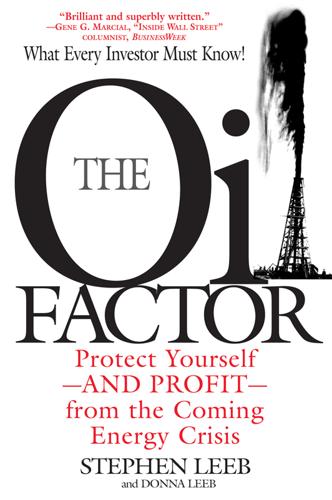
The Oil Factor: Protect Yourself-and Profit-from the Coming Energy Crisis
by
Stephen Leeb
and
Donna Leeb
Published 12 Feb 2004
But this just doesn’t jibe with the fact that in 1970 only 30 percent of married women with children under the age of six worked outside the home, while in 2000 the percentage was 63 percent. Changing social mores may explain some of the difference, but not most of it. The reality is that for a growing number of American families, two incomes are required to provide the necessities that one income could provide in 1970. This is just not consistent with rising living standards. In short, a belief that rising productivity has kept and will keep inflation tame is a bit like believing in Santa Claus. It’s a nice idea, but the weight of the evidence is against it. There you have our case for inflation, all nine chapters of it. Together, all the trends we’ve been describing are likely to cause inflation to take hold with the tenacity of a demented terrier that has sunk its teeth into some unfortunate prey.

Data-Ism: The Revolution Transforming Decision Making, Consumer Behavior, and Almost Everything Else
by
Steve Lohr
Published 10 Mar 2015
The Internet boom was under way, but there was a puzzle, economically. The Internet was minting millionaires aplenty and hailed as a revolutionary technology, yet it was not boosting the productivity of the American economy. Productivity gains—more wealth created per hour of labor—are the fuel of rising living standards, and a by-product of the efficiency that technology is supposed to generate. The conundrum raised the question of whether all of the investment in, and enthusiasm for, digital technology was justified. Robert Solow, a Nobel Prize–winning economist, tartly summed up the quandary in the late 1980s, when he wrote, “You can see the computer age everywhere but in the productivity statistics.”

Smart Cities, Digital Nations
by
Caspar Herzberg
Published 13 Apr 2017
While the author notes the relentless urbanization trend, the article stands mute on a key corollary to the author’s point of view: namely, how else might India reckon with the inevitable pressures of people, pollution, and strained resources. 13 There are excellent arguments supporting the limits on affluence and rising living standards in India and other populous nations. For more extended discussion, see Chapter 9. 14 Steve Hamm, “Inside Cisco’s Bangalore Play,” Bloomberg Businessweek, December 12, 2006, http://www.bloomberg.com/news/articles/2006-12-12/inside-ciscos-bangalore-play. THE INTERNET OF EVERYTHING TRANSFORMS BROWNFIELDS AND BEYOND IF THE SUCCESS OF A TECH COMPANY’S IoE growth depended solely on the progress of huge projects, such as India’s DMIC, it would take either great courage or foolishness to keep at the game of building smart cities.
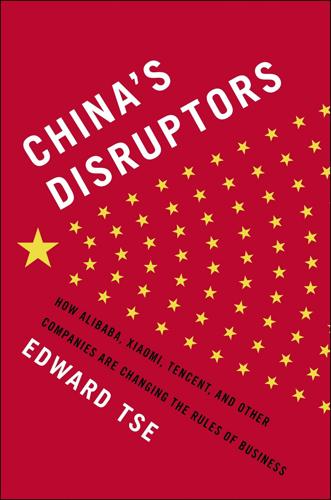
China's Disruptors: How Alibaba, Xiaomi, Tencent, and Other Companies Are Changing the Rules of Business
by
Edward Tse
Published 13 Jul 2015
But to interpret this as meaning that China stands at the brink of chaos is to totally misread the state of the nation. While overseas, particularly in the West, China is routinely described as a country lacking in basic freedoms and rights, in China the prevailing view is that the country is on the rise, living standards are improving, and as a result personal freedom is also far greater than ever before. Surveys of China by the Pew Research Center have repeatedly found that the country’s people are among the happiest in the world both with their current economic situation and with their prospects for the future.

Slouching Towards Utopia: An Economic History of the Twentieth Century
by
J. Bradford Delong
Published 6 Apr 2020
Both had such substantial populations that emigration was a drop in the bucket. Through misfortune and bad government, India and China had failed to escape the shackles of the Malthusian Devil. Technology had advanced, but improvements in productive potential had been absorbed by rising populations, and not in rising living standards. The population of China in the late nineteenth century was three times what it had been at the start of the second millennium in the year 1000. So potential migrants from China and India were willing to move for what to Europeans seemed to be starvation wages. Thus, the large populations and low levels of material wealth and agricultural productivity in China and India checked the growth of wages in any of the areas—Malaya, Indonesia, the Caribbean, or East Africa—open to Asian migration.
…
It is more complicated, however, to understand why these central banks sat on their hands. The 1920s had seen a stock market boom in the United States that was the result of general optimism. Businessmen and economists believed that the newly born Federal Reserve would stabilize the economy, and that the pace of technological progress guaranteed rapidly rising living standards and expanding markets. The Federal Reserve feared that continued stock speculation would produce a huge number of overleveraged financial institutions that would go bankrupt at the slightest touch of an asset price drop. Such a wave of bankruptcies would then produce an enormous increase in fear, a huge flight to cash, and the excess demand for cash that is the flip side of a “general glut.”
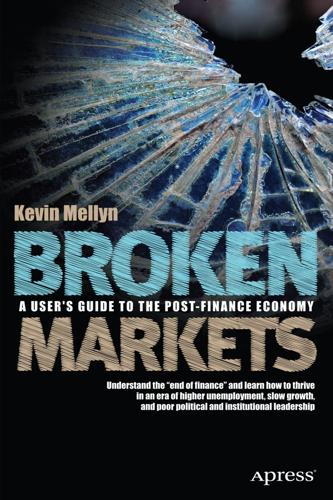
Broken Markets: A User's Guide to the Post-Finance Economy
by
Kevin Mellyn
Published 18 Jun 2012
Now, it is possible to make a case, as historian Louis Hyman does well in Debtor Nation (Princeton University Press, 2011), for a view that almost universal access to finance led to abusive practices and helped addict the American consumer to credit. Most development economists, however, would support the view that access to finance helps drive economic growth, social inclusion, and rising living standards. The balance of regulatory and political thinking before the crisis was on the side of maximizing financial inclusion, and the Broken Markets World Bank and other national and multilateral development agencies made it a priority. Now, for better or worse, the pendulum has swung sharply in the opposite direction in the developed world.
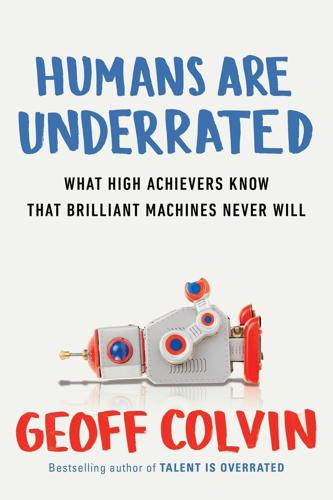
Humans Are Underrated: What High Achievers Know That Brilliant Machines Never Will
by
Geoff Colvin
Published 3 Aug 2015
The high school graduation rate rocketed from 4 percent in 1890 to 77 percent in 1970, a national intellectual upgrade such as the world had never seen. As long as workers could keep up with the increasing demands of technology, the two remained complements. The result was an economic miracle of fast-rising living standards. But then the third major turning point arrived, starting in the 1980s. Information technology had developed to a point where it could take over many medium-skilled jobs—bookkeeping, back-office jobs, repetitive factory work. The number of jobs in those categories diminished, and wages stagnated for the shrinking group of workers who still did them.
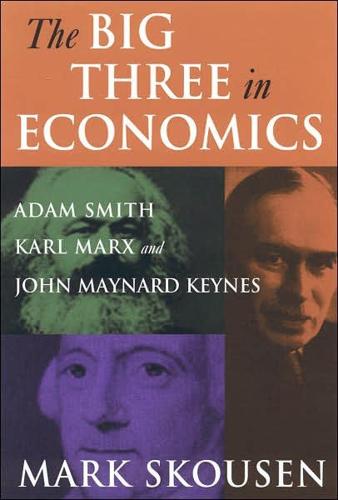
Big Three in Economics: Adam Smith, Karl Marx, and John Maynard Keynes
by
Mark Skousen
Published 22 Dec 2006
Like every worker, Smith desired high wages, but he thought they should come about through the natural workings of the labor market, not government edict. Finally, natural liberty includes the right to save, invest, and accumulate capital without government restraint—important keys to economic growth. Adam Smith endorsed the virtues of thrift, capital investment, and labor-saving machinery as essential ingredients to promote rising living standards (326). In his chapter on the accumulation of capital (Chapter 3, Book II) in The Wealth of Nations, Smith emphasized saving and frugality as keys to economic growth, in addition to stable government policies, a competitive business environment, and sound business management. Smith's Classic Work Receives Universal Acclaim Adam Smith's eloquent advocacy of natural liberty fueled the minds of a rising generation.
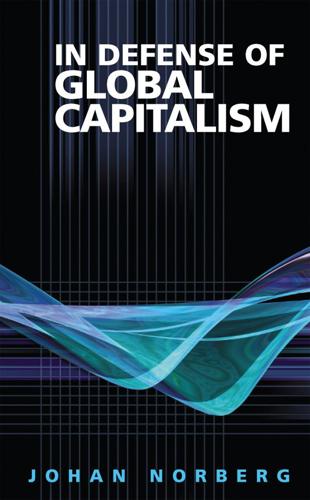
In Defense of Global Capitalism
by
Johan Norberg
Published 1 Jan 2001
If they were to lose their jobs, as a result of prohibitions or boycotts, a difficult situation would be made even worse. To tackle the problems, we have to distinguish which problems—prostitution and the enslavement of children, for example—must be fought by every available means, and which can only be counteracted through economic improvements and rising living standards. Save the Children, Sweden, continues: General assertions that child labor is a good or bad thing serve little purpose. . . . To regard all occupations as equally unacceptable is to simplify a complicated issue and makes it more difficult to concentrate forces against the worst forms of exploitation.5 Child labor in Sweden was primarily eliminated not by prohibitions but by the economy growing to such an extent that parents were able to give their children education instead—thereby maximizing the children’s incomes in the longer term.
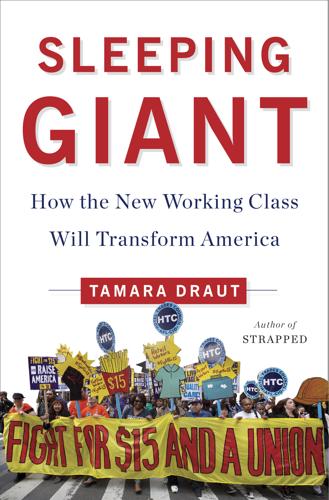
Sleeping Giant: How the New Working Class Will Transform America
by
Tamara Draut
Published 4 Apr 2016
America’s great economic expansion was overwhelmingly a white affair, with implications that I discuss more deeply in the next chapter. But it was a historic expansion. Backed by the force of law, workers who were paid wages and built this industrial, consumption-soaked era had the nation’s politics and spirit on their side. American workers experienced rising living standards that would have been unthinkable at the turn of the century. Quite extraordinarily, incomes grew fastest among workers at the bottom of the wage scale between 1947 and 1979.16 Workers in the bottom fifth experienced income gains of 116 percent, compared to 86 percent among those in the top fifth of the income distribution.17 Gross domestic product (GDP) grew a whopping 37 percent in the fifteen years after the war.18 Productivity gains enriched both corporations and workers, and for the first time in the nation’s history, large numbers of workers found themselves with enough disposable income to consume well beyond their daily needs.
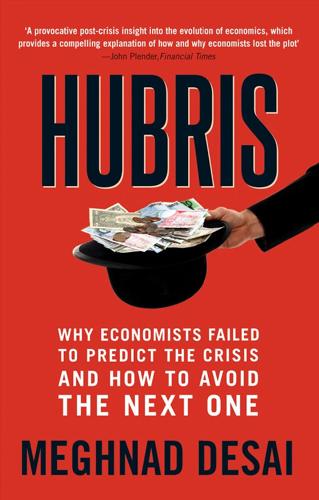
Hubris: Why Economists Failed to Predict the Crisis and How to Avoid the Next One
by
Meghnad Desai
Published 15 Feb 2015
The Role of Globalization As we are going through a crunch in the West, many economies in Asia, Latin America and Africa – the so-called “emerging economies” of China, India, Brazil, Indonesia and Nigeria – are debating “problems” of maintaining their growth at 5 percent or 8 percent or even 10 percent. What are they doing right that we are not? Could it be that what we had for three-quarters of a century – guaranteed prosperity and rising living standards – are about to disappear and become the experience of these countries who have been stuck in misery for the same long period? As they emerge, are we submerging? Is this the consequence of what is called globalization? Globalization became a buzzword in the 1990s sometime after the fall of the Berlin Wall.
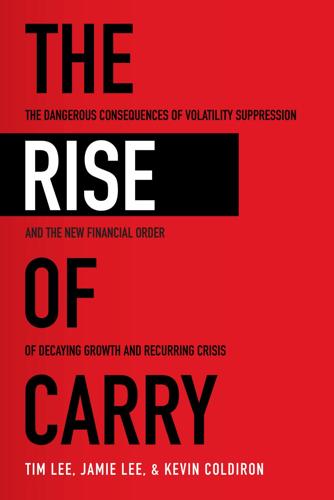
The Rise of Carry: The Dangerous Consequences of Volatility Suppression and the New Financial Order of Decaying Growth and Recurring Crisis
by
Tim Lee
,
Jamie Lee
and
Kevin Coldiron
Published 13 Dec 2019
Very few financial market commentators question the direct involvement of central banks in funding for foreign currency borrowing or the cooperation between central banks globally; it all seems very reasonable if it reduces market stresses and prevents crisis. Except that it is not. Free market economies work to produce rising living standards over time through a process in which the millions of people who make up an economy make decisions on working, spending, and saving (and investing), guided by prices and their assessment of risk and potential return. Certainly, the rise in living standards that this process produces over time does not usually occur in a straight line; it can be three steps forward and two steps back at times.
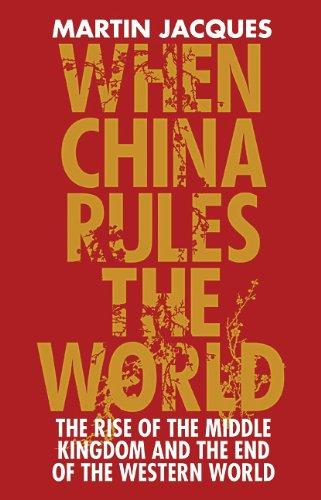
When China Rules the World: The End of the Western World and the Rise of the Middle Kingdom
by
Martin Jacques
Published 12 Nov 2009
None of the first Asian tigers - South Korea, Taiwan, Hong Kong and Singapore - achieved take-off under democratic conditions: South Korea and Taiwan were governed by far-sighted military dictatorships, Hong Kong was a British colony devoid of democracy, while Singapore enjoyed what might be described as a highly authoritarian and contrived democracy. All, though, were blessed with efficient and strategic administrations. As developmental states, the legitimacy of their governments rested in large part on their ability to deliver rapid economic growth and rising living standards rather than a popular mandate. Each of these countries has now achieved a level of development and standard of living commensurate with parts of Western Europe. Hong Kong, under Chinese rule since 1997, enjoys very limited elements of democracy; Singapore’s governance remains a highly authoritarian democracy; while South Korea and Taiwan have both acquired universal suffrage and multi-party systems.
…
During the Maoist period, the legitimacy of the state was expressed in terms of a new class system in which the workers and peasants were pronounced as the new rulers; during the reform period this has partly been superseded by a de facto results-based compact between the state and the people, in which the state is required to deliver economic growth and rising living standards. As testament to the historical continuity of the Chinese state, the same key elements continue to define the nature of the Chinese polity. There is the continuing absence of any form of popular accountability, with no sign or evidence that this is likely to change - apart from the election of Hong Kong’s chief executive, which may be introduced in 2012, and the present election of half its Legislative Council.
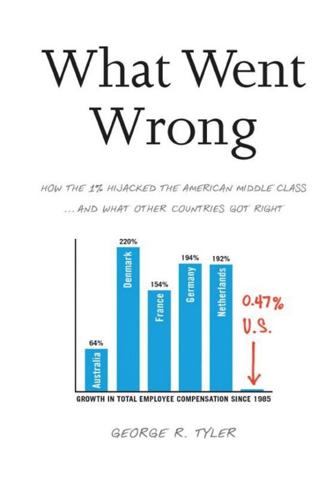
What Went Wrong: How the 1% Hijacked the American Middle Class . . . And What Other Countries Got Right
by
George R. Tyler
Published 15 Jul 2013
Prioritizing family prosperity also drives the Australian focus on education and upskilling. Here is how Australian Treasury Secretary Martin Parkinson explained it: “As competition intensifies globally, as the global economy transforms and as our population ages, we are going to only be able to deliver rising living standards if we are going to be able to deliver greater productivity…. Productivity is not about working harder or working longer, it’s actually about working smarter. This requires … top-notch management skills that would innovate and capture opportunities.”36 The urgency of upskilling drives an inclusive education system where “every Australian is offered the opportunity to succeed and reach their full potential,” explained Chris Evans, Australian Minister for Tertiary Education, Skills, Jobs and Workplace Relations in November 2010.
…
As the home of the Reformation, the Renaissance, John Calvin, John Locke, Rousseau, Voltaire, Adam Smith, and Friedrich Hayek, it is no surprise that northern Europe also became the center over the last century of reforms to strengthen capitalism. The explanation for that outcome is straightforward: voters have expectations of superior corporate governance. Enterprises are the device rich democracies have crafted to create rising living standards for all; maximizing that goal requires high-quality management committed to productivity growth and amenable to broadcasting the gains from such growth throughout society. Codetermination is the black box that achieves that duality, and it’s gone viral across northern Europe since World War II, spreading from its German roots.
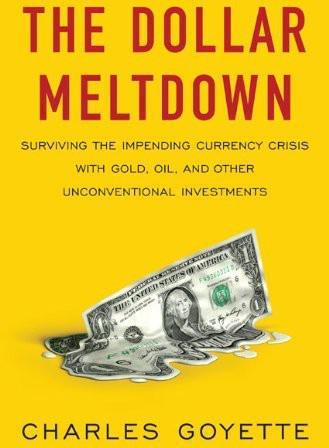
The Dollar Meltdown: Surviving the Coming Currency Crisis With Gold, Oil, and Other Unconventional Investments
by
Charles Goyette
Published 29 Oct 2009
It is astonishing that this should be taking place, especially at a time in which three billion people around the globe have rejected the poverty, want, and shortages of their command economies to begin to experience the blessings of abundance. It is not as though object lessons are wanting. China’s stunning economic growth, its modernization and rising living standards are the result of nothing more complicated than freeing the command economy. Although lessons abound, Americans are choosing—or perhaps failing to choose and therefore letting the choice be made for them—to go in much the same direction as the command economy of postwar Great Britain. That period saw the nationalization of entire sectors of the British economy, a currency crisis and prolonged economic decline including crippling unemployment and choking inflation.
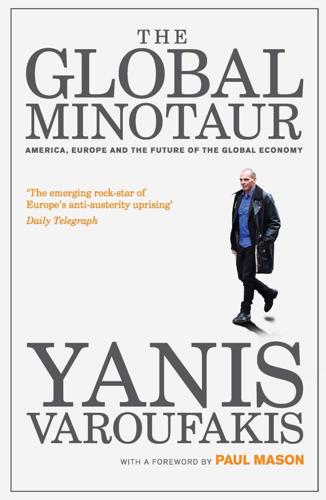
The Global Minotaur
by
Yanis Varoufakis
and
Paul Mason
Published 4 Jul 2015
Guess what the Germans and Japanese did with the profits from their new, energy-conscious, innovative products: they invested them in, or through, Wall Street! Cheapened, productive labour The American Dream may always have been based on a shared fiction. But the reality of more than a century of rising living standards was never in dispute. Things changed in the 1970s. The fear inspired by the collapse of Bretton Woods, the hike in oil prices and the impending loss of the Vietnam War polarized society and created a playing field on which the strong could do as they pleased, while the weak had to bear their burdens stoically.

Going Dark: The Secret Social Lives of Extremists
by
Julia Ebner
Published 20 Feb 2020
It is true that since the 1950s North America and Europe have experienced sharply falling fertility rates. It is also true that many Western countries abolished their sodomy laws and loosened their anti-abortion laws in the second half of the twentieth century. But the reasons for the declining birthrates over the past fifty years lie somewhere else. Research shows that rising living standards are responsible, with women’s education, the availability of contraceptives and the enhanced health and well-being of children being the important factors.8 This idea of a Great Replacement has fed into many new variations of anti-left or anti-Semitic conspiracy theories that draw on older concepts such as the ‘Hooton Plan’.
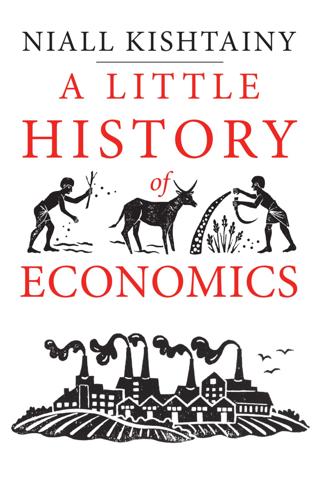
A Little History of Economics
by
Niall Kishtainy
Published 15 Jan 2017
Keynesian economics seemed secure when in 1971 President Richard Nixon, whose Republican Party was often wary of Keynesian fiddling with taxes and spending, said ‘I am now a Keynesian’. Despite some ups and downs, the decades following the Second World War hadn’t seen a repeat of the terrible depression of the 1930s. Economies grew steadily and brought rising living standards. But in the 1970s Keynesian economics lost its shine. Economists questioned whether Keynesian policies really were responsible for the good economic performance. Perhaps too much government spending was causing economies to become more unstable by pushing up inflation. New schools of economics emerged that attacked Keynesianism – we’ll come to them in Chapters 29 and 30.
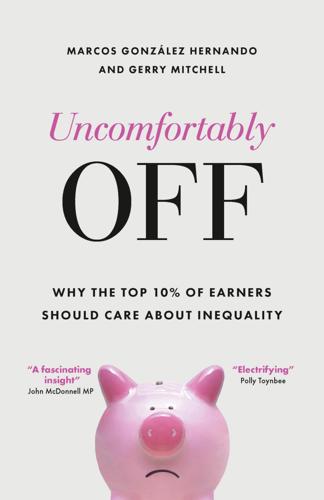
Uncomfortably Off: Why the Top 10% of Earners Should Care About Inequality
by
Marcos González Hernando
and
Gerry Mitchell
Published 23 May 2023
Those in Scotland conveyed an added lack of identification with British politics. Post-pandemic, they were also aware that Boris Johnson’s position had repeatedly been undermined by scandal, but there was a sense that there was no alternative. We can’t solve collective problems individually Data tell us that while economic development and rising living standards are important drivers of wellbeing in the developing world, having more makes less of a difference to wellbeing in richer countries.91 The weight of evidence also shows that economic growth in the UK has slowed markedly and that the fruits of whatever growth we had went overwhelmingly to very few at the top.
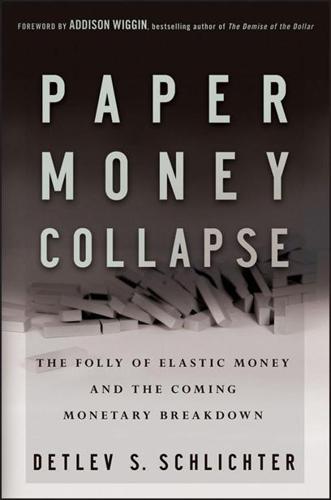
Paper Money Collapse: The Folly of Elastic Money and the Coming Monetary Breakdown
by
Detlev S. Schlichter
Published 21 Sep 2011
Obviously, human societies have made great advances throughout history while using practically inelastic commodity money. The Industrial Revolution occurred in what was basically a commodity money environment. Between 1880 and 1914 most of the developed world was on what came to be called the Classical Gold Standard. This was a time of rapidly growing international trade, of rising living standards, and stable and harmonious monetary relations between states. Additionally, a quick look at present monetary arrangements with their fully elastic money supply reveals that a growing supply of money does not even require a corresponding growth in demand for money. Today’s paper money can be created and placed with the public whether there is demand for it or not.

The Precariat: The New Dangerous Class
by
Guy Standing
Published 27 Feb 2011
What this trend means, and it is repeated in many countries, is that the ‘middle class’ is suffering from income insecurity and stress, being pushed into the precariat. Conclusions There was a crude social compact in the globalisation era – workers were required to accept flexible labour in return for measures to preserve jobs so that the majority experienced rising living standards. It was a Faustian bargain. Living standards were maintained by allowing consumption to exceed incomes and earnings to exceed what jobs were worth. While the latter fostered inefficiency and market distortions, the former put swathes of the population into bewildering debt. Sooner or later, the devil would have his due, a moment that for many came with the crash of 2008, when their diminished incomes fell below what was needed to pay off debts they had been encouraged to build.
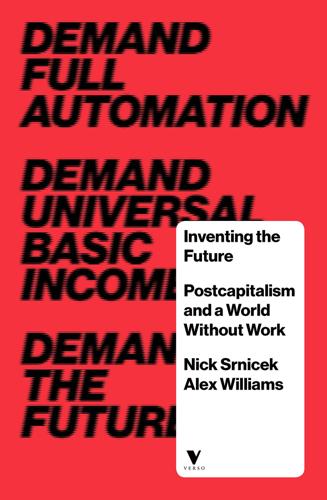
Inventing the Future: Postcapitalism and a World Without Work
by
Nick Srnicek
and
Alex Williams
Published 1 Oct 2015
This includes the reservoir of proto-proletarians (including peasants), but this group also includes unwaged domestic labourers, as well as salaried professionals who are under threat of being returned to the proletariat, often through deskilling (for example, medical professionals, lawyers and academics).41 The importance of this group is that it forms an additional reservoir of labour for capitalism when existing labour markets are tight.42 Finally, in addition to the other strata, a vast number of people are considered economically inactive (including the discouraged, the disabled and students).43 Overall, determining the precise size and nature of the global surplus population is difficult with existing data, and subject to fluctuations as individuals move in and out of categories, but a variety of measures converge to suggest it significantly outnumbers the active working class.44 This is the crisis of work that capitalism faces in the coming years and decades: a lack of formal or decent jobs for the growing numbers of the proletarian population. In an earlier generation, the identification of surplus populations as a problem was an idea that was often derided. During the ‘golden age’ of capitalism, low unemployment, stable jobs, rising wages and rising living standards meant the idea that capitalism produced a surplus humanity enjoyed little material support. Yet, while most leftist thinkers turned to the economic problems of growth for capitalism, an occluded intellectual tradition has instead emphasised the social reproduction problem of surplus populations.
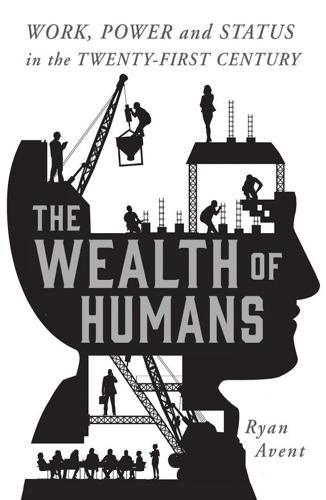
The Wealth of Humans: Work, Power, and Status in the Twenty-First Century
by
Ryan Avent
Published 20 Sep 2016
And so capitalists kept saving and investing and earning handsome returns on those savings, just as the wages earned by labourers grew in line with expanding economic activity. The rising tide didn’t wash away inequities, but it kept both capital and labour satisfied enough to hold the revolution at bay. From 1875 until the eve of the First World War, the world’s industrialized economies were extraordinarily unequal, but rising living standards for workers kept revolutionary fervour in check. Yet societies were not exactly living harmoniously, either. As Thomas Piketty notes, in Capital in the Twenty-First Century, it took the turmoil of the first half of the twentieth century to undo the inequality that developed in the nineteenth.
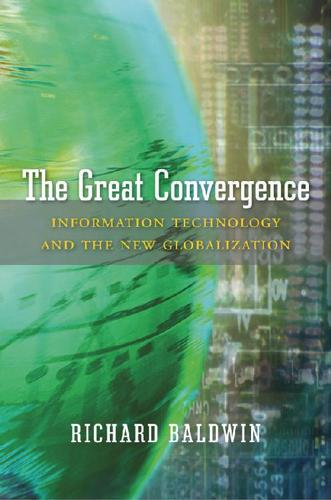
The Great Convergence: Information Technology and the New Globalization
by
Richard Baldwin
Published 14 Nov 2016
When it became clear who would win World War II, the Allies—especially the United States and United Kingdom—started designing the postwar architecture and they were dead set on avoiding the kind of international governance vacuum that had emerged after World War I. One of the key institutions they set up to avoid this was the General Agreement on Tariffs and Trade—or GATT, as it came to be known universally. The GATT’s mission was to foster rising living standards and sustainable development. Its members set out to accomplish this by establishing some basic “rules of the road” for international trade. They also committed themselves to negotiate reciprocal and mutually advantageous reductions in tariffs. While the GATT rules are complex, they were absolutely essential in fostering modern globalization, so it is worth distilling the GATT’s essence into one general principle and five specific principles.
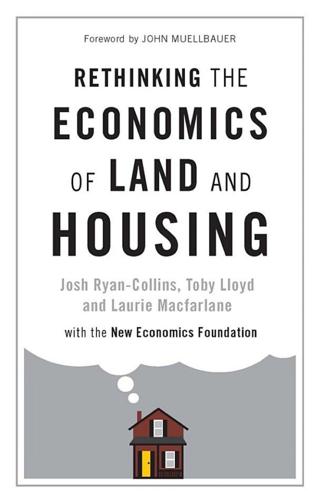
Rethinking the Economics of Land and Housing
by
Josh Ryan-Collins
,
Toby Lloyd
and
Laurie Macfarlane
Published 28 Feb 2017
As a result of direct state action to build council homes, by 1939 the percentage of households socially renting had risen to 10% (ONS, 2013b). The interwar period also saw the beginnings of the growth in homeownership that was to continue for the rest of the century. While in 1918 23% of households were owner-occupiers, by 1939 this had increased to 32% (ONS, 2013b). In the 1930s low interest rates, rising living standards and greater availability of affordable mortgages – mainly from mutually owned building societies – created a boom in private sector housing development. This was the period when the speculative model of private house building got going: relatively small-scale builders could buy agricultural land around cities and towns, and develop it as new suburban retail and housing for sale (see Box 4.2 below).

The Age of Stagnation: Why Perpetual Growth Is Unattainable and the Global Economy Is in Peril
by
Satyajit Das
Published 9 Feb 2016
John Maynard Keynes, in considering this phenomenon, concluded: “too large a proportion of recent ‘mathematical’ economics are mere concoctions, as imprecise as the initial assumptions they rest on, which allow the author to lose sight of the complexities and interdependencies of the real world in a maze of pretentious and unhelpful symbols.”2 In reality, economics is religion, with different sects. Governments profess faith in whichever prophet is fashionable, as long as it is consistent with their ideological framework and delivers growth and rising living standards. Clannish economists rarely agree on anything. A feud between prominent economists prompted a 2013 article entitled “The Paranoid Style in Economics.”3 There are disagreements on fundamental issues like the role of money and banks. Key assumptions about rational maximization behavior, efficient markets, stable preferences, and equilibriums are unrealistic.
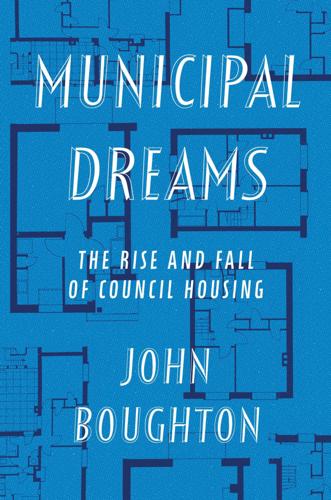
Municipal Dreams: The Rise and Fall of Council Housing
by
John Boughton
Published 14 May 2018
Slum clearance in the 1930s combined with the impact of the Great Depression brought a poorer working class into council housing for the first time, and with it some of the perceived problems and demonising stereotypes applied to council tenants more generally in recent years. The policy shift reflected a political division between Conservative politicians who believed council housing should properly be reserved for the neediest (the market would provide for the rest) and those on the left who saw it as serving ‘general needs’. Full employment and rising living standards after the Second World War reinvigorated the sense that council housing catered predominantly for a relatively prosperous and aspirational working class. But, from the 1970s, politics and economics combined to lower its status and that of its community. The National Rent Rebate Scheme implemented in 1973 (it became Housing Benefit in 1982), increasing access to council housing for the less well-off, was a significant factor in the shift.

Roller-Coaster: Europe, 1950-2017
by
Ian Kershaw
Published 29 Aug 2018
The long-term political objective was embedded in the Treaty of Rome itself: this was ‘to establish the foundations of an ever closer union among the European peoples’. The short- to medium-term objectives of the Treaty, which came into effect on 1 January 1958, were ambitious enough. They sought to consolidate and promote rising living standards through economic growth. There was to be free movement of labour and capital, the ending of trade restrictions, together with coordinated policies of social welfare and the creation of a European Investment Bank. The aim was to create a common market, free of internal tariffs. External tariffs, though generally reduced, were retained.
…
Not just the Red Brigades in Italy and the Baader-Meinhof Group in West Germany, but nationalists in Northern Ireland and separatists in the Basque Country were using terror as an intrinsic part of their campaigns. But nowhere was there a radical, let alone revolutionary, momentum. The underlying consensus that had developed in the post-war years, on the central role of the state to provide for the welfare of the population and to ensure constantly rising living standards, still held in its essentials. In fact, Social Democrats, the most staunch champions of the ‘big state’, under which high government expenditure (and taxation levels) paid for social welfare and improved living conditions for the poorer sections of society, generally gained ground in the 1960s and early 1970s.

Work Less, Live More: The Way to Semi-Retirement
by
Robert Clyatt
Published 28 Sep 2007
The approach has merit for those over 65 or with very large savings relative to their spending needs who are able to lock in most or all of their income needs with an annuity and still have money left over to invest in appreciating assets. Those who must put their entire life savings into an annuity to fund decades of daily living expenses risk having all their eggs in one basket —and perhaps worse, risk having the inflation-adjustments in the annuity fail to keep up with rising living standards over time. One interesting approach to annuities is to keep them in the family, with a private annuity. For example, a parent can pay a large initial sum, often in the form of appreciated securities or real estate, to a grown child, who is then obligated to pay the parent a regular monthly or annual payment for life.
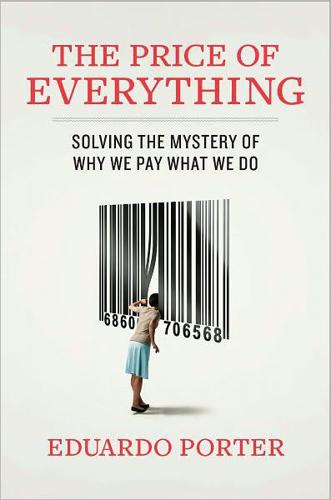
The Price of Everything: And the Hidden Logic of Value
by
Eduardo Porter
Published 4 Jan 2011
Between 1801 and 1901 the English population more than trebled, to around 30 million. Yet Londoners’ real wages more than doubled over the period. It is hard to overstate the importance of this economic transition. With the exception of newly settled colonies, never before had a country been able to achieve the double feat of a growing population and rising living standards. Yet England’s prosperity spread in the nineteenth century as the ships made with British steel brought Europe closer to the abundant natural resources and the sparsely populated land of the New World. From 1820 to the year 2000 economic activity sustained by the planet multiplied by almost sixty: the world’s population grew sixfold, to roughly 6 billion.
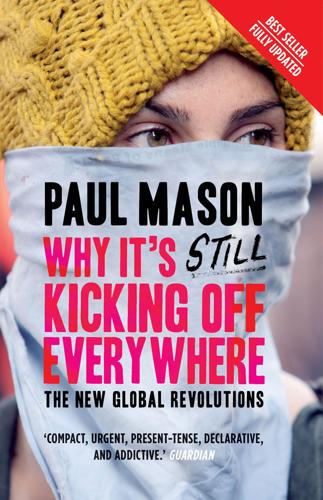
Why It's Still Kicking Off Everywhere: The New Global Revolutions
by
Paul Mason
Published 30 Sep 2013
Now however, the realization is dawning that the generation who started work in 2010, and who will retire in 2050, will have been poor through much of their working lives; they will be ‘asset poor’—unless the house-price bubble can be pumped up again—and dependent on a generation being born today to join the ‘race to the bottom’ in terms of wages and lifestyles. 10. This evaporation of a promise is compounded in the more repressive societies and emerging markets because—even where you get rapid economic growth—it cannot absorb the demographic bulge of young people fast enough to deliver rising living standards for enough of them. 11. To amplify: I can’t find the quote, but one of the historians of the French Revolution of 1789 wrote that it was not the product of poor people but of poor lawyers. You can have political/economic setups that disappoint the poor for generations—but if lawyers, teachers and doctors are sitting in their garrets freeing and starving, you get revolution.
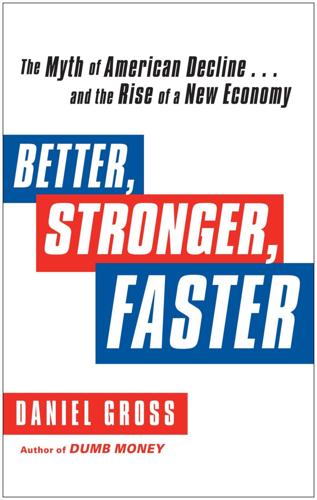
Better, Stronger, Faster: The Myth of American Decline . . . And the Rise of a New Economy
by
Daniel Gross
Published 7 May 2012
But the math and the logic are inescapable. On one side: a home market of 320 million chastened consumers struggling to make ends meet in a slow-growth economy, shorn of the debt and rising home values that fueled so much consumption. On the other: an international market of 6.6 billion people with (Europe aside) generally rising living standards and a willingness to pay through the nose for what Americans are selling. Service exports are somewhat oxymoronic, because they often involve working with customers who come from abroad. Just as foreigners are helping to recapitalize America through foreign direct investment, they’re replenishing American coffers by coming here and spending money on service exports.
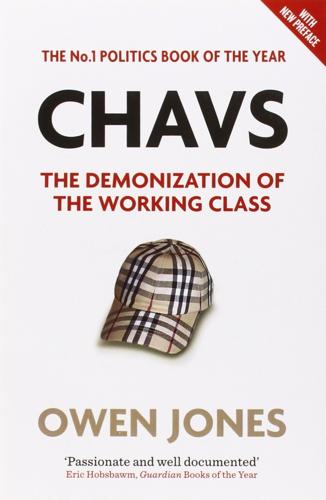
Chavs: The Demonization of the Working Class
by
Owen Jones
Published 14 Jul 2011
But the book's impact had less to do with the provocative title and everything to do with the fact that class is back with a vengeance. During the boom period it was possible to at least pretend class was no more-that 'we're all middle class now', as politicians and media pundits put it. As chancellor of the exchequer, Gordon Brown had pro- nounced the end of 'boom and bust', and it seemed as though a future of rising living standards beckoned for all. At a time of economic chaos, this period looks like a golden age-even if we now know our sense of prosperity was built on sand. Yes, it was true that real wages stagnated for the bottom half and declined for the bottom third from 2004 onwards--that is, four years before the economic collapse began.
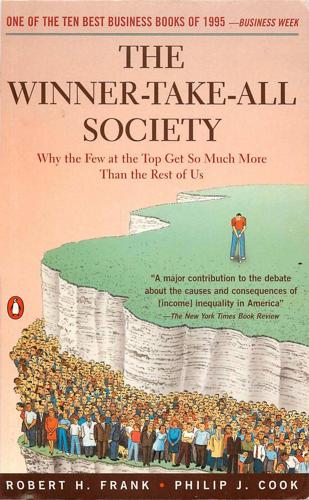
The Winner-Take-All Society: Why the Few at the Top Get So Much More Than the Rest of Us
by
Robert H. Frank, Philip J. Cook
Published 2 May 2011
The broad-based upward movement in earnings provided an ever larger group with the trappings of the American dream-a house in the suburbs, two cars, a college educa tion for the kids. All this came to an end with the Arab oil embargo of 1974. Since then, wages and salaries have generally lagged behind inflation, espe cially for males of average skills and education. So accustomed had most of us become to steadily rising living standards that it remains something of a shock to realize that the all-time peak in the average wage rate occurred more than two decades ago. Since then the in crease in labor force participation by women has mitigated the loss in male earnings, but despite this, median family income has grown little since the early 1970s.

Origin Story: A Big History of Everything
by
David Christian
Published 21 May 2018
That rise is the equivalent of an increase of 2,500 exajoules every thousand years, a rate of increase twenty thousand times as fast as in the agrarian era. The energy bonanza from fossil fuels, like the energy bonanza from farming, paid for population growth, for the complexity taxes demanded by entropy, and, finally, for rising living standards, but on a much larger scale than in the agrarian era. And this time, the rise in living standards was not confined to a tenth of the human population but extended to a much larger emerging middle class. Much of the energy bonanza from fossil fuels paid for increasing numbers of humans. It fed, clothed, and housed the five to six billion people added to the world’s population in the past two centuries.

Deep Thinking: Where Machine Intelligence Ends and Human Creativity Begins
by
Garry Kasparov
Published 1 May 2017
We can either see these changes as a robotic hand closing around our necks or one that can lift us up higher than we can reach on our own, as has always been the case. Romanticizing the loss of jobs to technology is little better than complaining that antibiotics put too many grave diggers out of work. The transfer of labor from humans to our inventions is nothing less than the history of civilization. It is inseparable from centuries of rising living standards and improvements in human rights. What a luxury to sit in a climate-controlled room with access to the sum of human knowledge on a device in your pocket and lament how we don’t work with our hands anymore! There are still plenty of places in the world where people work with their hands all day, and also live without clean water and modern medicine.
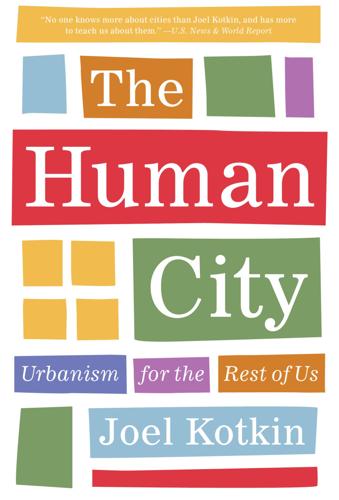
The Human City: Urbanism for the Rest of Us
by
Joel Kotkin
Published 11 Apr 2016
Venice was primarily a mercantile city, dependent on the export of goods and services to the rest of the world for its livelihood.25 Arguably, the most evolved of the early producer cities emerged in the Netherlands, a place that limited both imperial and ecclesiastical power. The Netherlands crafted a great urban legacy that, in its initial phases, involved rising living standards and remarkable social mobility. These trends led the Dutch to be widely denounced as avaricious people who valued physical possessions more than spiritual or cultural values. Yet this urban culture, as English historian Simon Schama noted, offered a high quality of life to its middle and working classes and even served its poorest class reasonably well.26 These Dutch cities—home to over 40 percent of Netherlanders—not only remained wealthier than those of other European countries but also managed to improve such things as hygiene and provide a better environment for children and families.
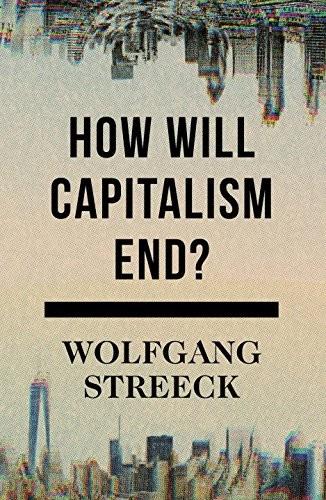
How Will Capitalism End?
by
Wolfgang Streeck
Published 8 Nov 2016
Inflation, much like credit, served to pull forward in time as yet non-existing resources, enabling employers and workers to realize in nominal money terms claims whose sum total was in excess of what was in fact available for distribution. While workers believed they were achieving what they perceived to be their moral-economic right to a steadily rising living standard combined with secure employment in their present jobs, employers were able to reap profits in line with expectations of a proper return as established in the decades of post-war reconstruction. As inflation continued, however, it devalued accumulated savings and increasingly distorted price relations.
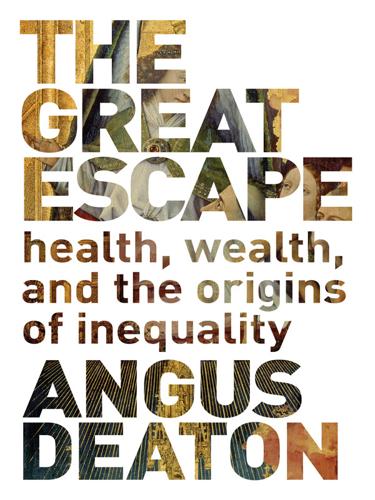
The Great Escape: Health, Wealth, and the Origins of Inequality
by
Angus Deaton
Published 15 Mar 2013
Humanity’s escape from death and deprivation began around 250 years ago, and it goes on to this day. Yet there is nothing to say that it must continue forever, and many threats—climate change, political failures, epidemics, and wars—could bring it to an end. Indeed, there were many pre-modern escapes in which rising living standards were choked off by precisely such forces. We can and should celebrate the successes, but there is no basis for a thoughtless triumphalism. Economic Growth and the Origins of Inequality Many of the great episodes of human progress, including those that are usually described as being entirely good, have left behind them a legacy of inequality.
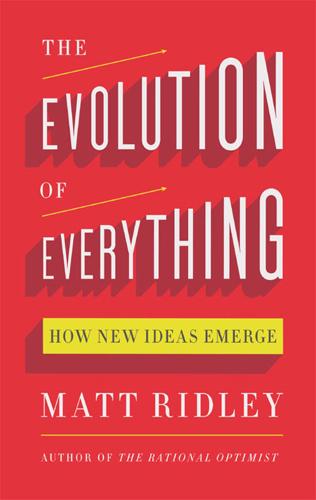
The Evolution of Everything: How New Ideas Emerge
by
Matt Ridley
Up until the late eighteenth century much wealth creation had been by plunder in one form or another, and there was nothing remotely resembling a free-market government in power anywhere in the world. Yet in the decades that followed the book’s publication, Britain in particular (and then much of Europe and North America) played out an extraordinary story of rising living standards, falling inequality and declining violence – thanks largely to the partial and hesitant following of Smith’s recipe. Sceptics might argue that the accumulation of plundered capital from the empire was the source of that wealth, but this is plainly nonsense. As Smith so clearly saw, colonies were mostly a drain and a military distraction.
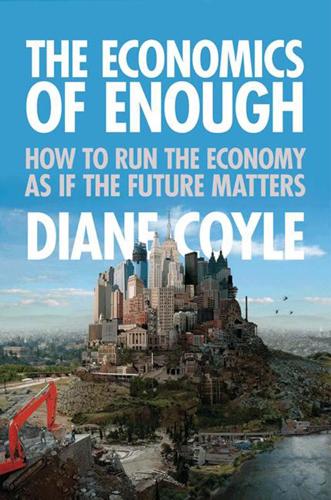
The Economics of Enough: How to Run the Economy as if the Future Matters
by
Diane Coyle
Published 21 Feb 2011
There is no or only limited scope for standardization and the use of technology to increase productivity. The increase in output is tightly limited by the amount of time spent by an individual performer—or teacher or nurse. If these workers are paid more as the years go by—just like everyone else in the economy thanks to economic growth and rising living standards—the cost consumers must pay for their services will rise relative to other prices. Baumol wasn’t alone in noting this phenomenon—a number of economists at that time, thirty or forty years ago, made the point in different ways. In his well-known book The Social Limits to Growth, Fred Hirsch diagnosed the problem as affluence allowing more and more people to demand “positional” goods whose output could not be expanded in line with incomes.
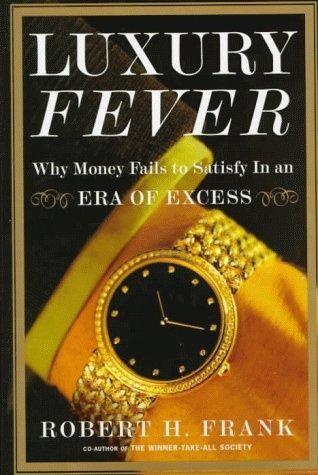
Luxury Fever: Why Money Fails to Satisfy in an Era of Excess
by
Robert H. Frank
Published 15 Jan 1999
Yet only the lunatic fringe would empower our government to confiscate money from whoever bureaucrats may feel is spending it unwisely. As conservatives are correct to remind us, the very incentives that led people like Onassis and Niarchos to accumulate such vast wealth have also resulted in millions of new jobs and dramatically improved levels of overall prosperity. If our high and rising living standard rests on the continued willingness of the rich to work hard and take risks, what does it really matter if they sometimes seem to spend their money in frivolous ways? Telling points all, and ones that critics of our current spending patterns have consistently failed to address. To say that the world we live in isn’t perfect is simply not an interesting claim.

The Everything Blueprint: The Microchip Design That Changed the World
by
James Ashton
Published 11 May 2023
In the future there was political capital to be had, but for now it was the financial benefits that were obvious. Between 1960 and 1985, real income per capita increased more than four times in Japan and the four tigers. A 1993 World Bank report, ‘The East Asian Miracle’, put the nations’ success and rising living standards down to ‘superior accumulation of physical and human capital’ and their ability to allocate those to ‘highly productive investments and to acquire and master technology’. That stance would continue to pay dividends. ‘In this sense there is nothing “miraculous” about the East Asian economies’ success,’ Lewis Preston, the World Bank president, wrote in the foreword.
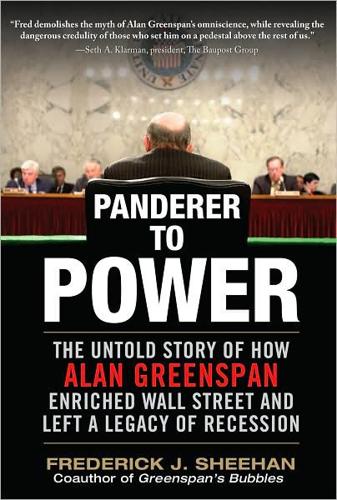
Panderer to Power
by
Frederick Sheehan
Published 21 Oct 2009
The Computer Revolution, published in 1997, rebutted the acceleration of productivity: it was a myth.8 Greenspan was not to be deterred. Years later, the Wall Street Journal reviewed the chairman’s campaign: Alan Greenspan began to push a reluctant Federal Reserve to embrace his New Economy vision of rapid productivity growth and rising living standards. . . . In October 1995, a group of supply managers from various industries visited the Fed to discuss the latest in high-efficiency “just-in-time” inventory management. . . . [One of the] executives described routing goods to drugstores: “They would load up a truck and without having orders send the truck out.
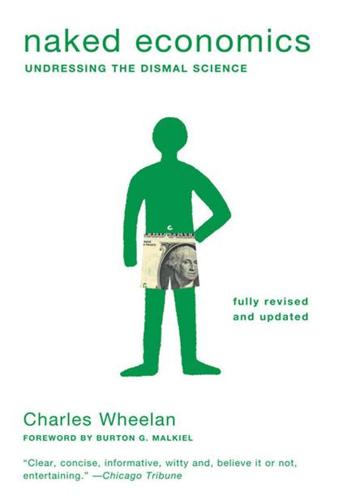
Naked Economics: Undressing the Dismal Science (Fully Revised and Updated)
by
Charles Wheelan
Published 18 Apr 2010
But let’s do a simple exercise to illustrate why it may be terribly wrong to impose our environmental preferences on the rest of the world. Here is the task: Ask four friends to name the world’s most pressing environmental problem. It’s a fair bet that at least two of them will say global warming and none will mention clean water. Yet inadequate access to safe drinking water—a problem easily cured by rising living standards—kills two million people a year and makes another half billion seriously ill. Is global warming a serious problem? Yes. Would it be your primary concern if children in your town routinely died from diarrhea? No. The first fallacy related to trade and the environment is that poor countries should be held to the same environmental standards as the developed world.
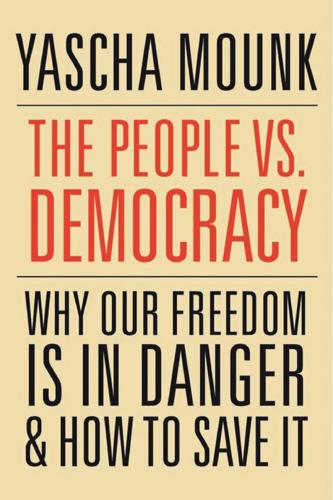
The People vs. Democracy: Why Our Freedom Is in Danger and How to Save It
by
Yascha Mounk
Published 15 Feb 2018
And as the technological gap between center and periphery has narrowed, the instigators of instability have won an advantage over the forces of order.31 We are only now starting to understand what has caused the existential crisis of liberal democracy, let alone how to fight it. But if we take the major drivers of our populist age seriously, we should recognize that we need to take action on at least three fronts. First, we need to reform economic policy, both domestically and internationally, to temper inequality and live up to the promise of rapidly rising living standards. A more equitable distribution of economic growth, on this vision, is not just a question of distributive justice; it is a question of political stability. Some economists have argued that we cannot have democracy, globalization, and the nation state all at the same time. And some philosophers have embraced the abandonment of the nation state, dreaming up predominantly international solutions to the economic problems we now face.
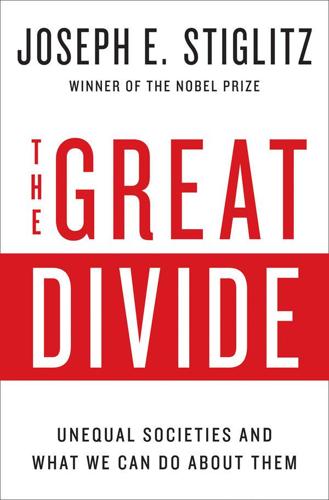
The Great Divide: Unequal Societies and What We Can Do About Them
by
Joseph E. Stiglitz
Published 15 Mar 2015
(The Gini coefficient, a measurement of inequality, improved by just 1.4 points from 2002 to 2008.) So while nations in Asia, the Middle East, and Latin America, as a whole, might be catching up with the West, the poor everywhere are left behind, even in places like China where they’ve benefited somewhat from rising living standards. From 1988 to 2008, Mr. Milanovic found, people in the world’s top 1 percent saw their incomes increase by 60 percent, while those in the bottom 5 percent had no change in their income. And while median incomes have greatly improved in recent decades, there are still enormous imbalances: 8 percent of humanity takes home 50 percent of global income; the top 1 percent alone takes home 15 percent.

The Case for Space: How the Revolution in Spaceflight Opens Up a Future of Limitless Possibility
by
Robert Zubrin
Published 30 Apr 2019
If we consider the energy consumed not only in daily life but in transportation and the production of industrial and agricultural goods, then Americans in the electrified 1990s used approximately three times as much energy per capita as their predecessors of the steam-and-gaslight 1890s, who in turn had nearly triple the per capita energy consumption of those of the preindustrial 1790s. Some have decried this trend as a direct threat to the world's resources, but the fact of the matter is that such rising levels of energy consumption have historically correlated rather directly with rising living standard, and, if we compare living standards and per capita energy consumption of the advanced sector nations with those of the impoverished third world, continue to do so today. This relationship between energy consumption and the wealth of nations will place extreme demands upon our current set of available resources.

Why Things Bite Back: Technology and the Revenge of Unintended Consequences
by
Edward Tenner
Published 1 Sep 1997
One makes experience more interesting than the other by increasing one kind of information and reducing another. Technological change heightens the role of style in sport by increasing choice. Cable television multiplies the number and variety of events, including overseas events, that are available to spectators. George Will notes that rising living standards and the suburban environment have reduced baseball's share of potentially outstanding athletes, with more youth preferring to play basketball or soccer, or participate in other activities. (This is probably the reason for the inability of today's top pitchers to match the velocity and skills of the stars of earlier generations, who as teenagers had no such competition for their time.
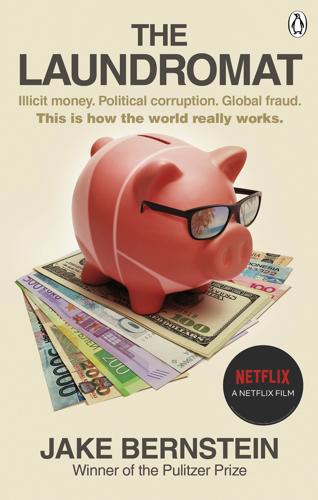
The Laundromat : Inside the Panama Papers, Illicit Money Networks, and the Global Elite
by
Jake Bernstein
Published 14 Oct 2019
BVI companies also proved irresistible to the criminal class. An anonymous company was the perfect vehicle to move or conceal the proceeds of illegal activity. Within a year of Mossfon’s arrival in the BVI, another Panamanian law firm, Morgan and Morgan, set up shop. More firms followed. Rising living standards in the developing world began to expand the market for offshore companies. What was once the domain of the superrich became accessible to the merely wealthy. Company incorporations catering to a new global elite took off, launching a boom period for the BVI. In Mossfon’s early years, the Caribbean was awash in drug money.
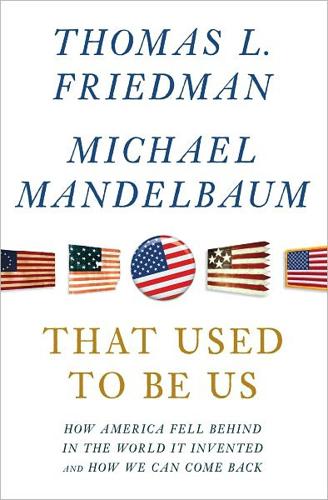
That Used to Be Us
by
Thomas L. Friedman
and
Michael Mandelbaum
Published 1 Sep 2011
The United States was able to vacuum up the best minds from India, China, the Arab world, and Latin America, where there were few opportunities for unfettered innovation or academic research. Wall Street firms dominated global markets and America had the world’s only developed venture capital system. It wasn’t that Americans were not hard workers or that our rising living standard was some fluke of history. We did work hard. Our success was based on real innovation, real education, real research, real industries, real markets, and real growth—but the playing field was also tilted in our direction. Now we have to try to sustain all those good things without all those structural advantages.
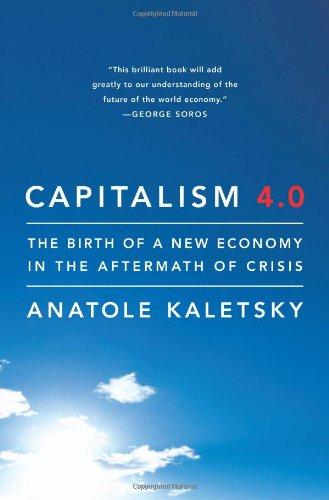
Capitalism 4.0: The Birth of a New Economy in the Aftermath of Crisis
by
Anatole Kaletsky
Published 22 Jun 2010
These social and technological upheavals, far from undermining capitalism, laid the foundation for a period of unprecedented prosperity and peace that Keynes described in a poetic passage suffused with his characteristic blend of irony and affection: “After 1870, there was developed on a large scale an unprecedented situation [of rising living standards and expanding production] . . . In this economic Eldorado, in this economic Utopia, as the earlier economists would have deemed it, most of us were brought up.”9 It is impossible to better Keynes’s wistful evocation of capitalism’s exuberant spirit in this prelapsarian Golden Age: What an extraordinary episode in the economic progress of man that age was which came to an end in August, 1914!

Selfie: How We Became So Self-Obsessed and What It's Doing to Us
by
Will Storr
Published 14 Jun 2017
The long nineteenth century was a time of intellectual and economic revolution in which developments in the realms of science, technology and industry had an explosive impact on the nature of who we were. This was the era of Darwin and Pasteur and Dr John Snow, of steam power, mass production, the railroad, electrification, rising living standards; the beginnings of class mobility; of magnetism, mesmerism, electricity, genes, heredity, adaptation, evolution, germs, infections, forces of nature, all unseen, all-surrounding, inside our bodies, under the earth, out there on the wind. This great storm inevitably stirred the Western self.
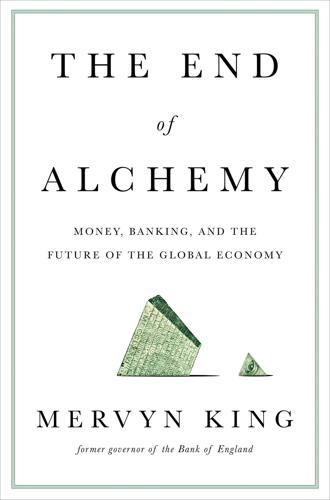
The End of Alchemy: Money, Banking and the Future of the Global Economy
by
Mervyn King
Published 3 Mar 2016
Over that period, national income in the advanced world more than doubled, and in the so-called developing world hundreds of millions of people were lifted out of extreme poverty. And yet runaway inflation in the 1970s was followed in 2007–9 by the biggest financial crisis the world has ever seen. How do we make sense of it all? Was the post-war period a success or a failure? The origins of economic growth The history of capitalism is one of growth and rising living standards interrupted by financial crises, most of which have emanated from our mismanagement of money and banking. My Chinese colleague spoke an important, indeed profound, truth. The financial crisis of 2007–9 (hereafter ‘the crisis’) was not the fault of particular individuals or economic policies.
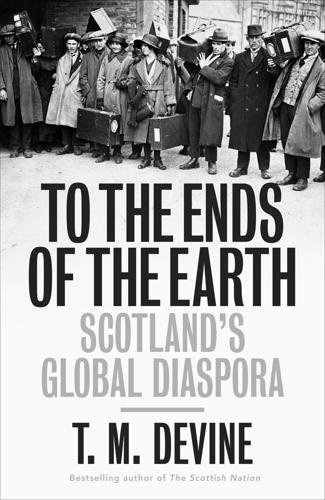
To the Ends of the Earth: Scotland's Global Diaspora, 1750-2010
by
T M Devine
Published 25 Aug 2011
Antibiotics were introduced for the first time on a large scale in the mid-1940s and soon wiped out tuberculosis, the killer disease of young adults in the very recent past. By 1960, Scotland’s infant mortality rate was the same as that of the USA and close to the figures for England and Wales. Rising living standards in the 1950s were shown by the steady increase in the range of new household appliances, such as washing machines, vacuum cleaners and electric cookers, which made homes easier to run. Leisure patterns were transformed by the television and, for a long time after its introduction, cinema audience figures tumbled.

Fire and Steam: A New History of the Railways in Britain
by
Christian Wolmar
Published 1 Mar 2009
It is easy to exaggerate the damaging aspects of the mania because they affected so many people, but in the long term the positive consequences outweigh the negative. As we saw in the last chapter, the railway network in 1843 was insufficiently developed and had not yet become a national system that could cater for the burgeoning economy and rising living standards. It needed expansion and while the mania might have resulted in over-rapid growth, there had been many gaps to fill. While clearly some unviable schemes were promoted during that period, that does not diminish the contribution of the mania in creating a vital part of Britain’s infrastructure which survives to this day.
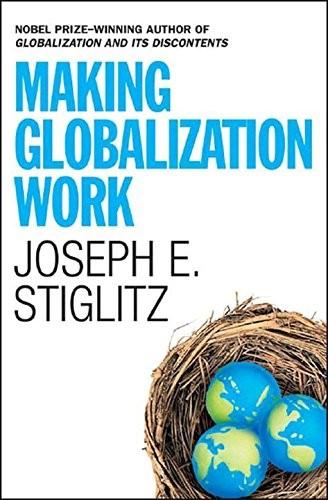
Making Globalization Work
by
Joseph E. Stiglitz
Published 16 Sep 2006
It will take decades to fully overcome the knowledge gap and the capital shortage in the developing world. The good news is that there will be a strong force pulling up wages in China and India. The downside is that there will be a strong force pushing down wages for unskilled workers in the West. So, while Americans and Europeans can rejoice in the rising living standards of unskilled workers in the developing world, they will be worrying about what is happening at home. The issue is not just the total number of jobs that will be outsourced—lost—to China or India. The real problem is that even a relatively small gap between the demand for and the supply of labor can create large problems, leading to wage stagnation and decline, and creating high levels of anxiety among the many workers who feel their jobs are at risk.

England: Seven Myths That Changed a Country – and How to Set Them Straight
by
Tom Baldwin
and
Marc Stears
Published 24 Apr 2024
But, as one of his many biographers has pointed out, Powell’s outrage was sourced not in a humanitarian mission to the world so much as his concern that such ‘un-British’ behaviour by white and Black people in Africa should be kept very separate from this country’s ‘civilised way of life’.79 At the same time, he became increasingly sceptical about Britain prioritising nuclear weapons over conventional forces not least because under Harold Macmillan’s deal with the Americans to buy Polaris, these missiles were effectively controlled by NATO.80 Powell’s sense of England’s existential crisis was, at least initially, at odds with the experience of millions of people who were enjoying rapidly rising living standards. Motorways were cutting a swathe through the countryside and vast construction projects like the bridge over the Humber were linking the north and south of England like never before. There were more hospitals, schools and universities, while 250,000 new homes were built in England every year for two decades from 1953.

McMafia: A Journey Through the Global Criminal Underworld
by
Misha Glenny
Published 7 Apr 2008
All had to improvise and no party quite understood the implications of its actions or their unintended consequences. One group of people, however, saw real opportunity in this dazzling mixture of upheaval, hope, and uncertainty. These men, and occasionally women, understood instinctively that rising living standards in the West, increased trade and migration flows, and the greatly reduced ability of many governments to police their countries combined to form a gold mine. They were criminals, organized and disorganized, but they were also good capitalists and entrepreneurs, intent on obeying the laws of supply and demand.

Behind the Berlin Wall: East Germany and the Frontiers of Power
by
Patrick Major
Published 5 Nov 2009
We—that is, my wife and I—are individualists and cannot identify with this state any longer.’⁹⁶ A high proportion of women applicants were seeking to join husbands who had left on previous trips, and surveys conducted with arrivees in the Federal Republic confirmed family reunion as a cardinal factor.⁹⁷ The files are filled with countless other ‘apolitical’, personal cases (without wishing to suggest that the family crises were anything but genuine, or that the state’s control of one’s personal life is anything but political).⁹⁸ Another set of justifications concerned the poor state of the economy. Here one was on relatively safe ground since the SED’s ‘unity of economics and politics’ programme had implicitly conceded rising living standards as a citizen’s right. Moreover, it was easier for the party to suspect leavers of base materialism than high principle. One couple, for example, criticized the lack of tourist destinations, fresh fruit and the fact that ‘we have been running around Leipzig for two months in search of coffee filters’.
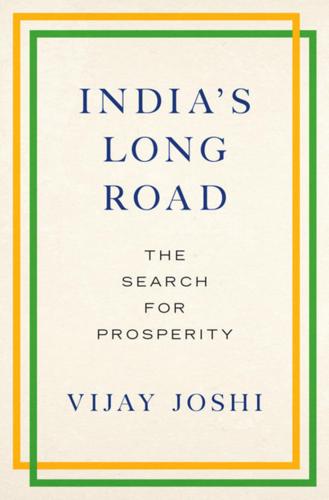
India's Long Road
by
Vijay Joshi
Published 21 Feb 2017
The resulting pay-off for growth and inclusion would be very large. The fiscal implications would be quite easily manageable if the dysfunctional explicit and implicit subsidies were wound up, which would in any case be desirable for several other reasons. Social protection is an essential feature of a good society. However, in the medium and long run, rising living standards for poor people depend much more on expansion of employment (discussed above), and provision of education and health care, than on redistributive transfers. Education and health care contribute to raising the growth rate by augmenting human capital. They are also of crucial importance in spreading the fruits of growth widely and enabling individuals to achieve their full potential and lead fulfilling lives.
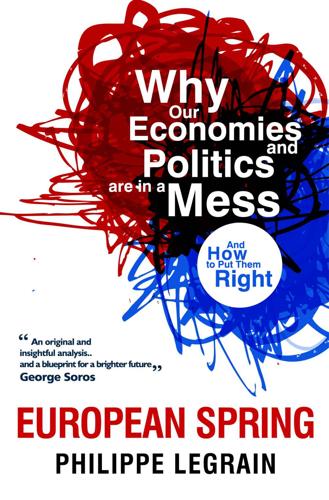
European Spring: Why Our Economies and Politics Are in a Mess - and How to Put Them Right
by
Philippe Legrain
Published 22 Apr 2014
The conventional case for central-bank independence rests on three planks: common agreement that low inflation is a good thing; the absence of a trade-off between low inflation and other desirable goals such as low unemployment, high growth or financial stability; and the belief that independent central banks are better placed to deliver low inflation at lower cost than politicians are. Yet in practice, most people care as much, if not more, about low unemployment, rising living standards and stable credit as they do about low inflation – and the ECB should take this into account in its decision making. Focusing exclusively on keeping inflation (too) low has come at the expense of financial stability and living standards, while privileging creditors over debtors. At the very least, then, the ECB needs a broader mandate that takes account of both asset-price and consumer-price inflation, financial and price stability, as well as growth and employment.
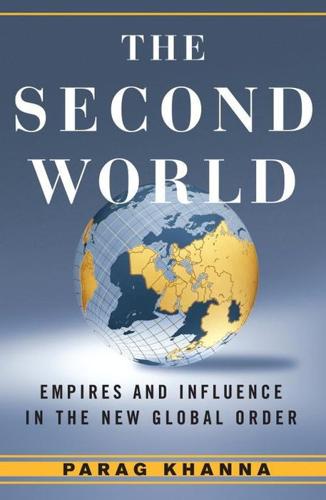
Second World: Empires and Influence in the New Global Order
by
Parag Khanna
Published 4 Mar 2008
Kazakhstan is becoming a nation of individual consumers rather than cogs in a Soviet-style machine. The private sector now accounts for most of the workforce and economy, and private banks raise funds on the London Stock Exchange. Government assistance to small enterprises, privatized land ownership, agrarian subsidies, and higher government salaries have all contributed to rising living standards—in both cities and rural areas. The poverty rate has declined, unemployment is the region’s lowest, and the country is the destination of choice for migrant laborers. New homes and apartment blocks are sprouting around Almaty and Astana, with professionals commuting to jobs with international energy and consulting firms.
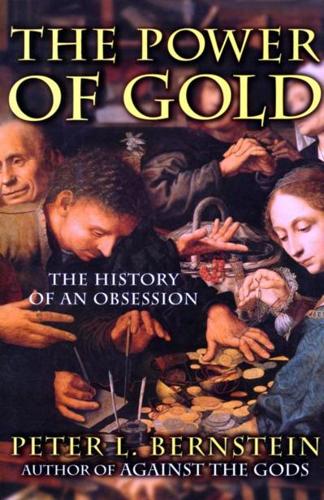
The Power of Gold: The History of an Obsession
by
Peter L. Bernstein
Published 1 Jan 2000
Not a single episode in the history of gold or money recounted so far in this book could have been of much)help. Nothing like the war of 1914-1918 had ever occurred before, in terms of scope, casualties, cost, or pain. It was natural to seek a return to the structure that most people believed had held the world together during the long peace and rising living standards of the Victorian and Edwardian eras, Disraeli's warning notwithstanding. In addition, experience had shown that mistrust in the value of money can have a powerful and destructive impact on social structures, the established order of property ownership, and economic progress. Newfangled experiments in the insecure environment of the postwar world had no attraction for the authorities, and for only a tiny number of the experts, especially in the world of finance.

Them And Us: Politics, Greed And Inequality - Why We Need A Fair Society
by
Will Hutton
Published 30 Sep 2010
As I argue in this book, the Enlightenment’s great achievement was to set Western economies and societies on a virtuous circle that broke this loop – and Britain was the first to join it. The Industrial Revolution was a tribute to the fecundity of the interaction between open-access political, economic and social systems. The great unleashing of human ingenuity and rising living standards over the last 250 years is tribute to the success of this model. Despite the attractions of utopias of left and right, this is the best approximation to an achievable utopia that we have. Democracy and the public realms are too precious to diminish the politicians who make them work on a day-to-day basis.
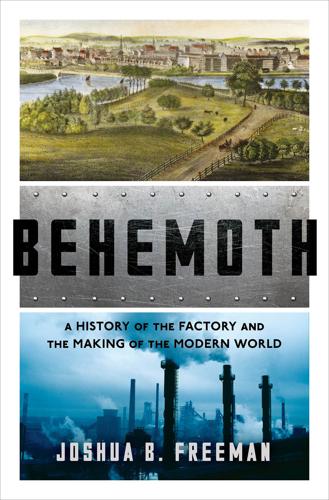
Behemoth: A History of the Factory and the Making of the Modern World
by
Joshua B. Freeman
Published 27 Feb 2018
To stimulate growth, the reformers sought at least the limited introduction of markets. They also pressed for a shift away from state investment in heavy industry. Somewhat like Bukharin and others in the Soviet Union a half century earlier, they argued that labor-intensive production of consumer goods would provide a more effective path to economic growth and rising living standards in a country lacking in capital but with plenty of underutilized labor. Over time, funds generated by light manufacturing could be channeled into more advanced, capital-intensive endeavors.15 Deng and his allies sought foreign capital and expertise to help expand industry without having a long-term blueprint.
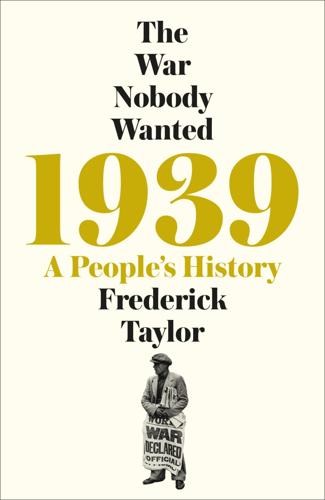
1939: A People's History
by
Frederick Taylor
Published 26 Jun 2019
The decision to abandon the gold standard in 1931 had permitted a more flexible economy than in other advanced countries, and thus a speedier recovery. High unemployment in the still depressed north of the country – leading to desperate popular protests such as the Jarrow March – contrasted with rising living standards in the English south and Midlands, where modern consumer-directed manufacturing (including motor-vehicle production, electrical equipment, radio communications and latterly aircraft production) and new service industries brought unheard-of prosperity. Owing to cheap credit, the 1930s was also an era of enormous expansion in house building, leading to a booming construction sector.
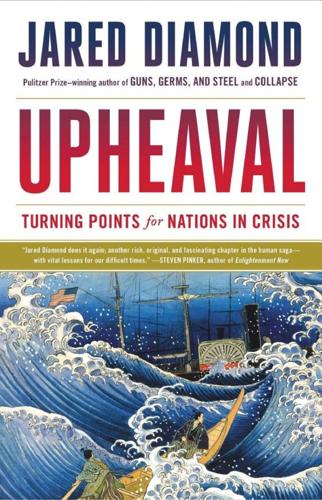
Upheaval: Turning Points for Nations in Crisis
by
Jared Diamond
Published 6 May 2019
Brandt’s treaty, and Schmidt’s and Kohl’s subsequent agreements, between the two Germany’s enabled hundreds of thousands of West Germans to visit East Germany, and a small number of East Germans to visit West Germany. Trade between the two Germany’s grew. Increasingly, East Germans succeeded in watching West German television. That enabled them to compare for themselves the high and rising living standards in West Germany, and the low and declining living standards in East Germany. Economic and political difficulties were also growing in the Soviet Union itself, which was becoming less able to impose its will on other Eastern Bloc countries. Against that background, the beginning of the end for East Germany was a step completely beyond the control of either West or East Germany: on May 2 of 1989, Hungary, an Eastern Bloc country separated from East Germany to the north by another Eastern Bloc country (Czechoslovakia), decided to remove the fence separating it on the west from Austria, a Western democracy bordering on West Germany.

Who Stole the American Dream?
by
Hedrick Smith
Published 10 Sep 2012
A recent International Monetary Fund study came to a similar conclusion—that a high level of income inequality can be “destructive” to sustained growth and that the best condition for long-term growth is “more equality in the income distribution.” The Unraveling The opposite has happened in America since the late 1970s. The soaring wealth of the super-rich has brought the unraveling of the American Dream for the middle class—the dream of a steady job with decent pay and health benefits, rising living standards, a home of your own, a secure retirement, and the hope that your children would enjoy a better future. As a country, we have declined from an era of middle-class prosperity and middle-class power from the 1940s to the 1970s to an era of vast fortunes and mass economic insecurity. We have fallen from being the envy of the world, with the most widely shared economic prosperity and the most affluent middle class of any place on earth, to losing our title as “the land of opportunity.”
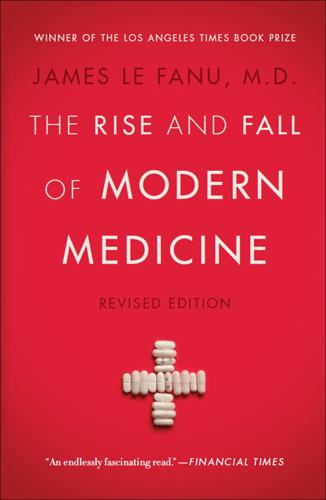
The Rise and Fall of Modern Medicine
by
M. D. James le Fanu M. D.
Published 1 Jan 1999
McKeown, it seems, overlooked, presumably deliberately, this important point, for as a historian subsequently observed: McKeown mis-stated, or failed to understand, the point demonstrated with brilliant clarity in the classic book The Prevention of Tuberculosis published in 1908, namely that the effect of placing consumptive patients in poor law infirmaries was to separate them from the general populace and to restrict the spread of the disease – the proportion of consumptive patients thus segregated corresponded closely to the progressive rate of decline of tuberculosis in England and Wales. Certainly, rising living standards and particularly improvements in housing would have contributed to tuberculosis’s decline, but ‘medical intervention’ – the identification of those with tuberculosis by examining their sputum and their subsequent incarceration in a sanatorium – was also very important. This might not be a conventional view of ‘medical intervention’, but it was instigated and co-ordinated by doctors with the clear intention of reducing the spread of the disease, so medical intervention it must be.6 When the slightest breath of scepticism is sufficient to undermine McKeown’s argument, perhaps a similar attitude will prove just as damaging to The Social Theory he instigated.
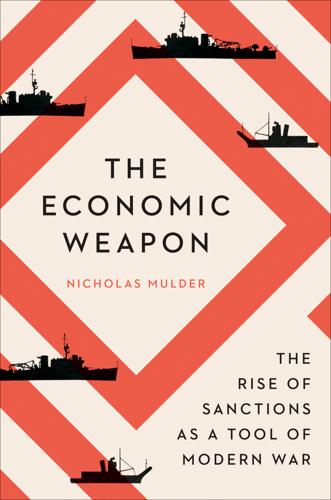
The Economic Weapon
by
Nicholas Mulder
Published 15 Mar 2021
That very phenomenon, extensive economic growth, provided another reason for the continued power of sanctions. Economists began to realize that what mattered in a war economy was not just the supply of raw materials but the rate at which they were consumed. In this regard the forces of population growth, urbanization, and rising living standards rendered the structure of interwar societies more fragile. On an annual basis, industrial economies in 1930 consumed twice as much coal and nine times as much oil as they had done in 1900.28 This heightened material throughput meant that shortages of raw materials would bite more quickly than before.

The Moral Animal: Evolutionary Psychology and Everyday Life
by
Robert Wright
Published 1 Jan 1994
This desertion of Rome’s earlier ideals may well have hastened the empire’s collapse, bringing the fluidity that allowed the competitive experimentation which fostered capitalism. (Perhaps analogously, it is only after the famous Mayan collapse that archaeologists find evidence in Mayan culture of a “mercantile pragmatism,” featuring the mass production of pottery, rising living standards for commoners, and the apparent demise of a theocratic elite in favor of a merchant class.) The story of the Middle Ages is the story of new technologies of non-zero-sumness restructuring society in their image. Their upshot ran counter to, and ultimately prevailed over, the generic ambitions of ancient imperial regimes.
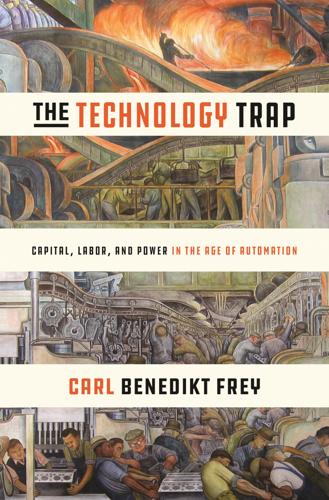
The Technology Trap: Capital, Labor, and Power in the Age of Automation
by
Carl Benedikt Frey
Published 17 Jun 2019
The law is part of a drive in France to promote “biblio-diversity” by helping independent bookstores compete.70 France decided to forgo productivity and consumer benefits in the interest of keeping jobs. This example is not offered as an endorsement of anti-automation policies. As history shows, labor-saving technology and rising productivity are a prerequisite for rising living standards over the long run. One reason why growth was so slow before the Industrial Revolution was precisely the resistance to technologies that threatened to render the skills of the workforce obsolete. The point is that there is nothing to ensure that technology will always be allowed to progress uninterrupted.

Nonzero: The Logic of Human Destiny
by
Robert Wright
Published 28 Dec 2010
This desertion of Rome’s earlier ideals may well have hastened the empire’s collapse, bringing the fluidity that allowed the competitive experimentation which fostered capitalism. (Perhaps analogously, it is only after the famous Mayan collapse that archaeologists find evidence in Mayan culture of a “mercantile pragmatism,” featuring the mass production of pottery, rising living standards for commoners, and the apparent demise of a theocratic elite in favor of a merchant class.) The story of the Middle Ages is the story of new technologies of non-zero-sumness restructuring society in their image. Their upshot ran counter to, and ultimately prevailed over, the generic ambitions of ancient imperial regimes.
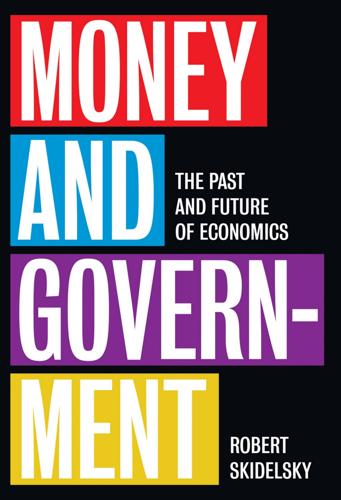
Money and Government: The Past and Future of Economics
by
Robert Skidelsky
Published 13 Nov 2018
R e for m i ng E conom ic s 51 Economics has a crucial part to pay in preserving the liberal political system. But to do so political liberalism must be detached from neoliberal economics. Economic policy is a central element in statecraft. If it helps societies to realize full employment, rising living standards and a fair distribution of opportunities and rewards, it can take a lot of the sting out of populist politics, which trades on economic discontent to push recidivist political agendas. Voters get annoyed by many things other than economic misfortune. Many don’t like immigration or gay rights, but they are normally not sufficiently annoyed by these things to vote for parties promising to cancel them, unless the economy is faltering as well.

Ellul, Jacques-The Technological Society-Vintage Books (1964)
by
Unknown
Published 7 Jun 2012
The orientation of this Humanism may be Communist or non-Communist, but it hardly makes any dif ference. In both cases it is merely a pious hope with no chance whatsoever of influencing technical evolution. The further we ad vance, the more the purpose of our techniques fades out of sight Even things which not long ago seemed to be immediate objectives — rising living standards, hygiene, comfort— no longer seem to have that character, possibly because man finds the endless adaptation to new circumstances disagreeable. In many cases, indeed, a higher technique obliges him to sacrifice comfort and hygienic amenities to the evolving technology which possesses a monopoly T h e T e c h n o lo g ic a l S o c ie ty (431 of the instruments necessary to satisfy them.

Cultural Backlash: Trump, Brexit, and Authoritarian Populism
by
Pippa Norris
and
Ronald Inglehart
Published 31 Dec 2018
The fact that Authoritarian-Populist parties have become powerful, even in societies with widespread prosperity and comprehensive welfare services such as Norway, Denmark, Switzerland, the Netherlands, and Sweden, implies that the economic grievance thesis alone cannot explain their electoral success. In Central and Eastern Europe, Hungary, Poland, the Czech Republic, and Slovakia have enjoyed rising living standards and rapid economic growth, compared with other post-communist societies, yet they have also experienced a series of populist gains. A comparative study of the region concluded that the emergence of this party family cannot be linked 154 Economic Grievances straightforwardly to adverse economic conditions.68 Nor do populist parties follow a common economic philosophy; thus, some such as SNS in Slovakia are market oriented, while others such as Ataka in Bulgaria and Jobbik in Hungary favor a partial return to state ownership.
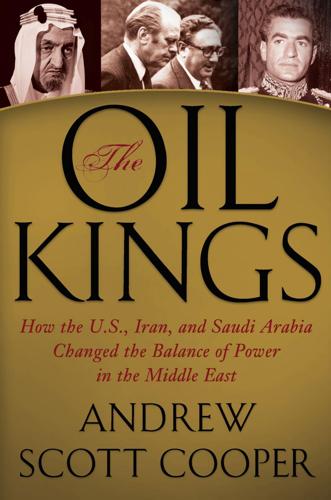
The Oil Kings: How the U.S., Iran, and Saudi Arabia Changed the Balance of Power in the Middle East
by
Andrew Scott Cooper
Published 8 Aug 2011
Indeed, the Johnson administration had produced an internal report a year later that concluded that “the nation’s total energy resources seem adequate to satisfy expected requirements through the remainder of the century at costs near present levels.” The United States was still the world’s biggest producer of oil in 1970. But that year American oil production peaked at 11.3 million barrels per day ending a happy era of low inflation, full employment, and rising living standards. To fill the growing chasm between consumer demand and energy supplies the Nixon administration loosened the import quotas of the Eisenhower era, then discarded them entirely in April. Foreign crude imports rocketed commensurately from 2.2 million barrels of oil per day in 1967 to 6.2 million barrels per day in 1973.

Winds of Change
by
Peter Hennessy
Published 27 Aug 2019
W. 218 Butler, David 331, 487 Butler, Rab and 1944 Education Act 452–3, 467 and 1963 Blackpool conference speech 451–2 and the 1964 Election 471, 489–90 always the bridesmaid 155–6, 401–9, 412–16, 432–3, 435 appointed Foreign Secretary 431 attitude to the EEC 79–81, 83, 116 appointed one of Douglas-Home’s nuclear deputies 445 and the British Empire 178 and the Cuban missile crisis 275–6 designated ‘minister-for-the-bunker’ 6 EEC-excluded steering committee member 333–4 ‘first gravedigger’ 228 and Hailsham 398–9 and Harold Macmillan 252, 361, 396, 400–401 and immigration controls 213, 215–17 leaking of Macmillan’s ‘massacre’ 157–61 and the Leyland contract 446–7 potential deputy prime minister 155 and replacement for Skybolt 312 talk with Menzies 118 Butler Report (2004) 247 Butler, Robin 425 Butlin, Wendy 302 Caccia, Harold 67, 278 Caine, Michael 240 Cairncross, Alec 140, 142, 151–3, 442 Calder Hall 355 Callaghan, James 126, 137, 335, 444 Cameron, David 435 Campaign for Nuclear Disarmament (CND) 236, 295, 297–9, 302–3, 468 Canada 74, 105, 107, 190, 261, 286 cannabis 462 Capitalism, Socialism and Democracy (Schumpeter) 426 Carmichael, Ian 25 Carousel (musical) 458–9 Carpenter, Humphrey 29 Carson, Rachel 11–12 Carswell, John 451 Cartier-Bresson, Henri 320, 329 ‘Case for Reform, The’ (Furse) 192 Case, Simon 242 Castle, Barbara 365–6, 369 Castro, Fidel 247, 250, 254, 264, 282 Castro, Raúl 250 Catholic Church 2–3, 463–5 Caulcott, Tom 155–6, 158–9 Cavendish Laboratory, Cambridge 358 Central African Federation 160–61, 179, 184, 188–92, 205–6, 214, 252 Central Electricity Generating Board (CEGB) 357–8 Central Government War Book 275 Central Government War HQ (alternative), Cotswolds 223–5, 229, 272, 274–6, 292, 297–8, 445 Challenge of Affluence, The (Offer) 500 Chamberlain, Joseph 377 Chandos, Lord see Lyttelton, Oliver Chapelcross, Dumfriesshire 355 Charles, Prince of Wales 210 Charlton, Michael 120, 325–6 Charter Films 26 Charteris, Martin 178, 408, 410, 414 Château de Champs, Paris 113–14 Checkpoint Charlie (Berlin) 232, 237–8 China 53, 61, 188, 231, 471 Chipped White Cups of Dover, The (Young) 18, 149 Chisholm, Janet 243 Chisholm of Owlpen, Baroness 388, 393 chronology 503–10 Church of England 463–4 Churchill, Randolph 399, 404, 411, 432–3 Churchill, Sir Winston and British place at the ‘top table’ 239 criticism of 409 and de Gaulle 60, 322, 325 determination of 43 and Europe 64, 73–4 last great imperialist 183 and nuclear power 357 plan for a nuclear shelter 4, 6, 9 rhetorical skills of 308–9 and the secret services 475 and ‘three interlocking circles’ notion 13, 36, 84, 94 CIA 50, 242–3, 250–52, 258 Civil Defence Corps 296 Civil Defence Staff College 291 Clark, Kenneth 106 Clarke, Otto 125, 146–8, 165 Clarke, Peter 424 Clay, Lucius 237 Cline, Ray 252 ‘Cliveden set’ 369, 375 CLOUD DRAGON (exercise) 22 Cockburn, Claud 369 Cockcroft, John 354, 358, 360 Cold War and Africa 205, 211 and Alec Home 410 anxiety about 3–4, 9, 13 beginning of 63 and the Berlin crisis (1958–62) 5, 13, 223–4, 226, 228–33, 236–41 consequences of thermonuclear bombardment 295 constant need for intelligence during 247 and the Cuban missile crisis see Cuban missile crisis dynamics of 40, 242 and EEC 96 emergency planning during 223–4 ever-pressing perspective of 183–4 in flux 300 and George Blake 246 ‘hawks, doves and and owls’ 234 and NATO Treaty 76 and Oleg Penkovsky 242–3 and the Profumo affair 363 and the Radcliffe Report 364 realities of 42 Collins, Canon John 298, 303 Colombey-les-Deux-Églises 44 Colonial Office 196–7, 200, 207, 213, 217 ‘Comforts of Stagnation, The’ (Shanks) 21–2 Commissariat au Plan 144–5 Committee of One Hundred 301 Common Market see European Economic Community (EEC) Commonwealth Immigrants Act (1962) 215, 217 communism 40, 44, 84, 203–4, 231, 300 Communist Manifesto (Marx and Engels, 1848) 11 comprehensive education 466–7, 480 Concorde 128 Congo 197, 208, 211 Conservative Party and 1964 general election 479–80, 485–6 advantage to of rising living standards 130 damage of 1961 deflationary measures 140–41 and the EEC 94, 106, 119 European question created permanent tension in 80 and fight for the Tory leadership 411–13, 432 gloomy prospects of 338 and Harold Wilson 24 humour about 27–8 Labour bidding to outdo 128 and Macmillan 102–3, 397, 399 and the Orpington disaster 157 policy on Polaris 483–4 and the Profumo affair 369 Cook, Peter 30–31, 35 Cooper, Chester 256 Cooper, Matthew 465 Cotton, Bill Jr 457–8 Court, Bert 2–3 Cousins, Frank 14, 491 Couve de Murville, Maurice 111–13, 325–6, 330 Cowdrey, Colin 417 Cowell, Gervase 290 Cowley, Steve 359 Cradock, Percy 230, 233, 252 cricket 182, 320, 417 Cripps, Stafford 144, 148, 151 Crocker, Walter 192 Croft, Eric 459 Croham, Lord see Allen, Douglas Cromer, Lord 142 Crosland, Anthony 424, 466, 500 Cross, Kenneth ‘Bing’ 272 Crossman, Richard and Harold Macmillan 306 and Harold Wilson 337, 420, 423–4 and prime ministerial government 449 and the Profumo affair 365–6, 369, 383 Shadow Minister for Education and Science 420–21 Crown Agents 195 Cuban missile crisis (1962) accelerated work on missile sites 270–71 beginnings of 221–7, 233, 239, 241–3, 247, 274 and Harold Macmillan 122–3 Kennedy’s first actions 254–5 and Khrushchev 163, 247–51, 253–4 most analysed superpower confrontation 248 peering over the rim of the abyss 11, 13, 119 and Ralph Schoenman 305 ramifications of 267, 275–90, 307 removing the rockets 258–61 retrospect 295, 299, 301–2, 318–20, 363, 375 and trade embargo 445–6 US Navy blockade 255–7 Cunningham, Charles 474 Cunningham, Knox 407 Cyprus 201, 460 Dad’s Army (BBC TV) 297 Dahrendorf, Ralf 479 Dalyell, Kathleen (née Wheatley) 31–2 Dalyell, Tam 31, 344, 362, 421–2 Daniel, Glyn 4 Daniels, Morgan 29–30 Davenport-Hines, Richard 385 Davie, Grace 463 Davies, Hunter 318 Day, Robin 165 de Courcel, Geoffroy 113–14, 321 de Gaulle, Charles and the 2nd Berlin crisis 229–30, 237 and HM Queen Elizabeth 470 and the Profumo affair 367, 376 a ‘certain idea’ of Britain 495 and the Cuban missile crisis 251, 279 ‘curmudgeon of Rambouillet’ 65–6 and the demise of Skybolt 309 and a Europe des patries 96–7 and French indicative planning 144 hypothetical meeting with LBJ 447 and indicative planning model 498 and Macmillan 57–64, 70, 103–9, 111–15, 119–20, 323–5 obstacle to Britain in Europe 43–57, 84–8, 90, 128 sense of personal destiny 326–32 ‘state is the coldest of monsters’ 221 and the UK Polaris deal 312–13, 315–16, 322 UK welcome in EEC 100 vetoing of UK entry to EEC 39, 81, 100–101, 319–22, 342, 468, 482 de Gaulle, Philippe 322 de Weymarn, Iain 129 de Zulueta, Marie-Lou 255, 312 de Zulueta, Philip and the Cuban missile crisis 255, 279 De Gaulle and Macmillan 62–3, 106, 113–14, 120, 251, 322–7 Macmillan and Kennedy 308, 311–12, 314–15, 394 Macmillan’s foreign affairs Private Secretary 52 Debré, Michel 62 Deedes, Bill 161, 396 Defence of the Realm, The (Andrew) 374 Defence White Paper (1957) 296–7 Deighton, Len 240–41 Dell, Edmund 126, 151, 339, 443 Deltic diesel locomotives 177 Denning, Lord 363–8, 370, 372–5, 384–93 Denning Report (1963) 3, 366–8, 372–5, 387, 390–92 Department of Economic Affairs (DEA) 473–4 developed vetting see positive vetting Devonshire courses 192–5 Devonshire, Duke of 253 Diet of Worms (1521) 219 Dilhorne, Lord 161, 255, 378, 400–401, 405–7 Direct Action Committee (CND offshoot) 298 Disarmers, The (Driver) 297 Disraeli, Benjamin 139, 343 Dixon, Pierson 103–5, 110, 115–16, 120, 314–16 Dobrynin, Anatoly 261 Doll, Richard 460–61 Dolphin, Giles 305 Donaldson, Roger 289 Donoughue, Bernard 490 Douglas, Mary 21–2 Douglas-Home, Charles 423 Douglas-Home, Sir Alec and the 2nd Berlin crisis 236 and the 1964 election 449–50, 471, 477, 483–4, 486, 490 appointed alternative nuclear decision-taker 272–6 and the Cuban missile crisis 248–9, 256, 278, 284, 288 and Edward Heath 490 and the EEC 333–4, 482 and Enoch Powell 149–50, 376–7, 439 first actions as PM 430–31, 435, 440 foreign affairs achievements of 444–6 and Harold Wilson 418–19, 427, 429 hereditary Scottish aristocrat 24 and Iain Macleod 197, 201, 434–5 influence of That Was the Week That Was 32 introduction of drug abuse legislation 462 last months of 358 and leadership succession 128, 319, 401–2, 404–9, 413–17, 419 and Macmillan 109, 116, 172, 381, 397 and the MI5/SIS working party 376 new Cabinet duty 163 and the Peerage Act (1963) 166, 363 and Polaris 308 and Reginald Maudling 444 resignation as PM 493 and the Robbins Report 452 rush to decolonize 180, 185 and UK’s economic performance 151 Dounreay Fast Reactor 170, 355 Dow, Christopher 148–9 Dr Strangelove (film) 9, 289–90, 295 Driver, Christopher 297–9, 460 drug abuse 462–3 Drugs (Prevention of Misuse) Act (1964) 462 Dulles, Foster 283 Ealing Comedies 27 East Africa Railways and Harbours Company 195 East Germany 226–7, 230–32, 236–8, 242, 246–7 East–West summit (1960) 38, 71 Eccles, David 126, 172, 466 École Militaire 50 ‘Economic Possibilities for Our Grandchildren’ (Keynes) 129 Eden, Anthony 100, 126, 162–3, 283 Edgecombe, John 366 Edinburgh, Duke of 430 Education Act (1944) 402, 454–7, 498 Edwards, Ronald ‘Buster’ 351 Egypt 184, 203 Eisenhower, Dwight D. 54, 204, 227, 309 Eleven Minutes Late (Engel) 350 Elizabeth II, Queen appointment of Archbishop of Canterbury 464 appointment of Harold Wilson 494 and changing UK influence in the world 469–70 and the Commonwealth 102 exemplary constitutional monarchy of 499 and Harold Macmillan 117, 127–8, 255, 376, 393–5 ramifications of Macmillan’s resignation 406–16 and Selwyn Lloyd 430 Third World War redoubt of 8 Élysée Palace 50 Emergency Powers (Defence) Bill (1963) 288 Empire’s Last Officers, The (BBC Radio 4) 209 Encounter (magazine) 20–22, 31 Engel, Matthew 343, 350 ‘England, Whose England?’

The Taste of War: World War Two and the Battle for Food
by
Lizzie Collingham
Published 1 Jan 2011
The problem which confronted Germany and Japan in the 1930s, of how to feed a growing urban population with the more nutritious but also more costly food which it demands, has returned to confront the developing world with even greater force and with the potential for an equally global impact at the beginning of the twenty-first century. Rising living standards among the growing urban middle classes in developing countries such as China, India, Indonesia and Brazil have led to marked changes in eating habits. Zhang Xiuwen grew up a member of a poor farming family in the rural province of Yunnan. He often went hungry and he only ever ate meat on special holidays once or twice a year.
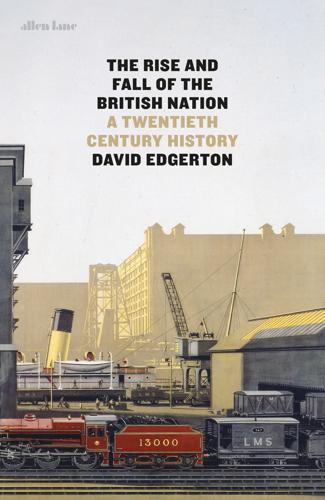
The Rise and Fall of the British Nation: A Twentieth-Century History
by
David Edgerton
Published 27 Jun 2018
These were, in the conventional view, the years of attempts to hold on to both imperial and great power status, evident in the invasion of Egypt in 1956, which was followed by rapid decolonization. Imperial illusions were such that the British government missed the European unity bus in the late 1950s. They were, however, the years of affluence, of rising living standards, of the birth of the consumer society. These were the years of social democracy, of the welfare state. Yet the relative performance of the British economy came into question, the British decline became a live issue. Through immigration from the ‘New Commonwealth’ the United Kingdom was becoming a multiracial, multicultural society.

The Rough Guide to Poland
by
Rough Guides
Published 18 Sep 2018
iStock Gdańsk and the Vistula Delta Gdańsk Sopot Gdynia Hel Kashubia East of Gdańsk The Vistula delta Gdańsk and the Vistula Delta Even by Polish standards, the northern Tri-City (Trójmiasto) – the dominant conurbation in northern Poland, consisting of Gdańsk, Sopot and Gdynia – is a historical heavyweight, being the place where World War II started with a bang and where the communist dictatorship ended with a whimper fifty years later. But rather than lingering on the past, the region is thundering forward. Two decades of economic boom have ensured rising living standards, improved transport links and a rocketing tourist industry. Historical heritage remains well to the fore. Gdańsk, carefully reconstructed after World War II devastation, is filled with red-brick monuments to its medieval mercantile heyday. Nearby Sopot, with its golden beach, has been a tourist magnet for generations and preserves a genteel resort-town feel.

Palo Alto: A History of California, Capitalism, and the World
by
Malcolm Harris
Published 14 Feb 2023
The supposedly natural pigmentocracy threatened to crumble, which would reveal it to have been, in retrospect, unnatural, merely imposed. As a bastion of American anticommunism, it was Palo Alto’s job to rediscover and refound inequality. While Eisenhower Republicans imagined a Pax Americana anchored in rising living standards for a broad swath of citizens, the Hoover faction saw the existential threat on the horizon. Though he was out of step with some national trends, Hoover spent the years before his death (in 1964, at the age of ninety) securing a space at Stanford for a counterstrike. He transformed the collection-minded Hoover Library into the political force of the Hoover Institution, its purpose “by its research and publications, to demonstrate the evils of the doctrines of Karl Marx whether Communism, Socialism, economic materialism, or atheism—thus, to protect the American way of life from such ideologies, their conspiracies, and to reaffirm the validity of the American system.”43 The institution’s tower loomed phallic over the town, attracting right-wing thinkers and donors to the university, spewing anti-collectivist theory across the nation for many years to come.

The Empire Project: The Rise and Fall of the British World-System, 1830–1970
by
John Darwin
Published 23 Sep 2009
This had to be met by further borrowing.96 But the scale was comparatively modest (perhaps £6 million per year) and part of it was due to new investment in railways and irrigation in a period of commercial expansion. It was also true that the domestic impact of India's deepening involvement in international trade was muffled by the vast scale of the rural economy much of it close to subsistence and threatened by periodic famine – although export-producing regions did experience rising living standards.97 The bar on tariffs imposed by London made diversification into industry more difficult. Overall, however, the pre-war years saw the closer integration of India into the British world-system. India remained Britain's largest market. Its export surpluses were larger. Its payments to Britain were met without strain.
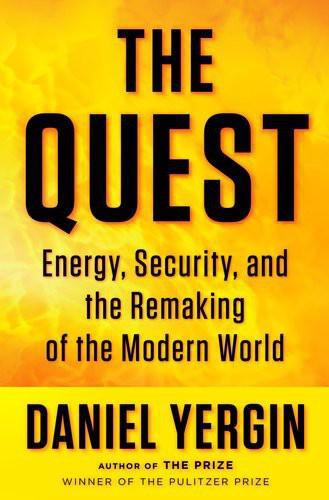
The Quest: Energy, Security, and the Remaking of the Modern World
by
Daniel Yergin
Published 14 May 2011
“Distance” was disappearing, along with borders, as both finance and supply chains tied production and commerce together around the planet. It was an increasingly open world, freely communicating, freely trading, freely traveling—and, as it turned out very definitely, “visa-lite.” It was a world of rising living standards and ever-wider possibilities. It was an optimistic time. THE DAY THAT CHANGED EVERYTHING On September 11, 2001, two jets hijacked by Al Qaeda operatives slammed into the twin towers of the World Trade Center, and a third into the Pentagon. The fourth, aimed at the Capitol, was brought down by passengers in a cornfield in Pennsylvania.

Post Wall: Rebuilding the World After 1989
by
Kristina Spohr
Published 23 Sep 2019
The command economy was loosened to free many goods from price controls and to introduce a new programme for agricultural collectivisation, including revised household plot regulations that permitted people to grow food for the market on private land.[25] This was the origin of Hungary’s so-called ‘goulash economy’ of the 1960s – officially termed the ‘New Economic Mechanism’.[26] Kádár’s economic and political reforms made possible rising living standards and a relatively relaxed ideological climate. He also cautiously opened up Hungary socially; Western radio broadcasts were no longer jammed and the restrictions on travel across the Iron Curtain were relaxed. In 1963, 120,000 Hungarians travelled to the West, four times more than in 1958.